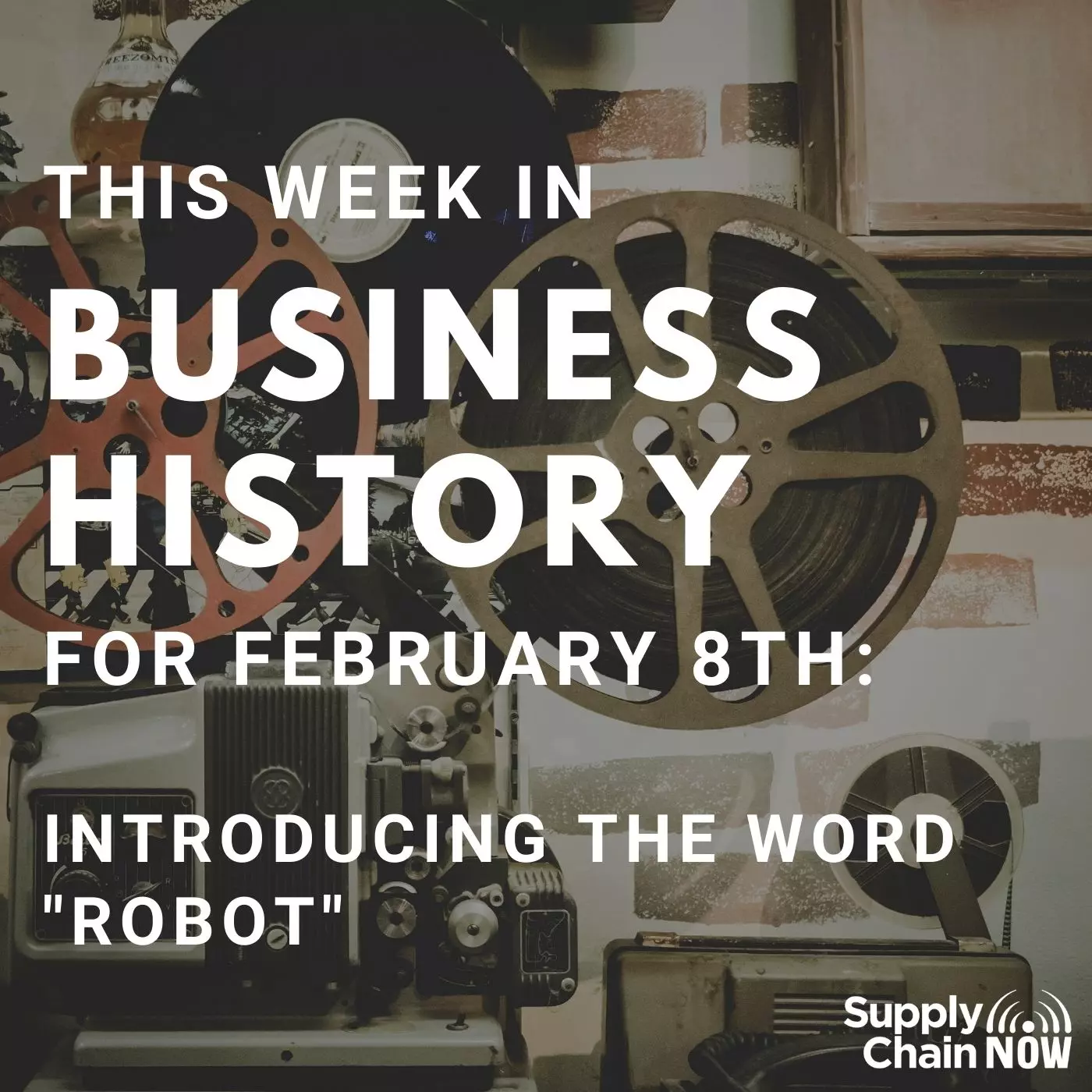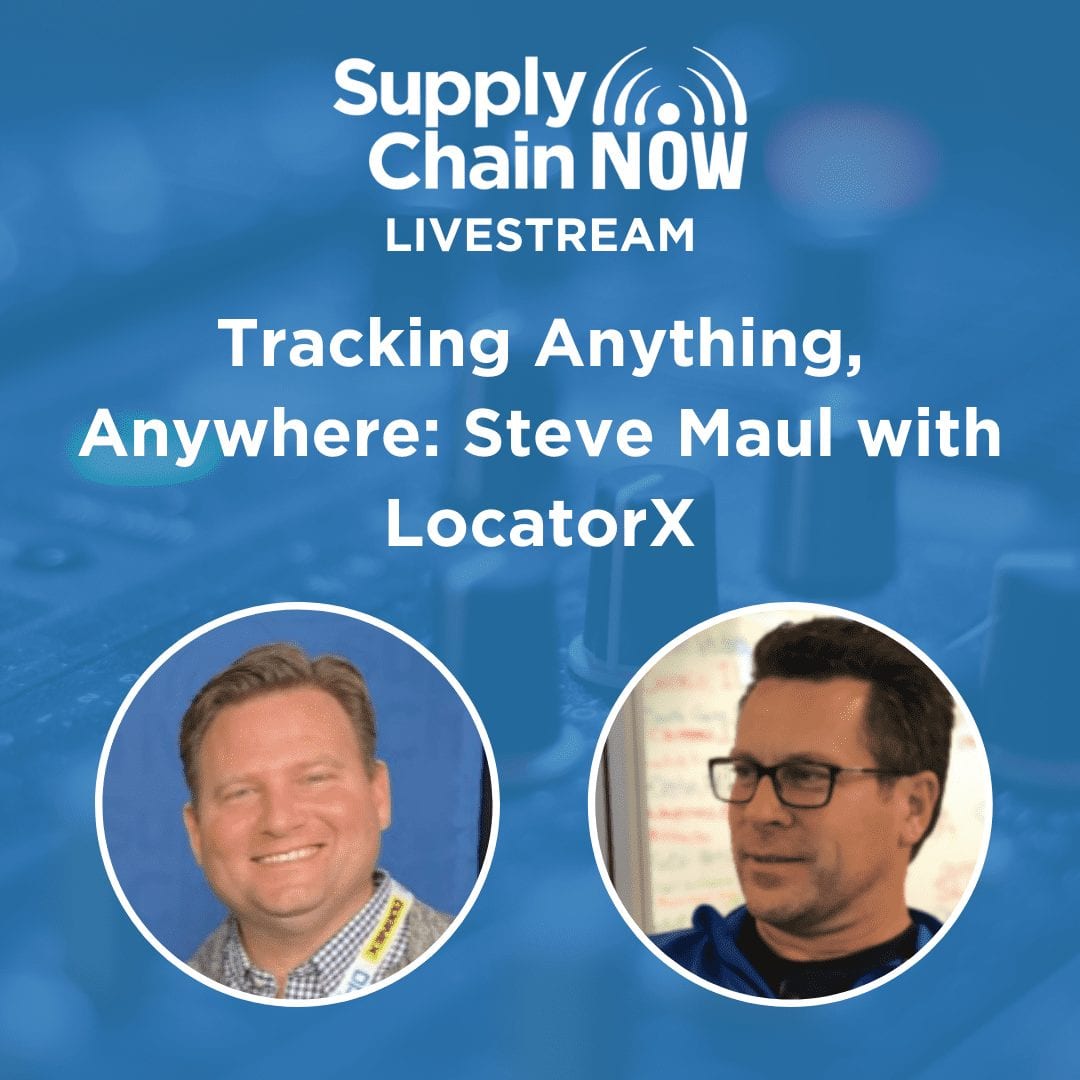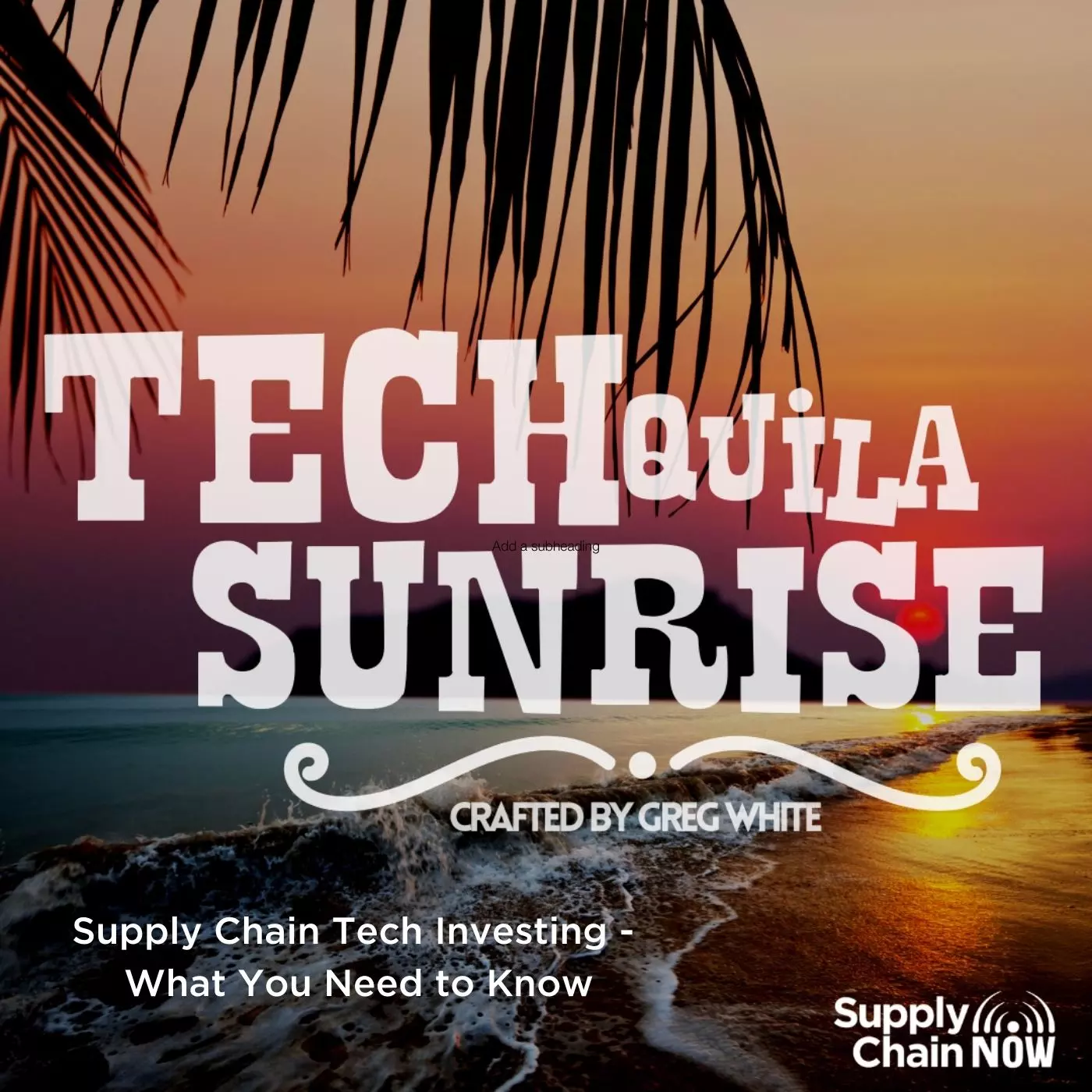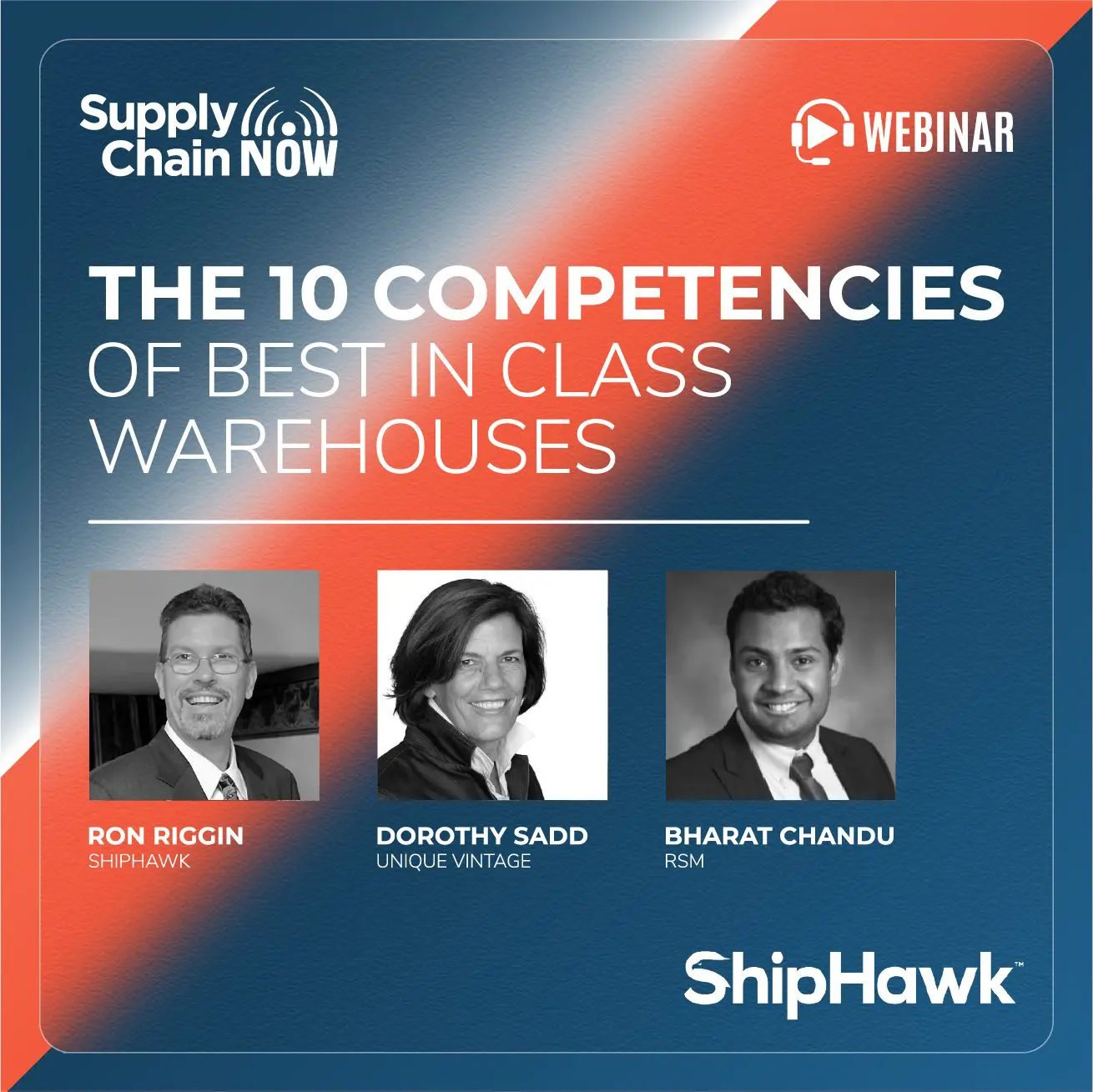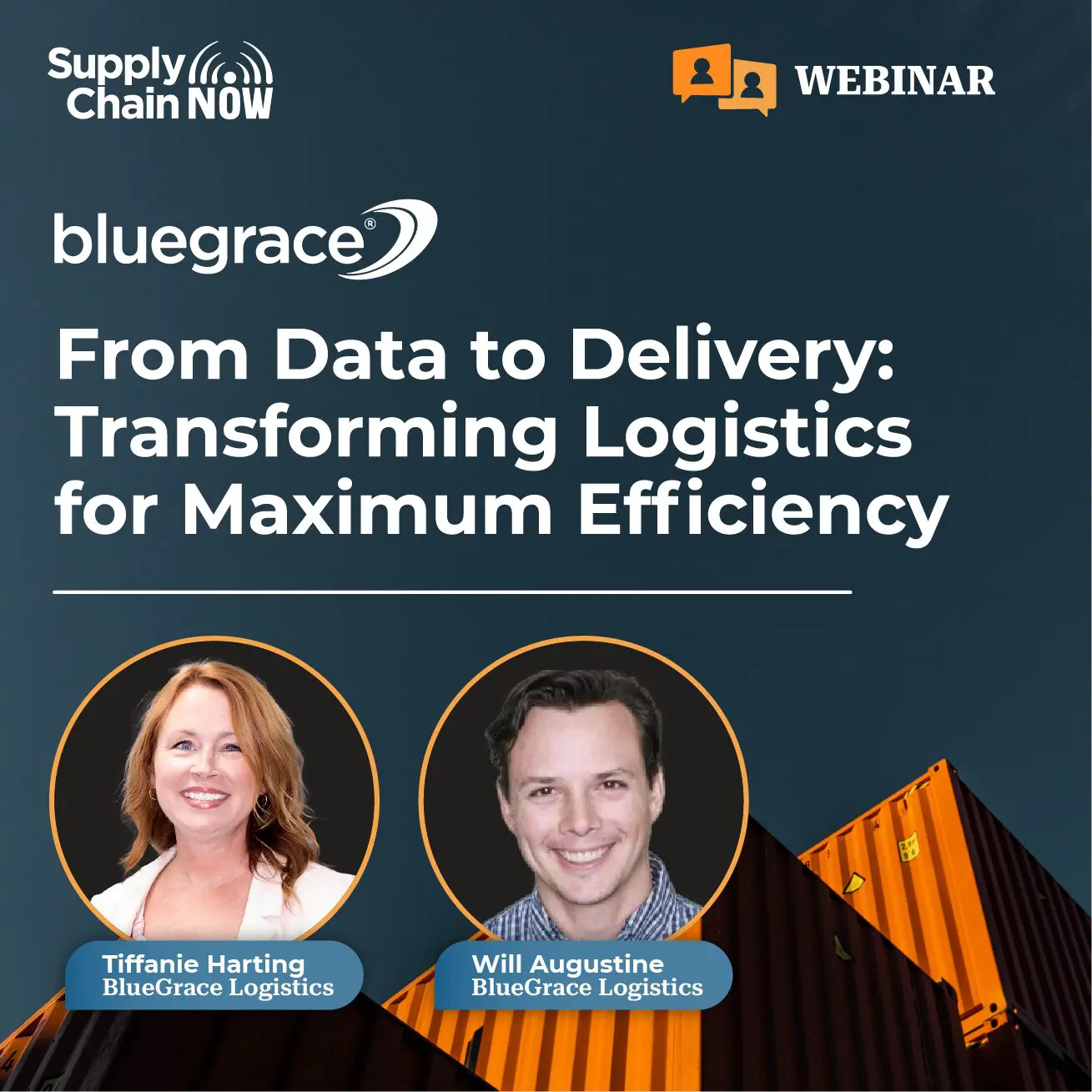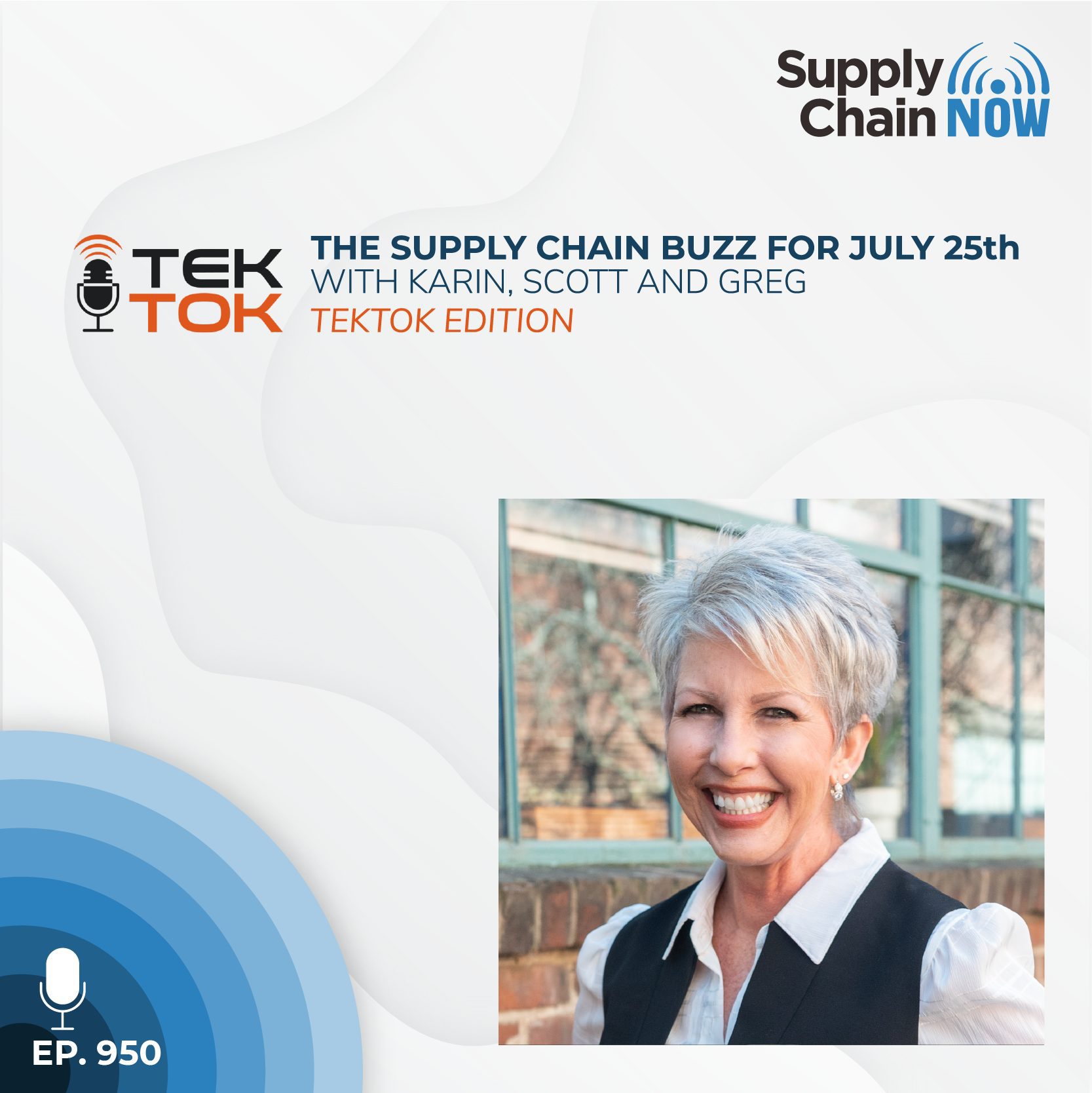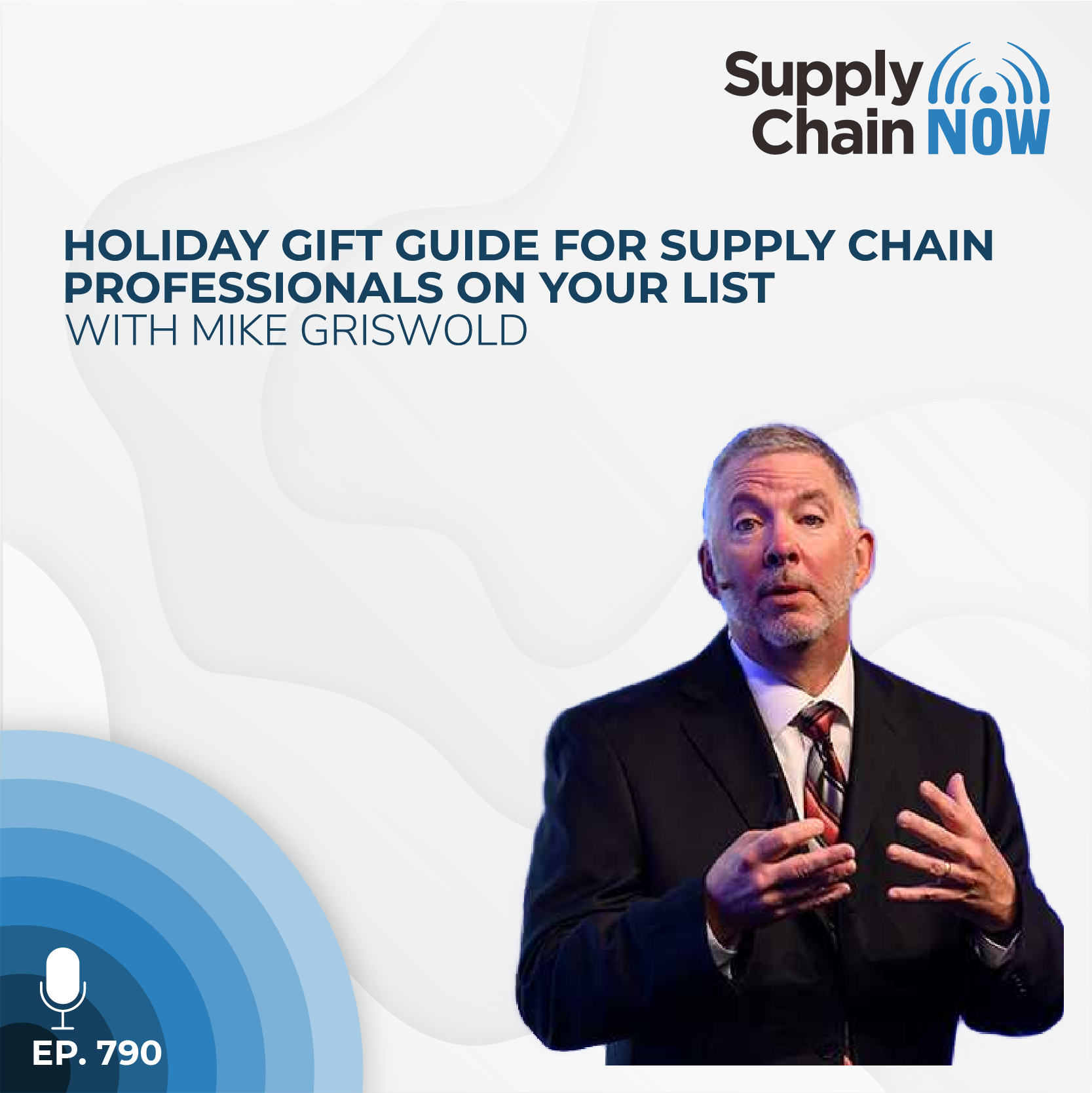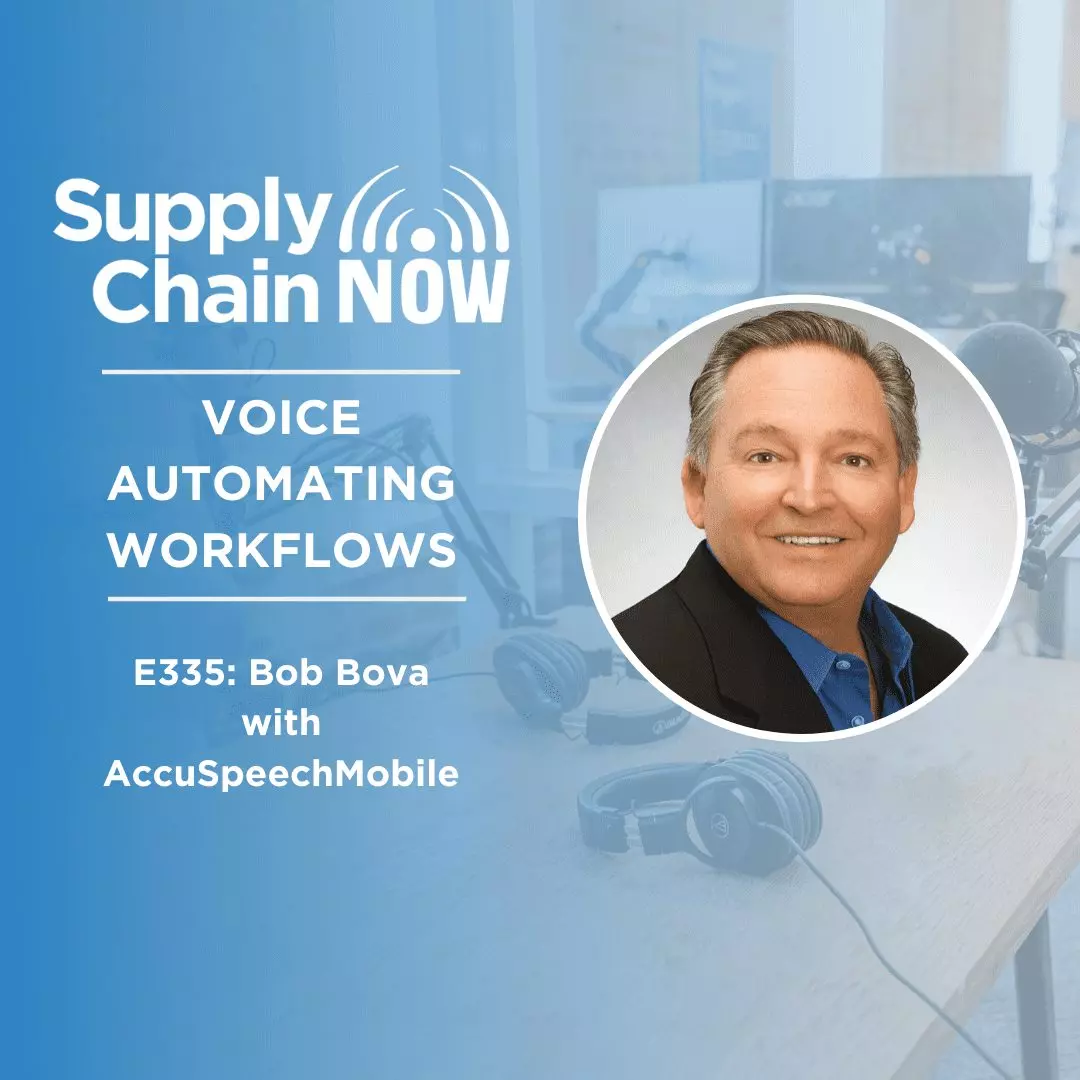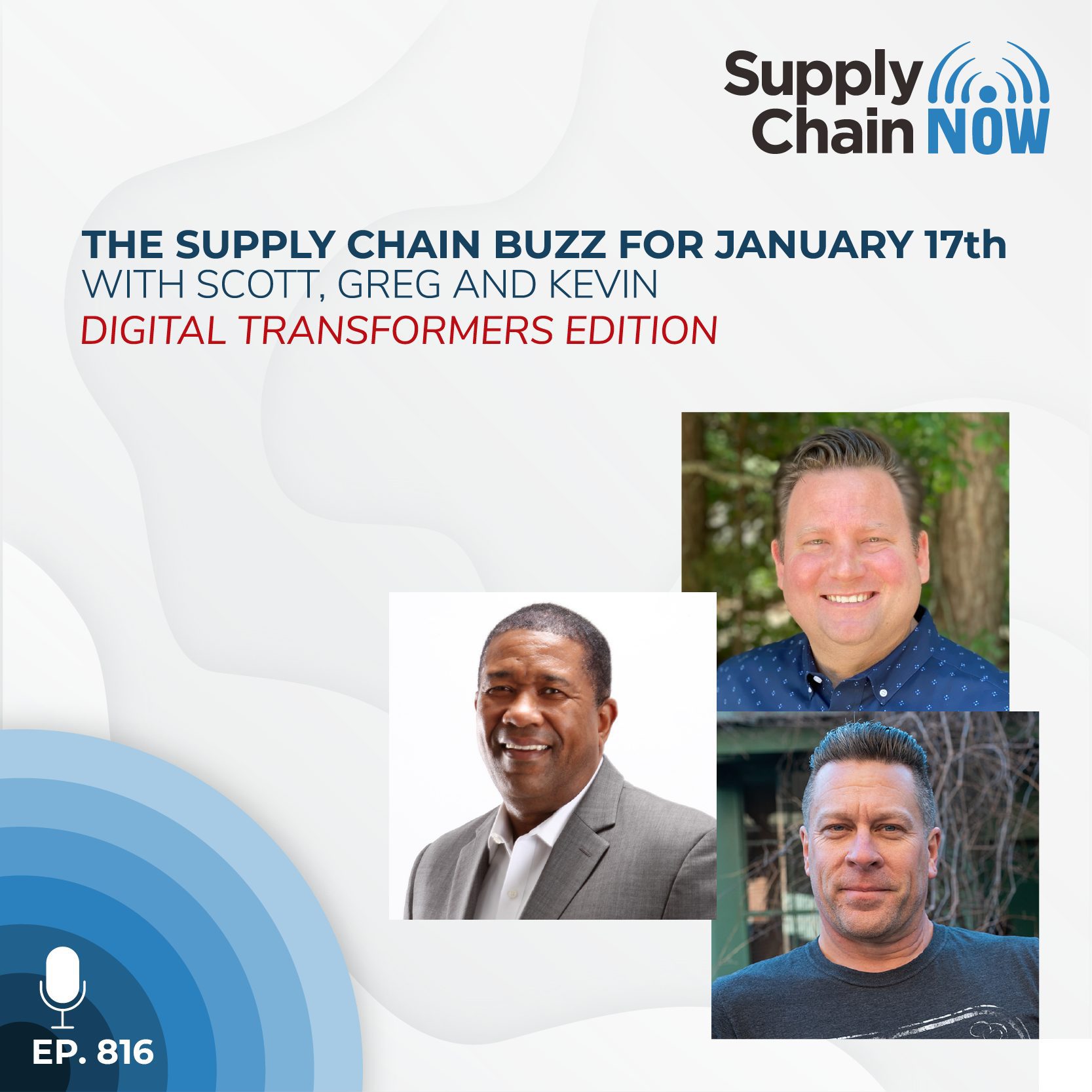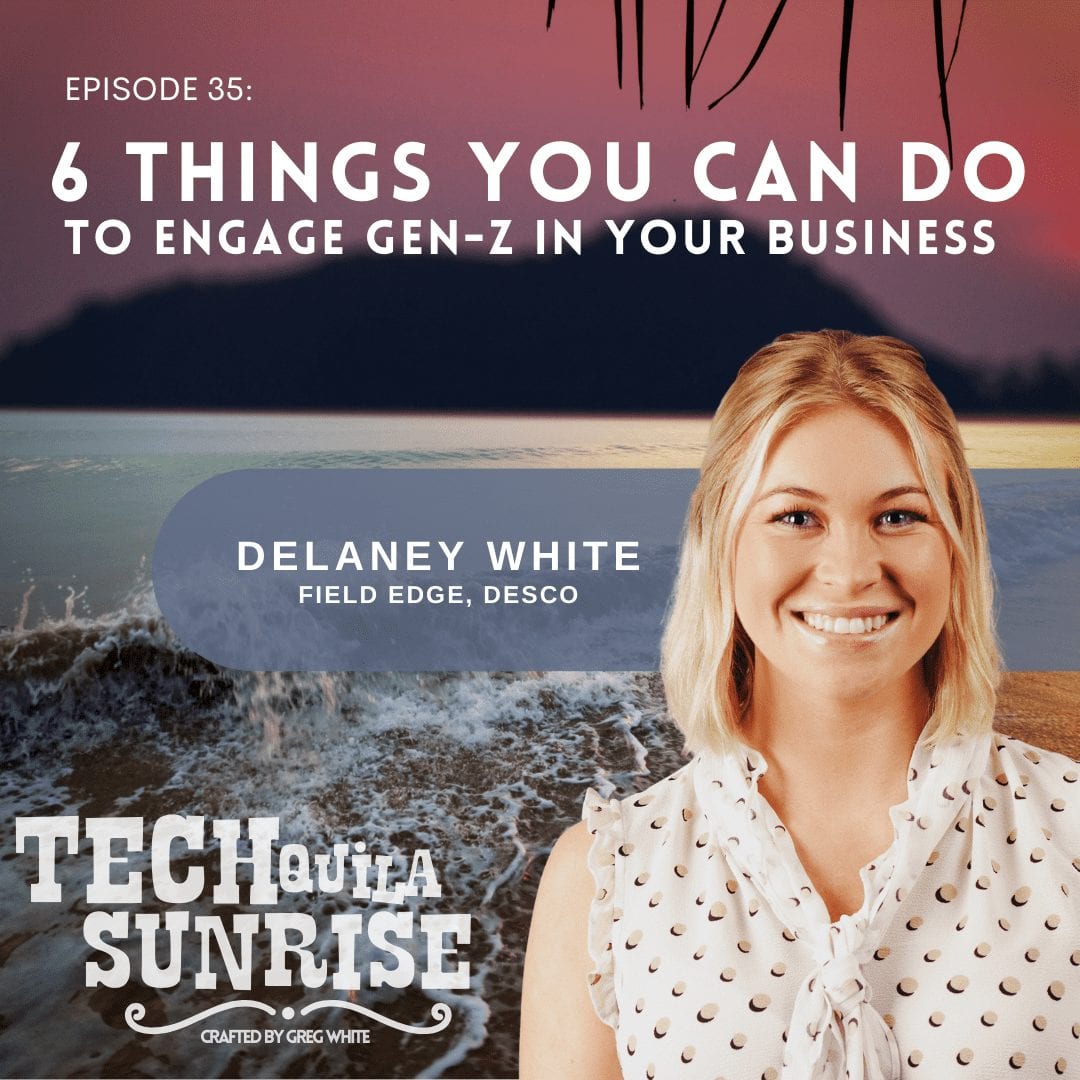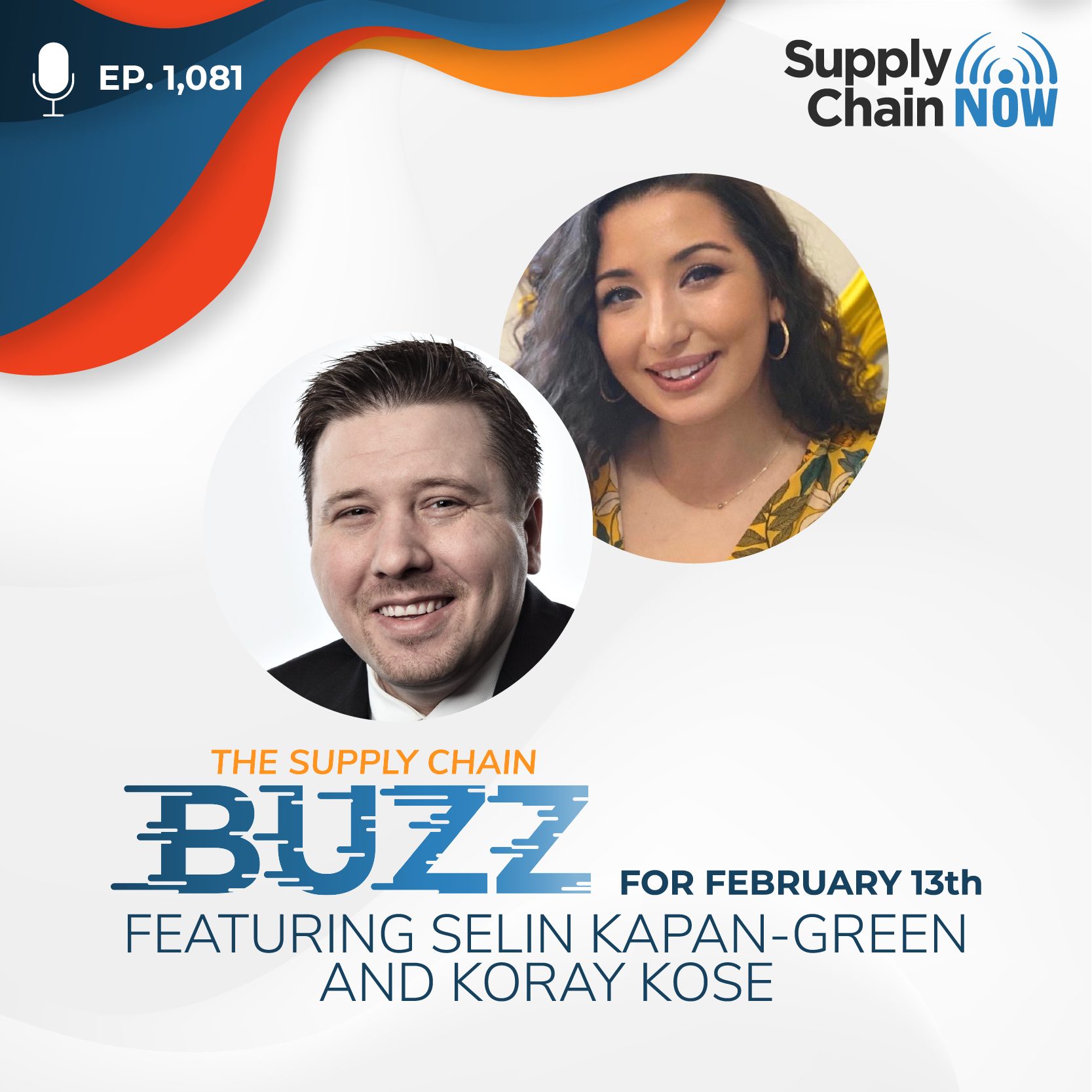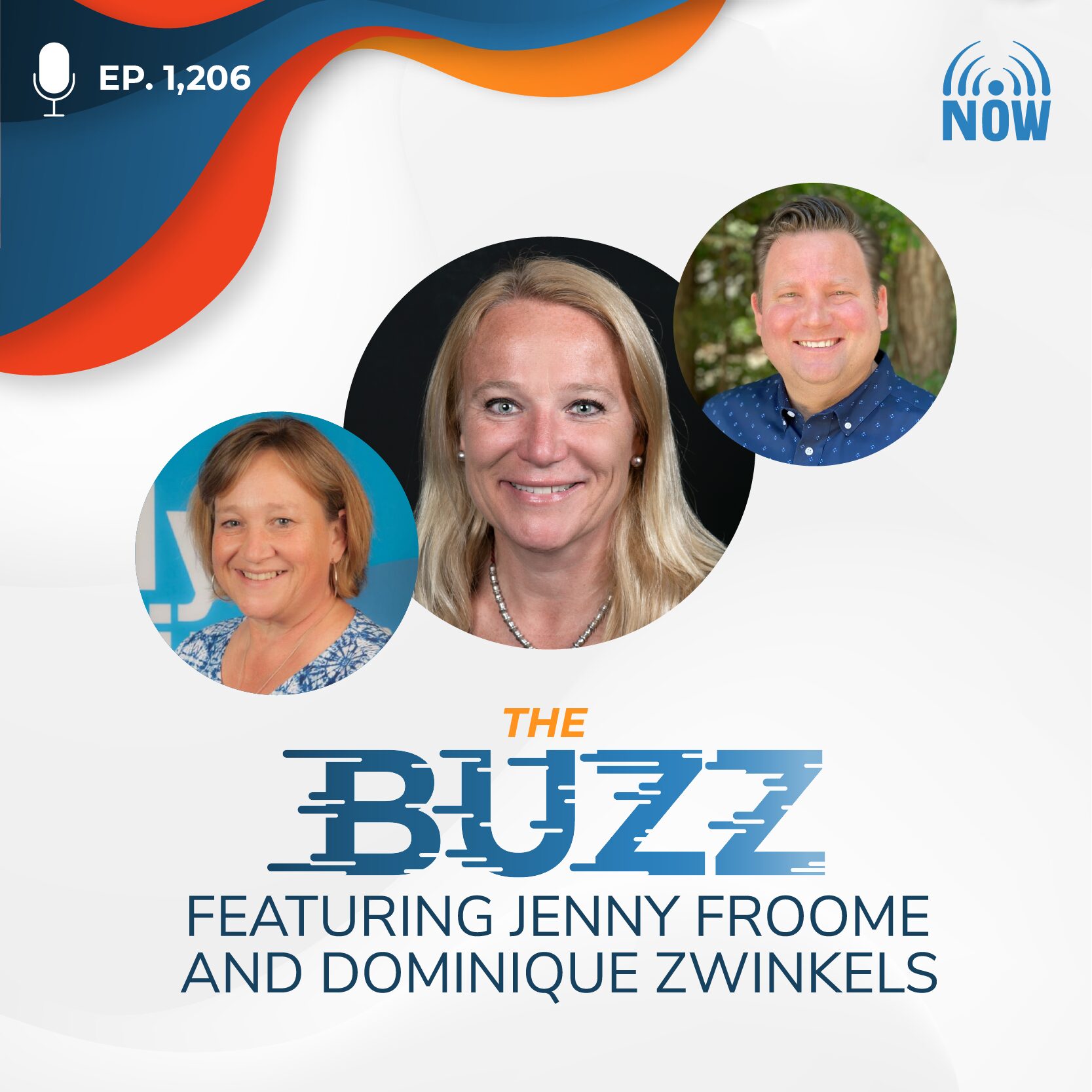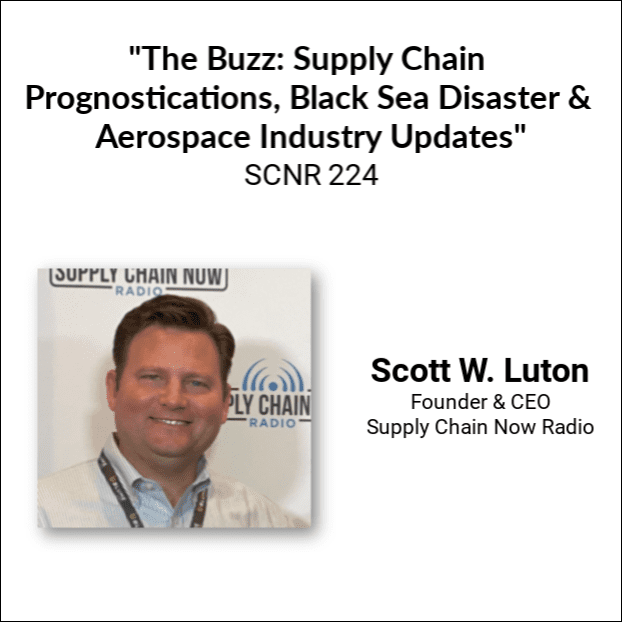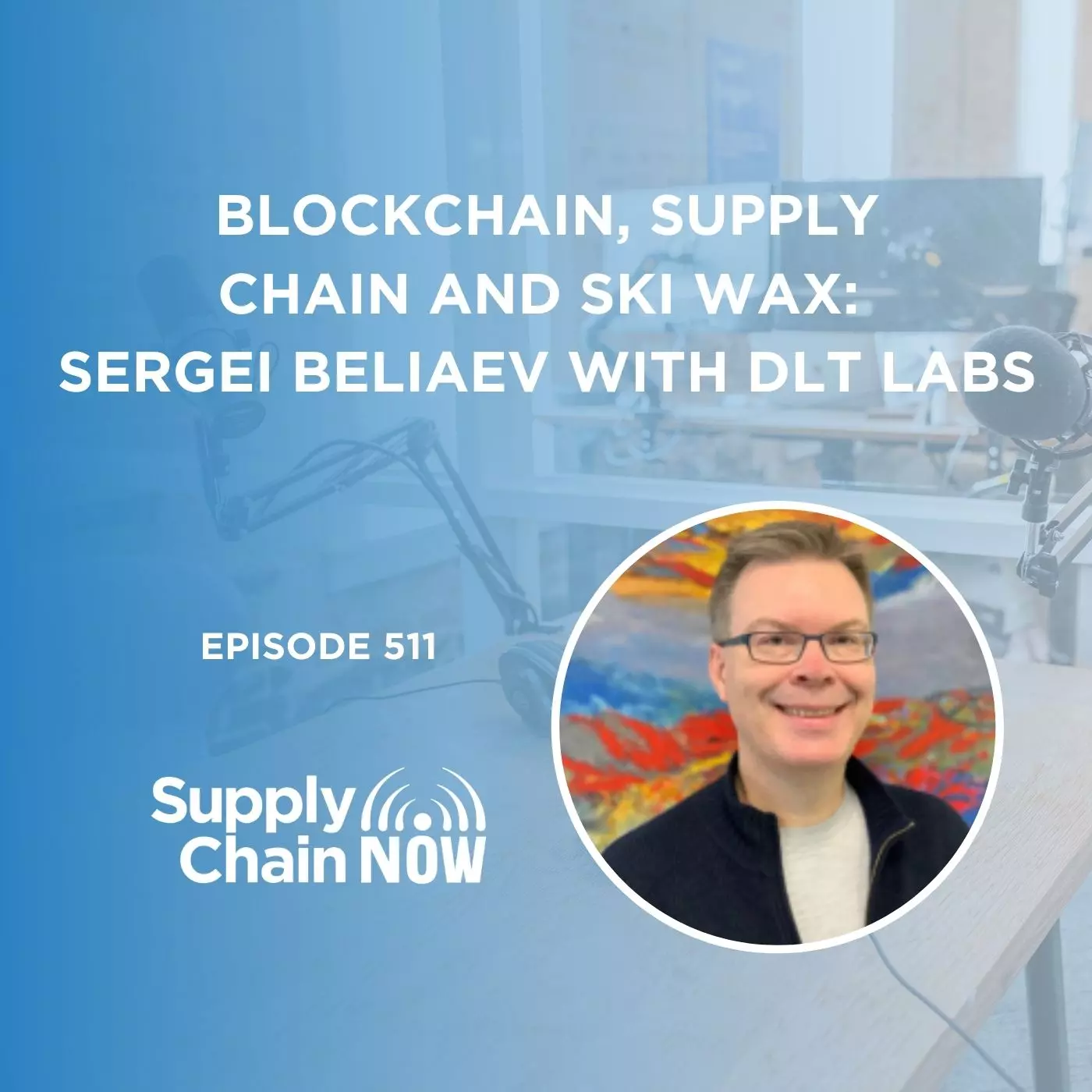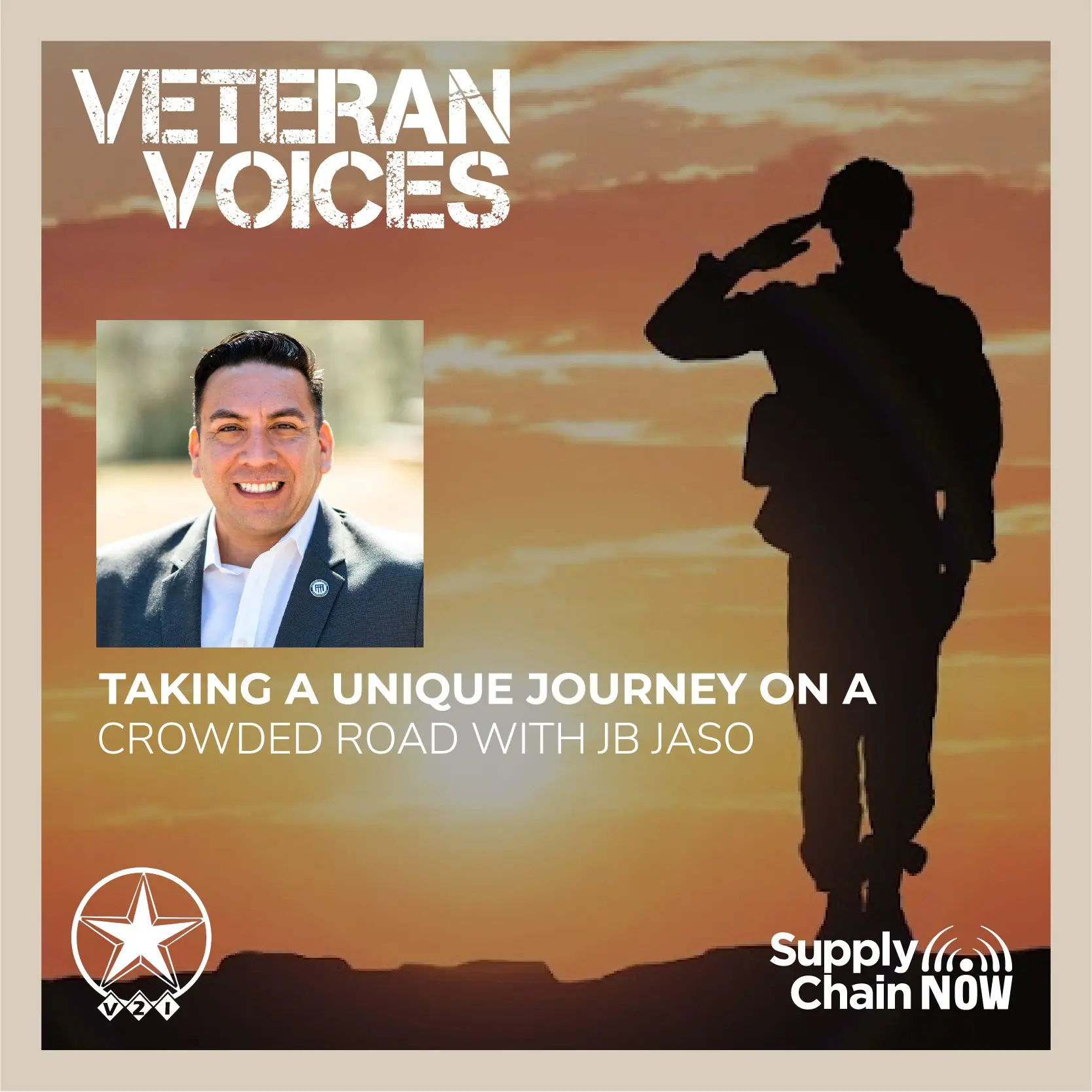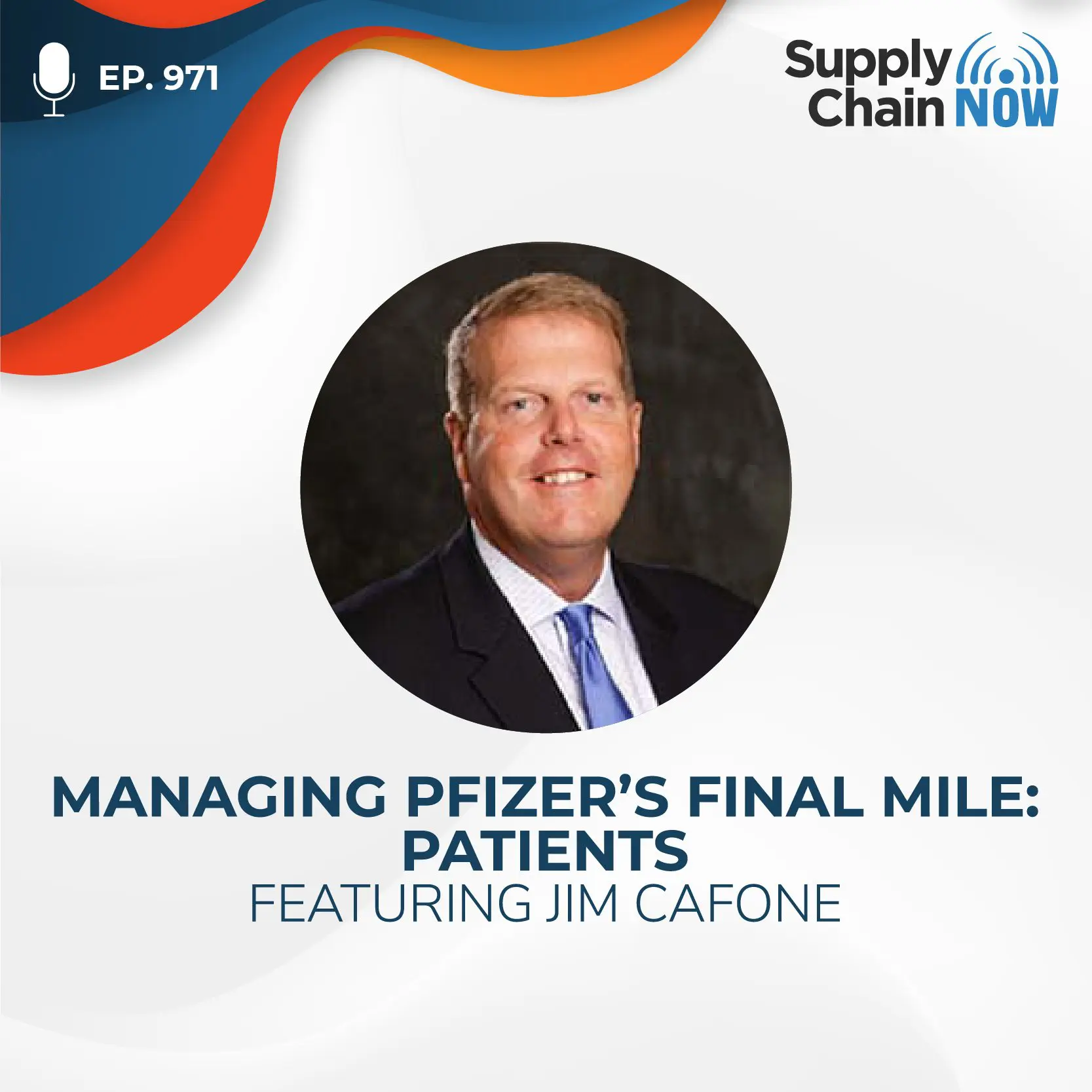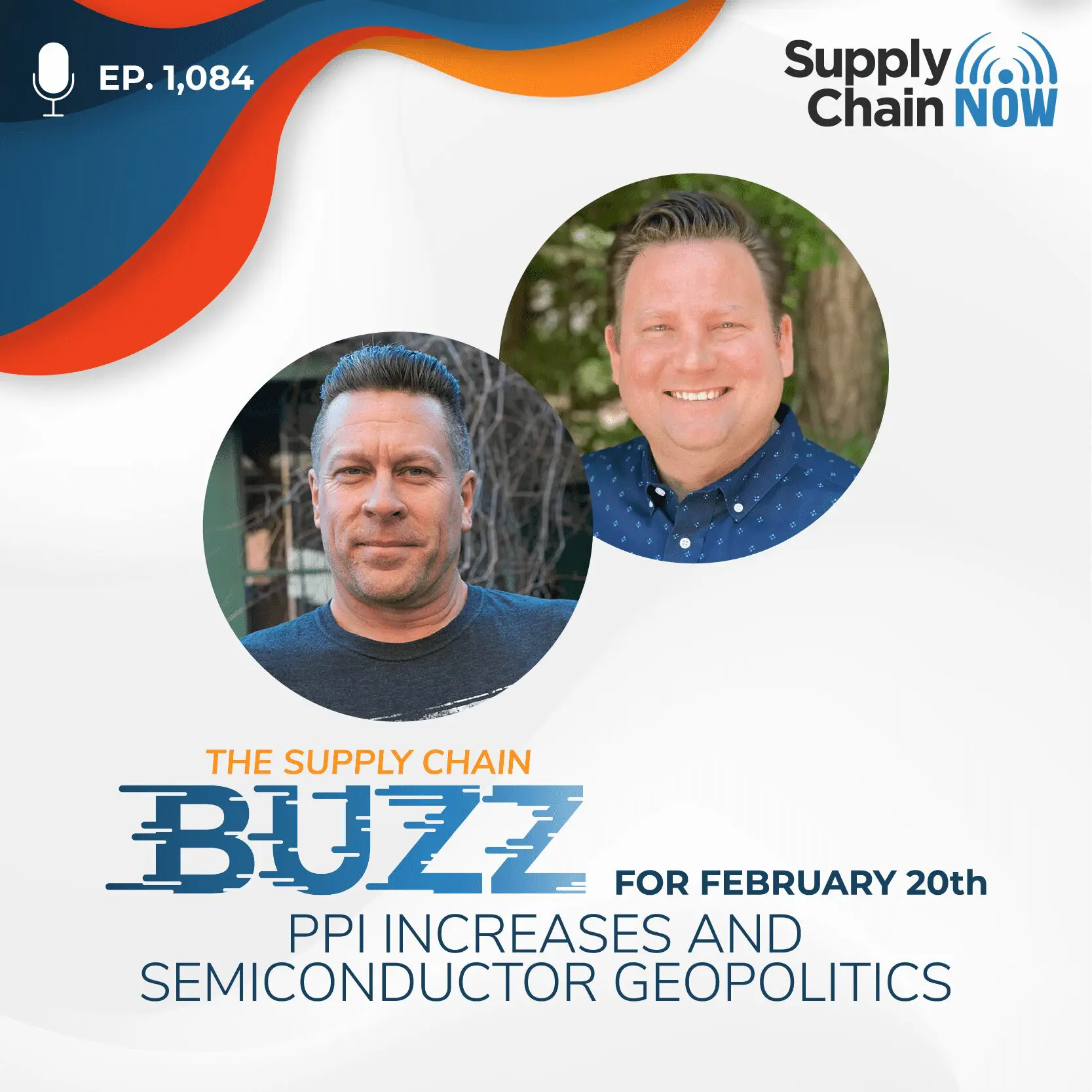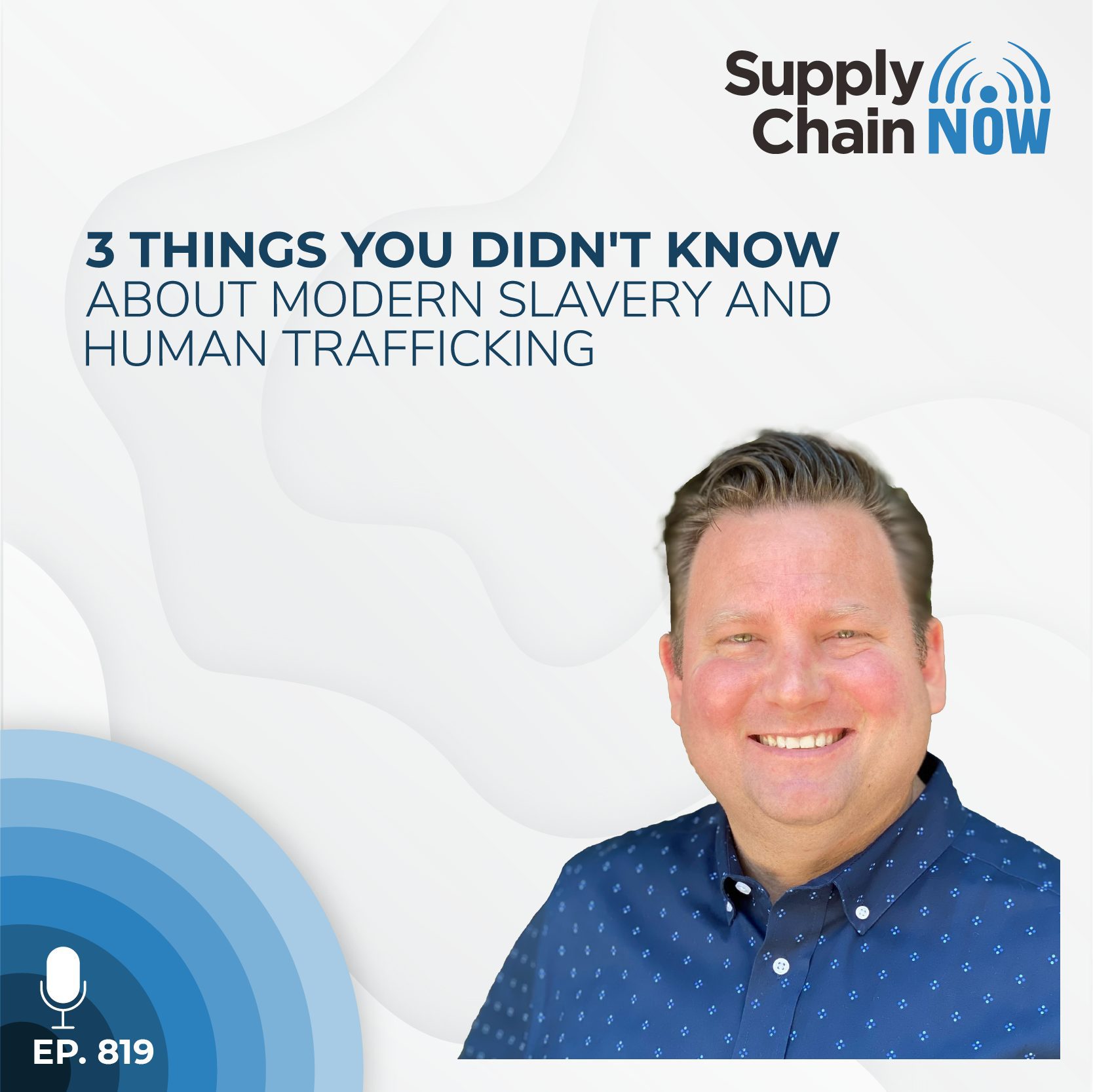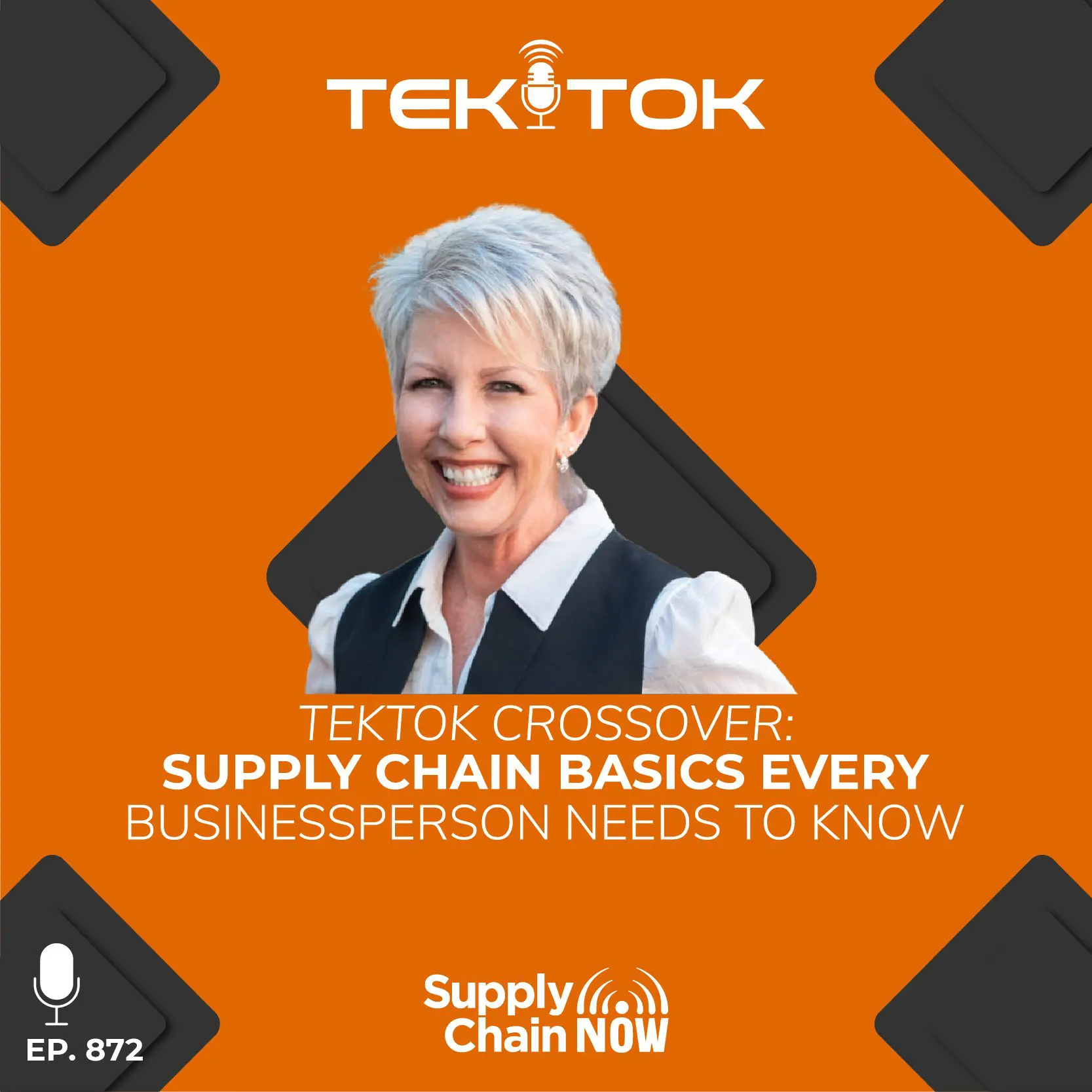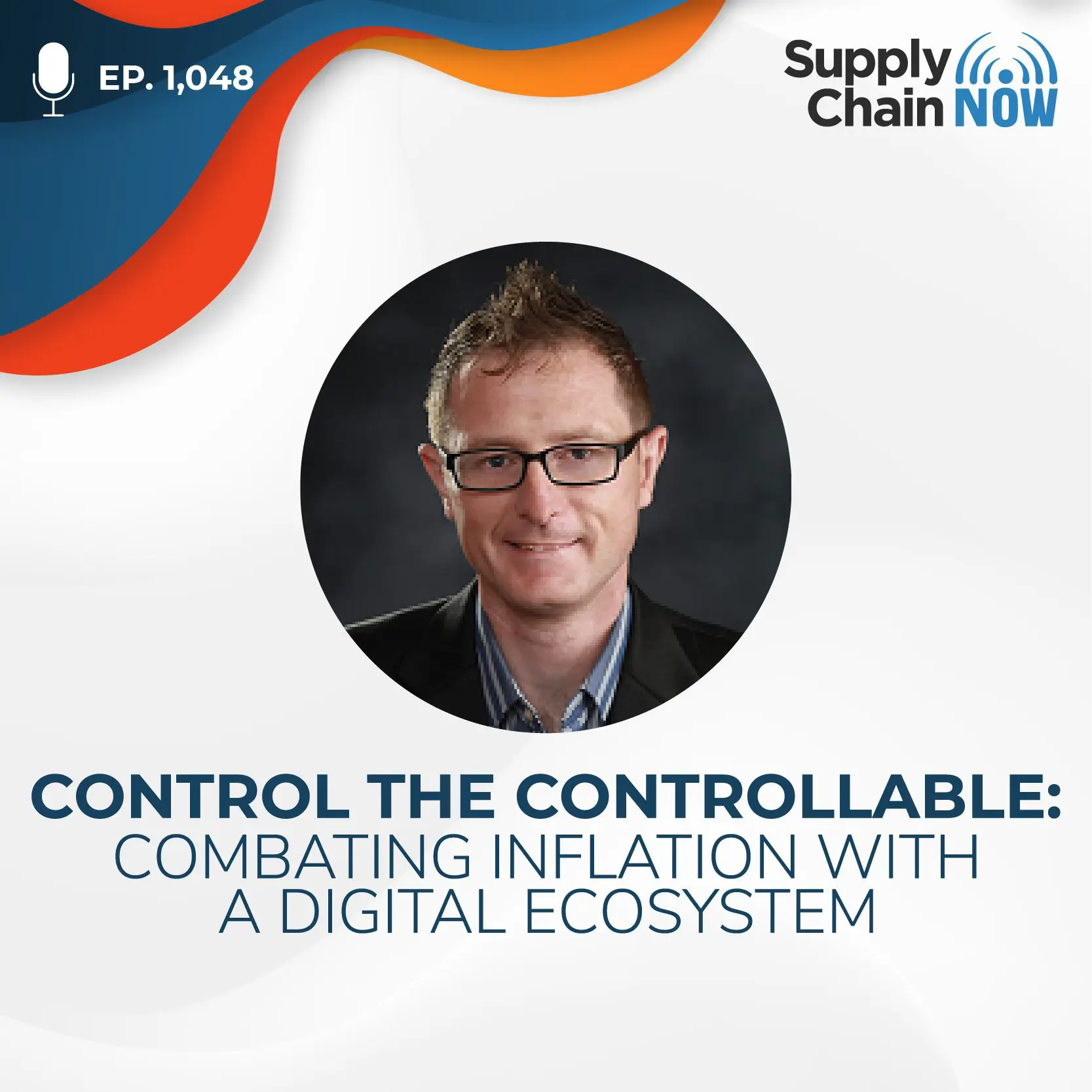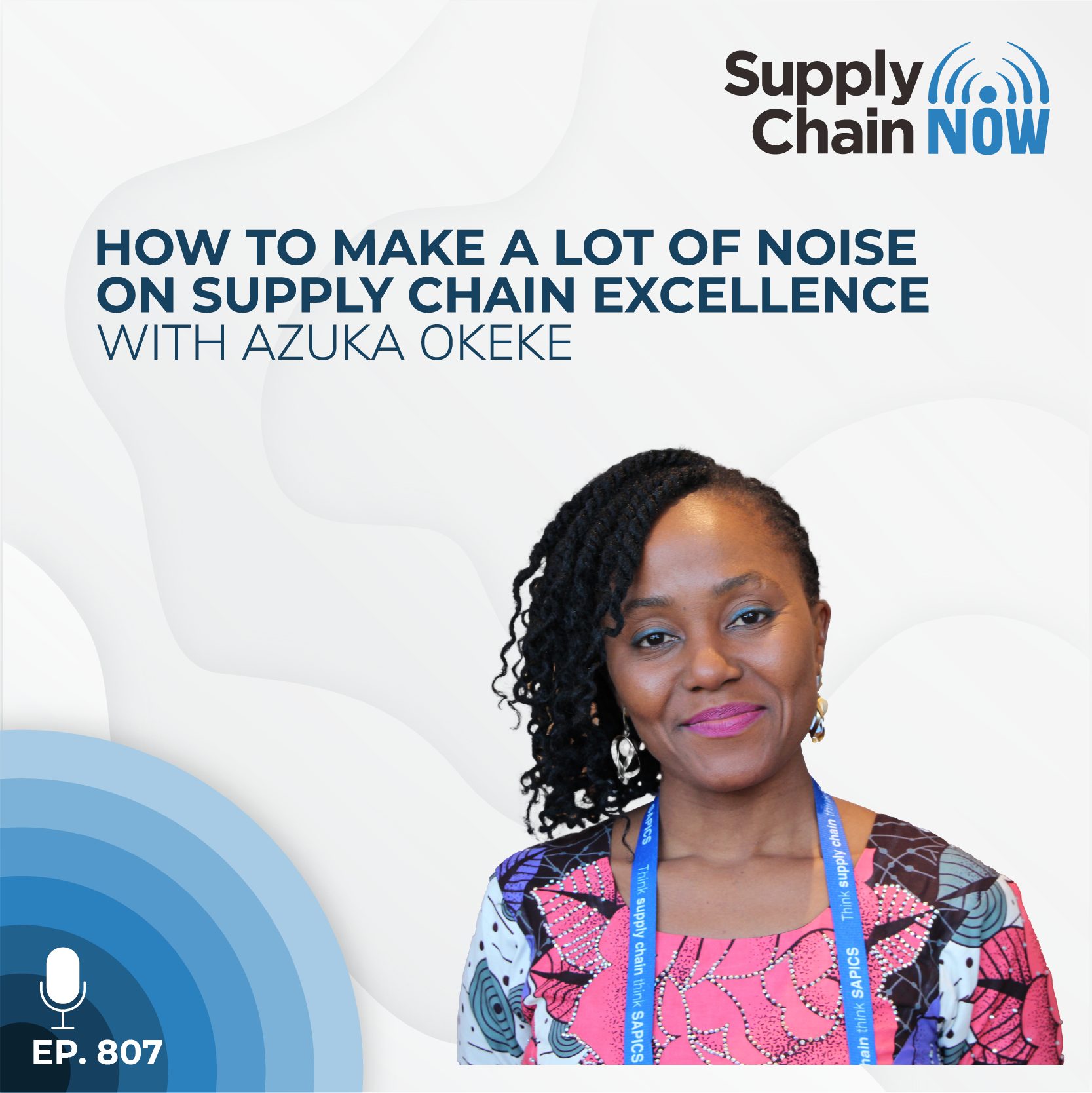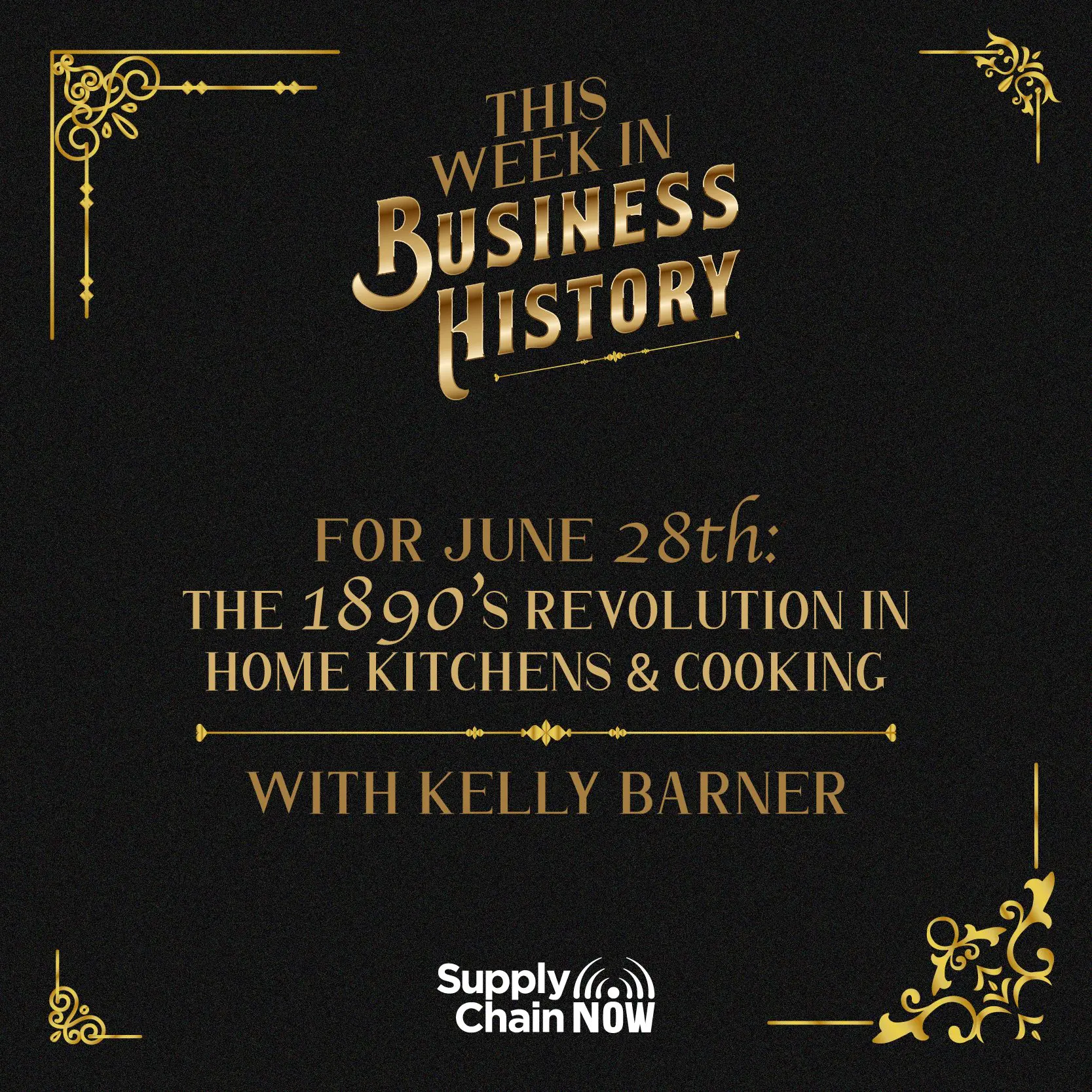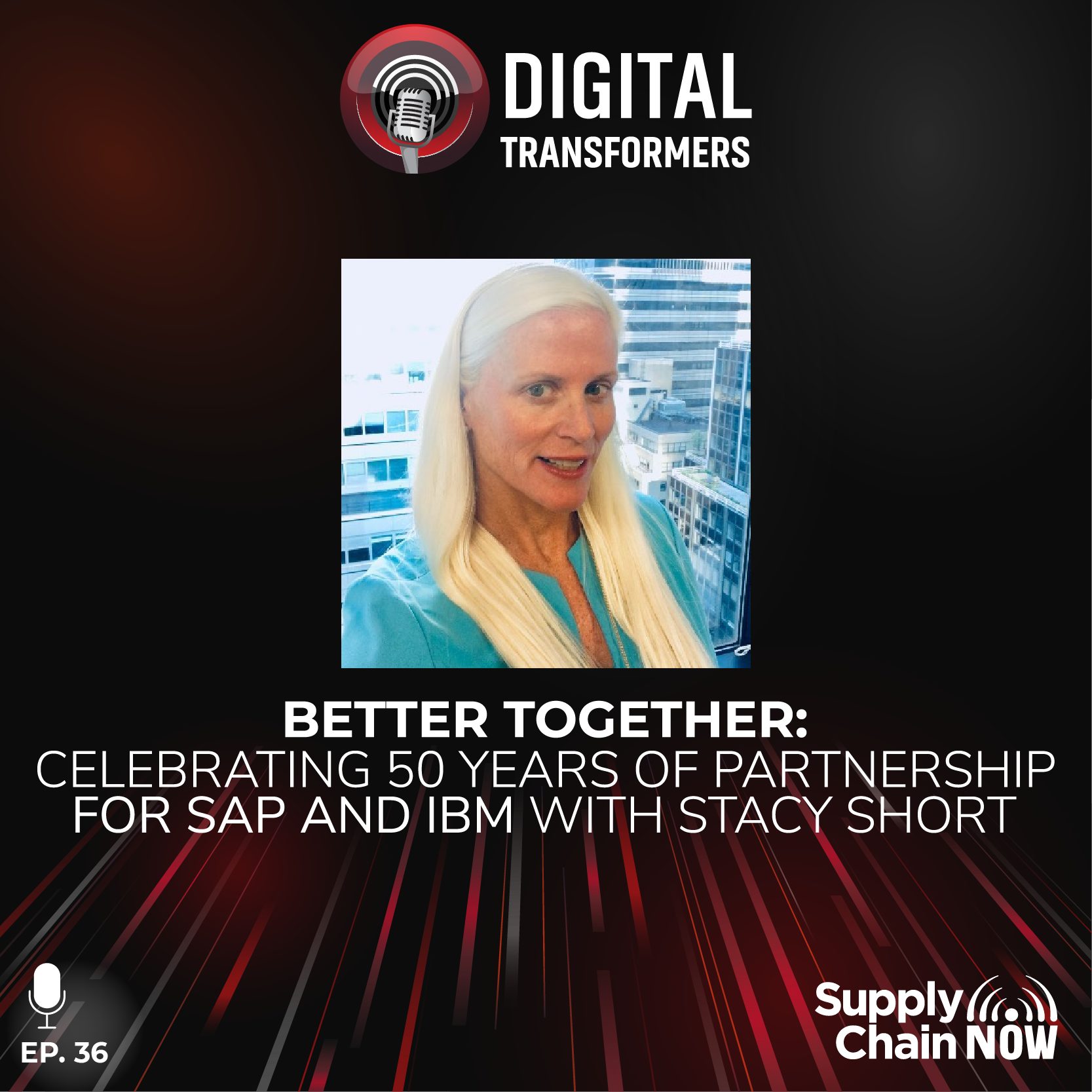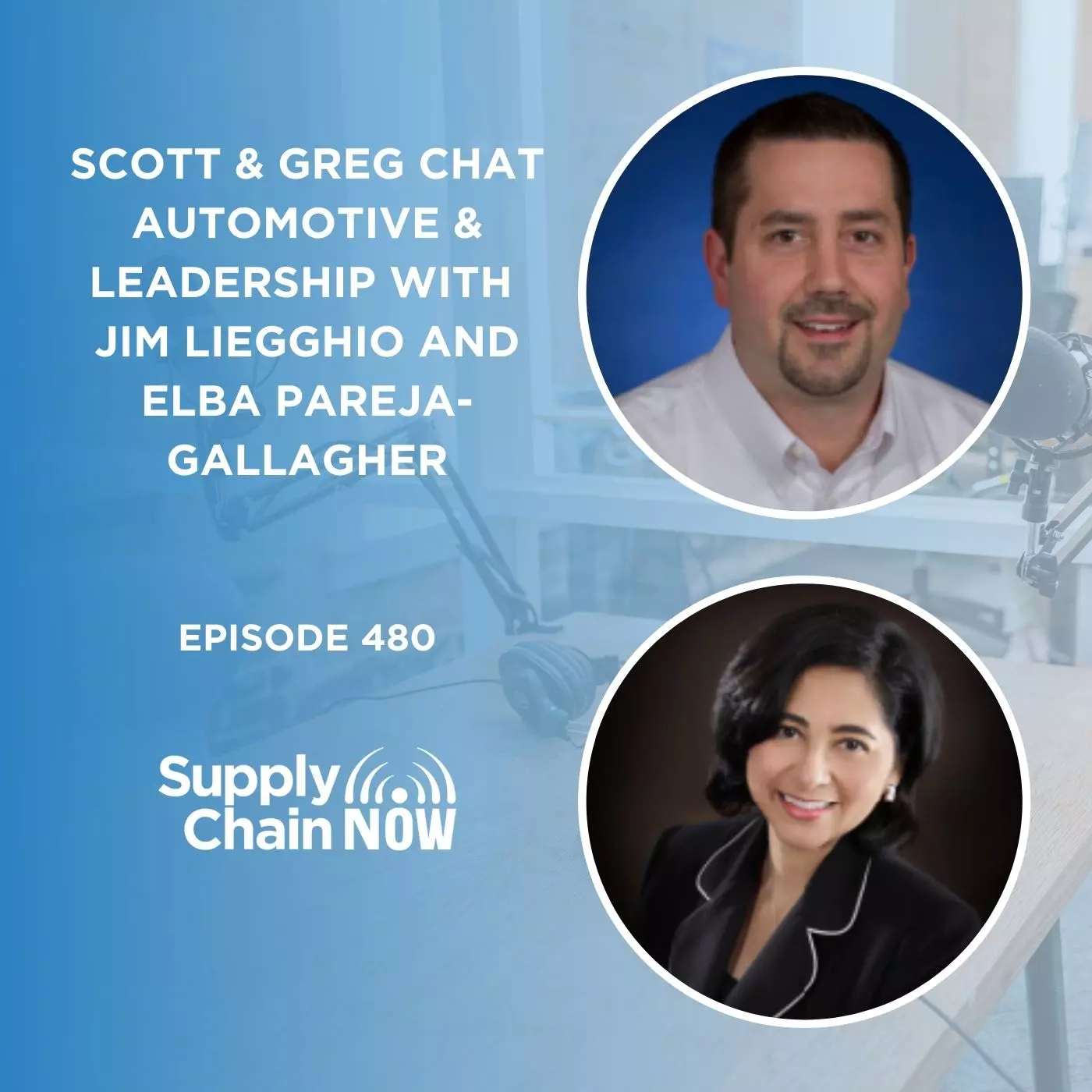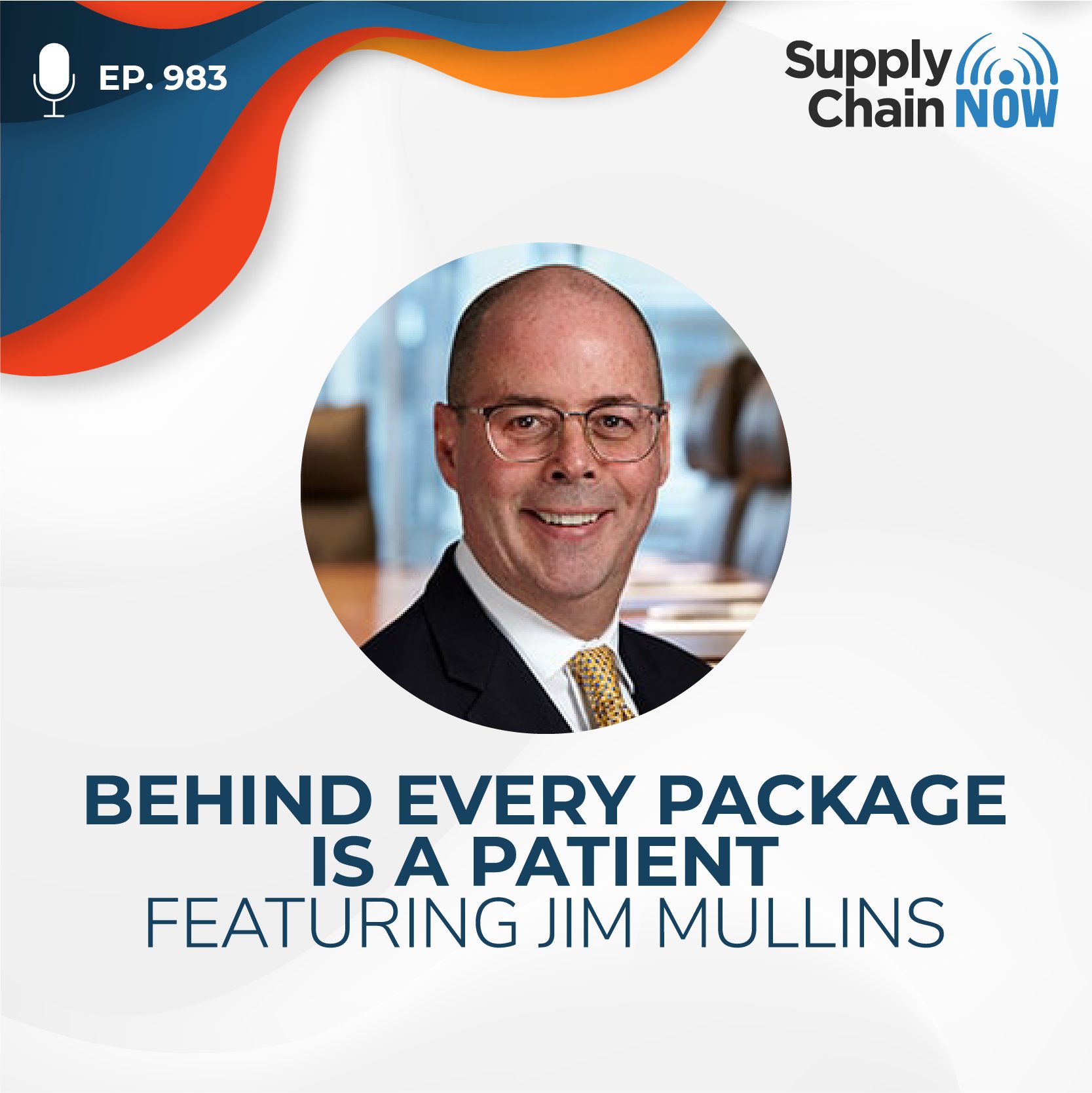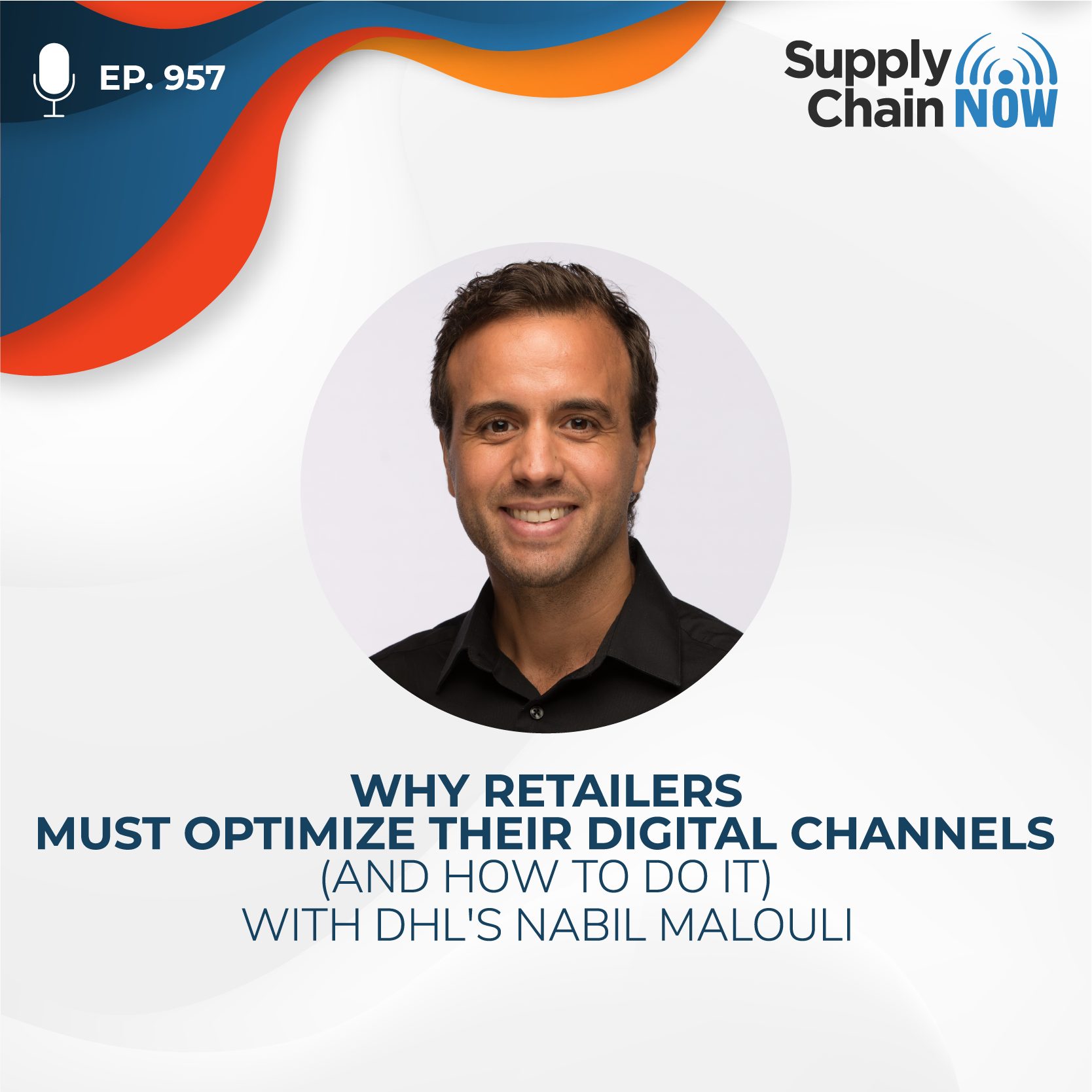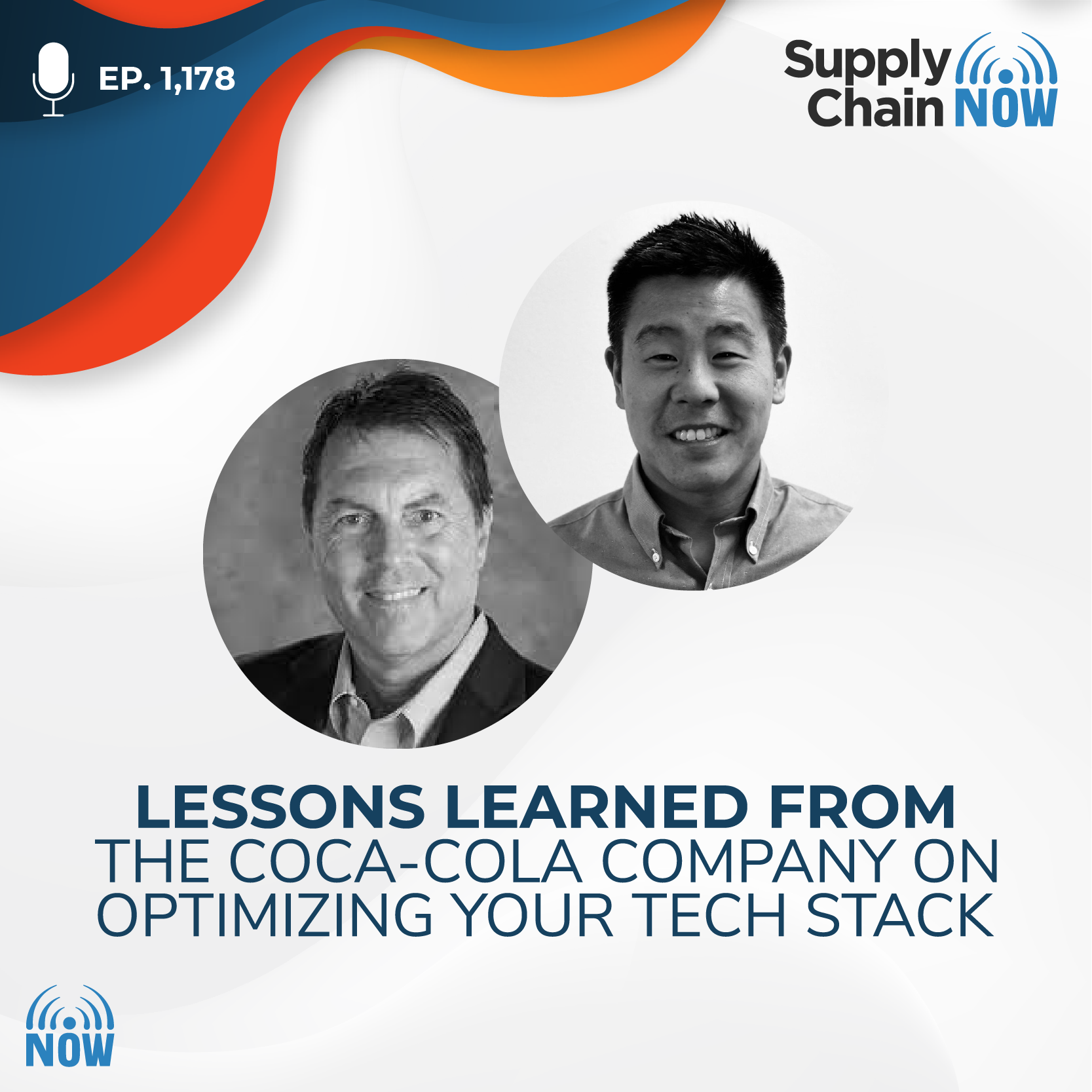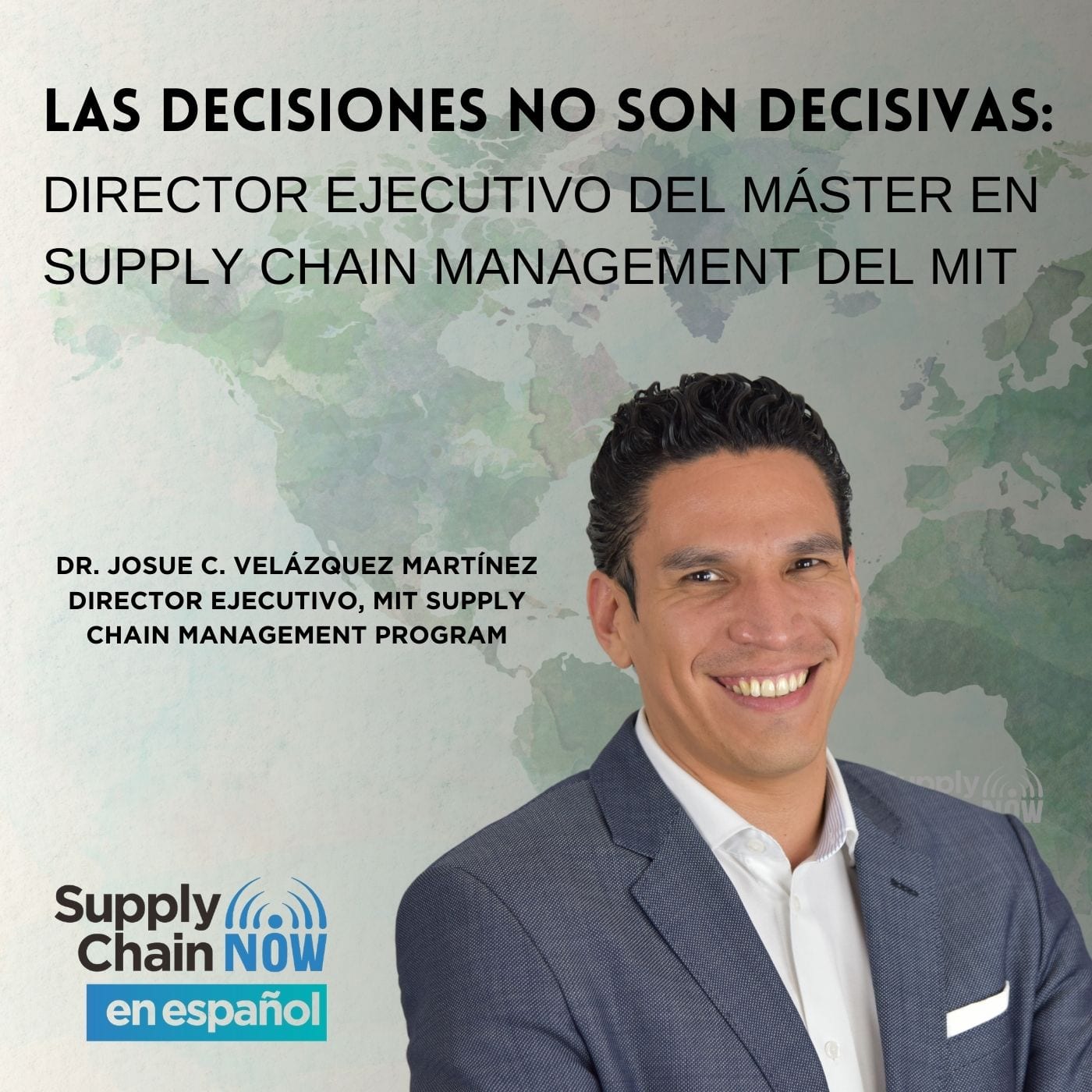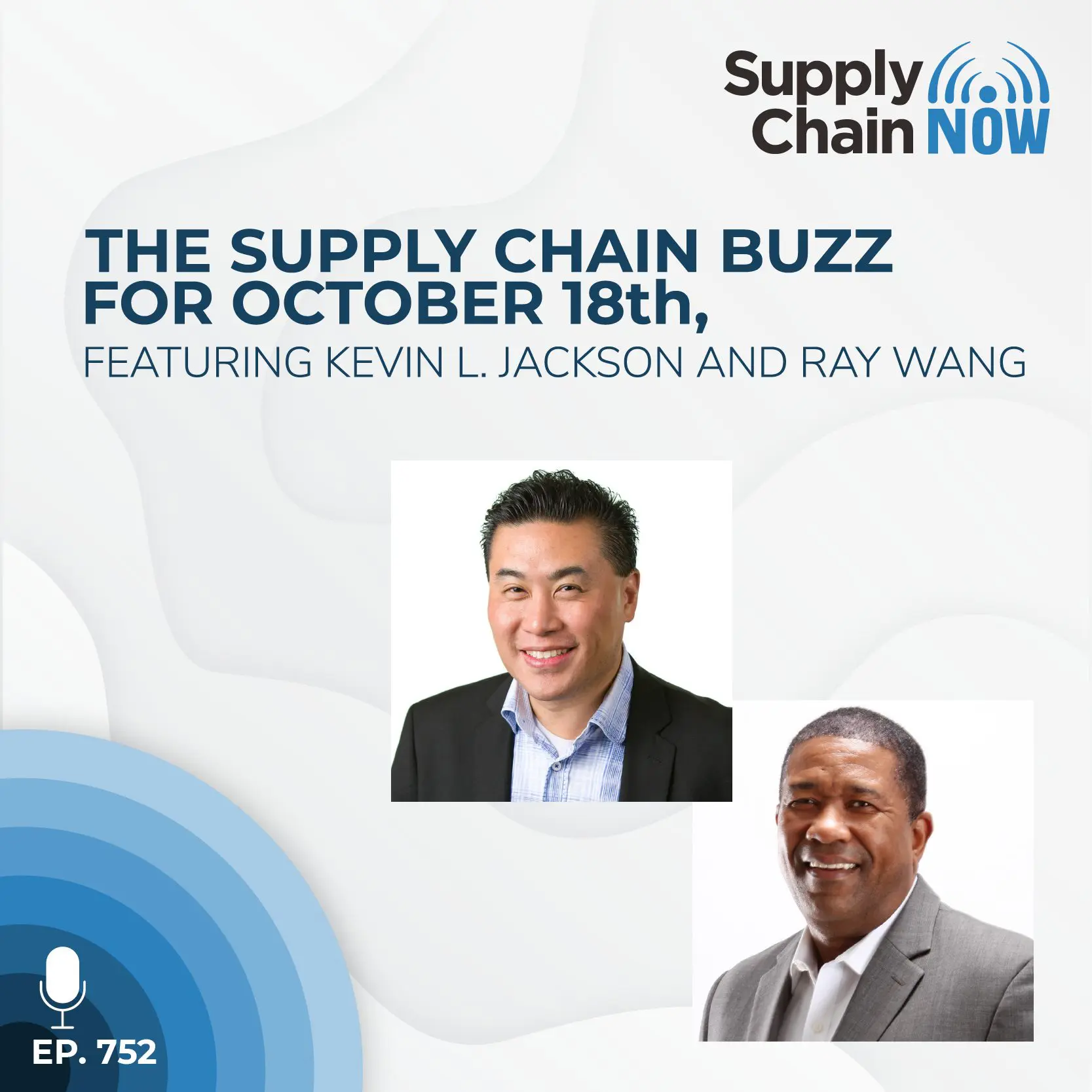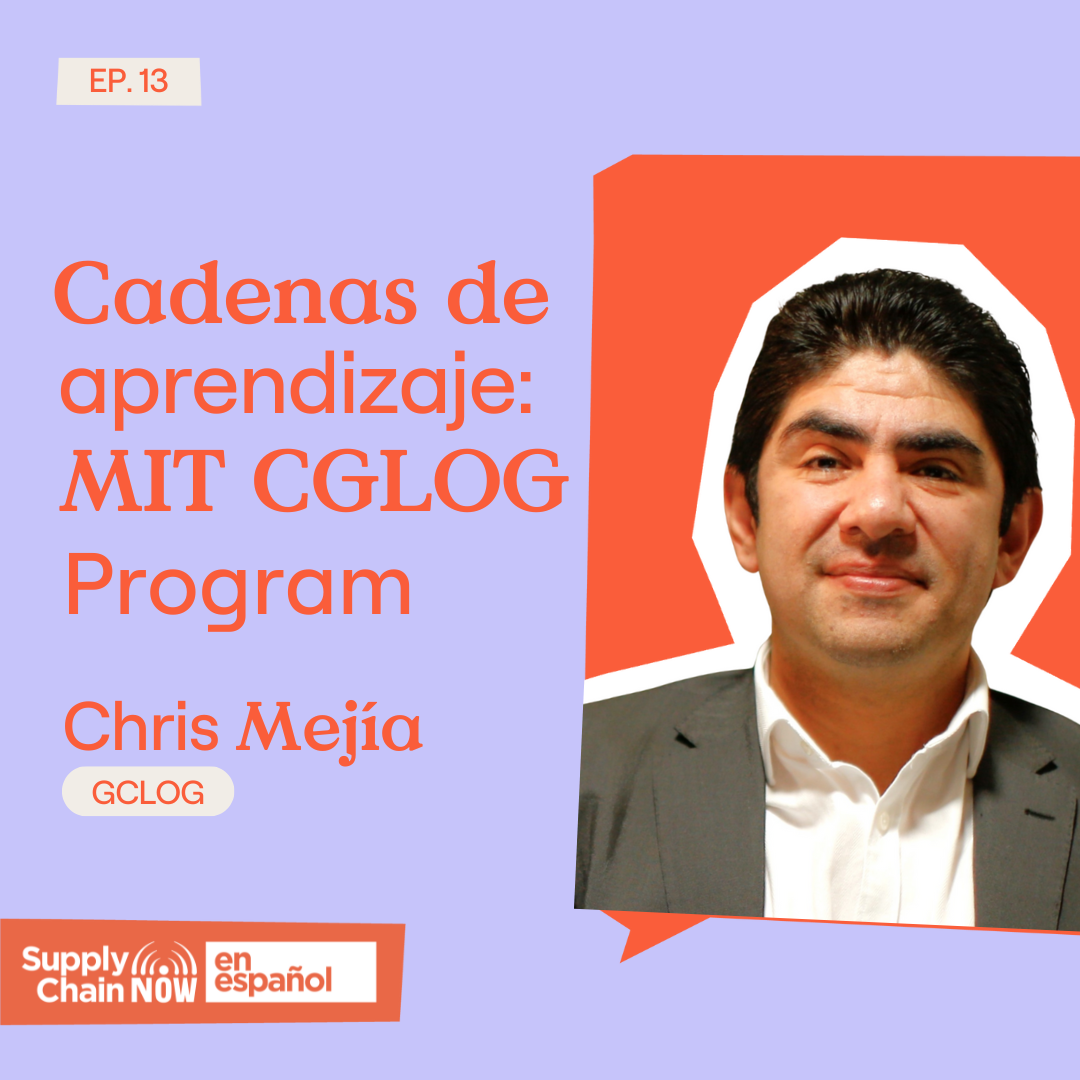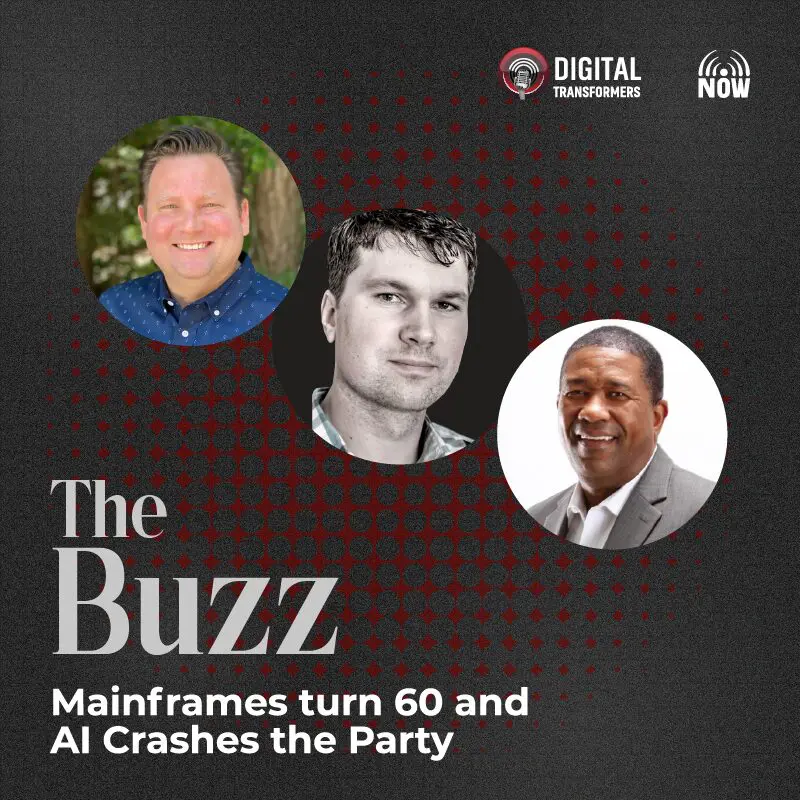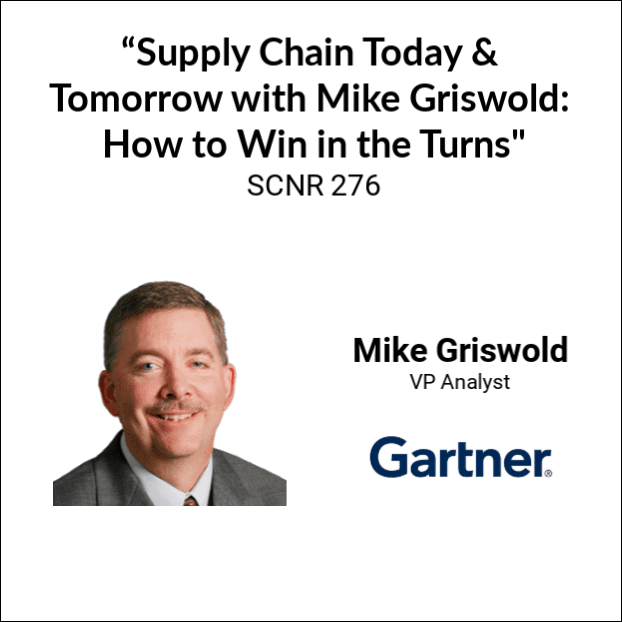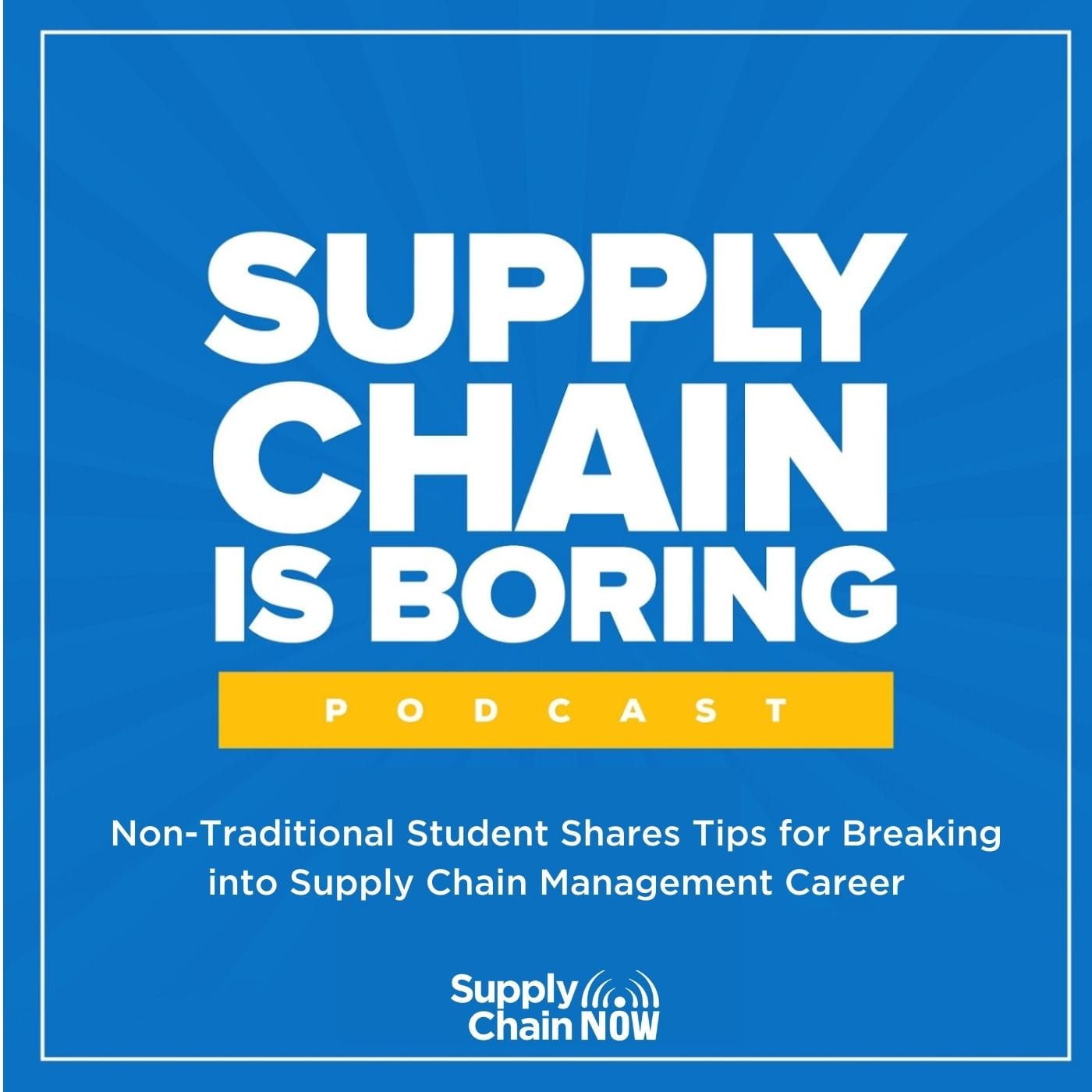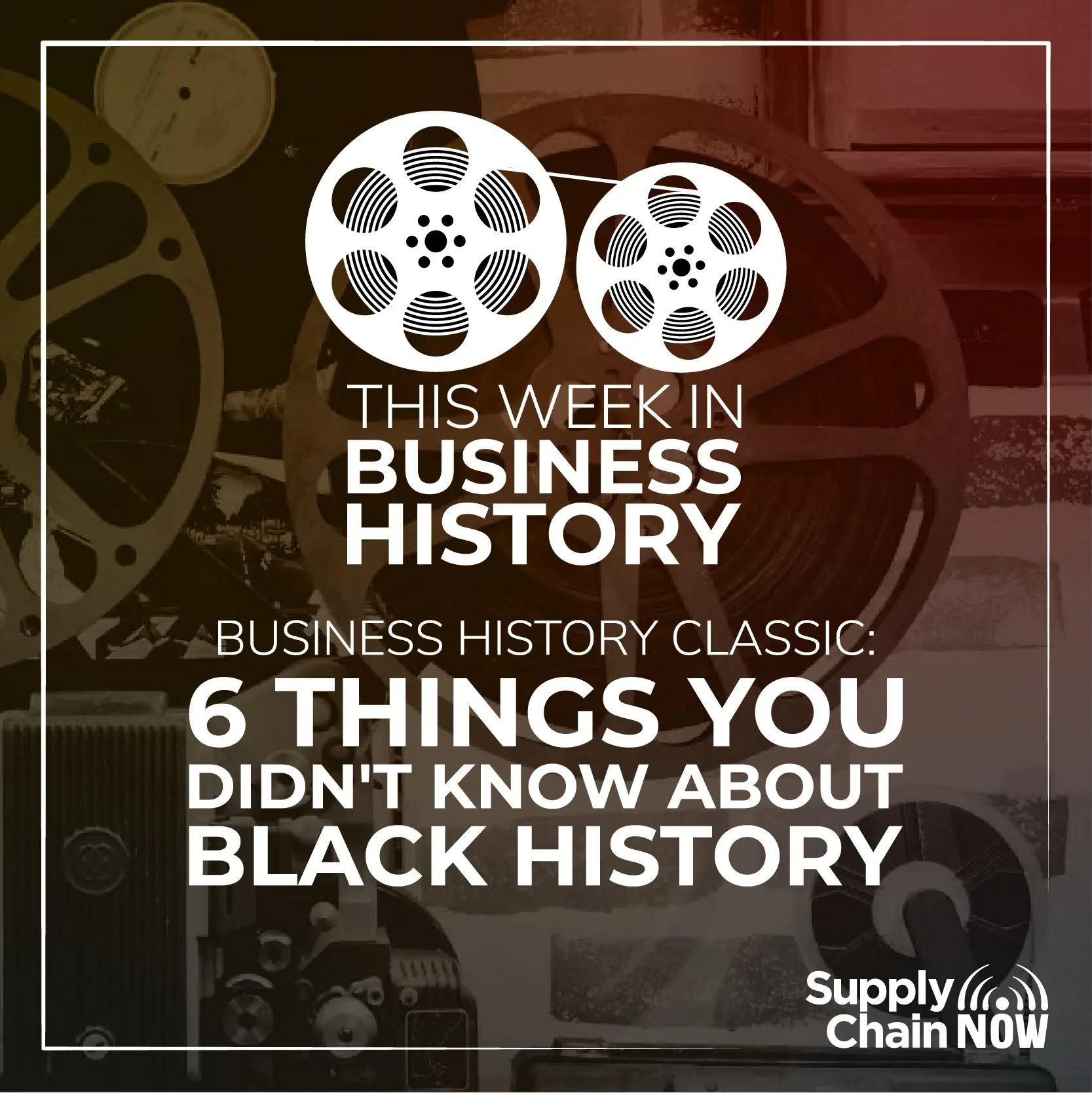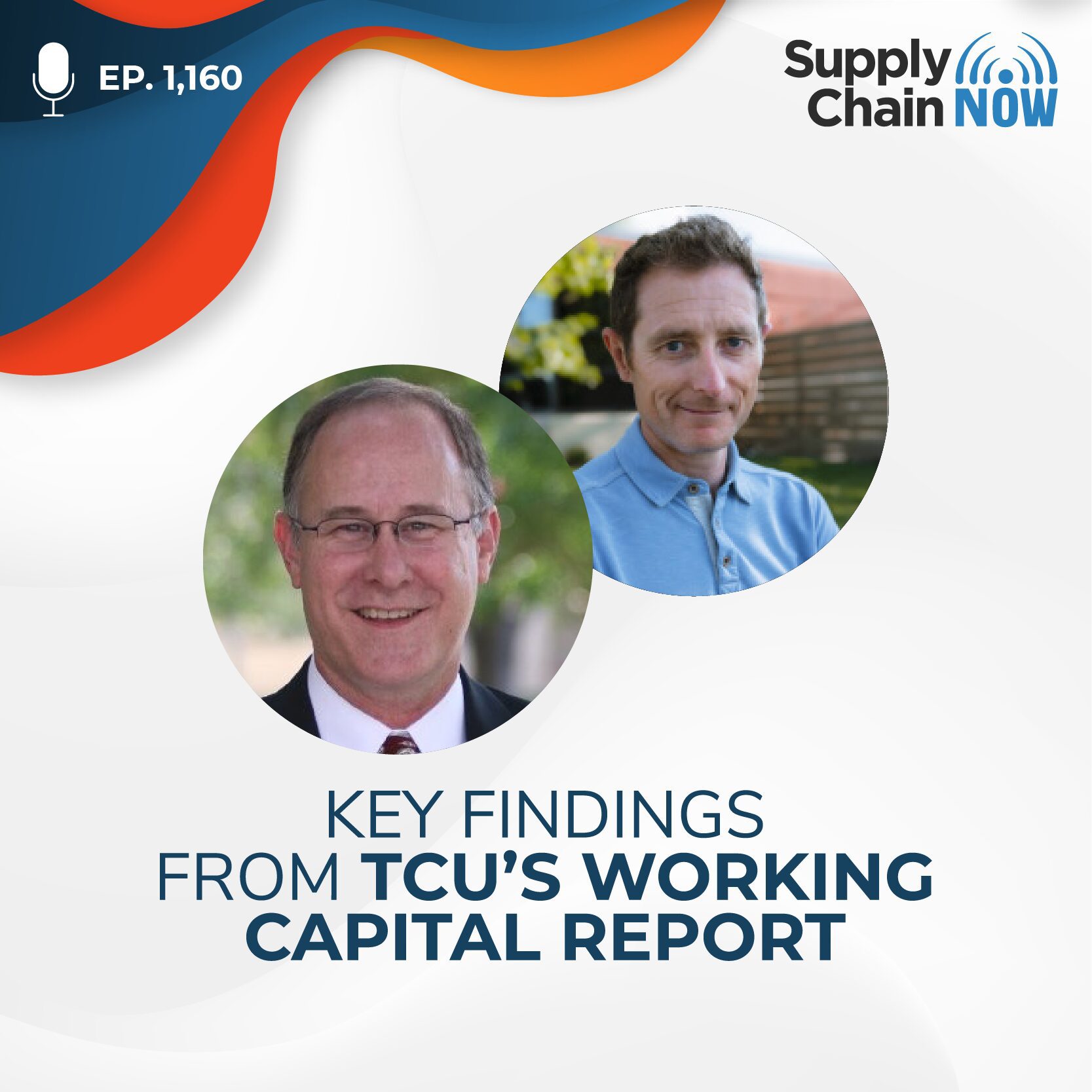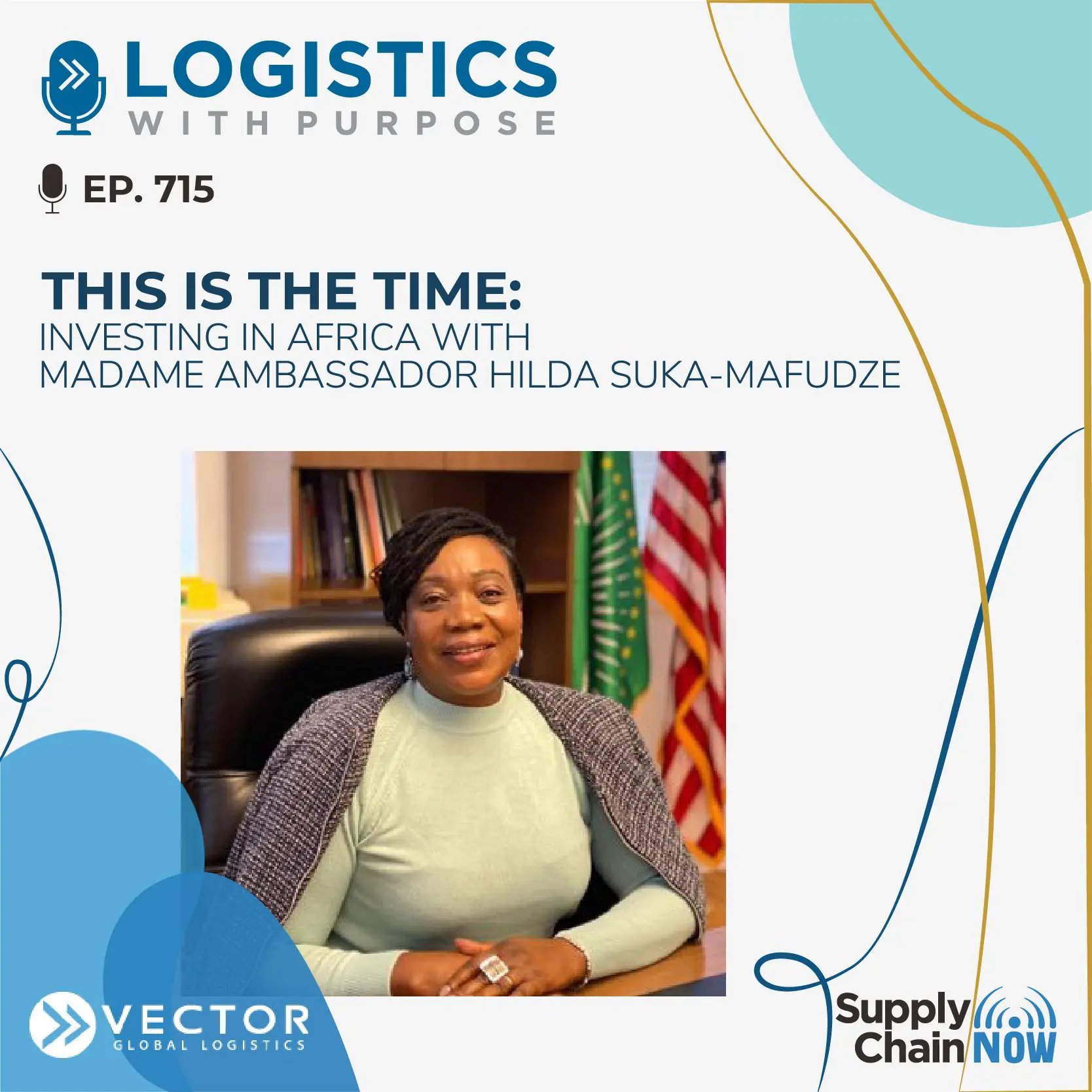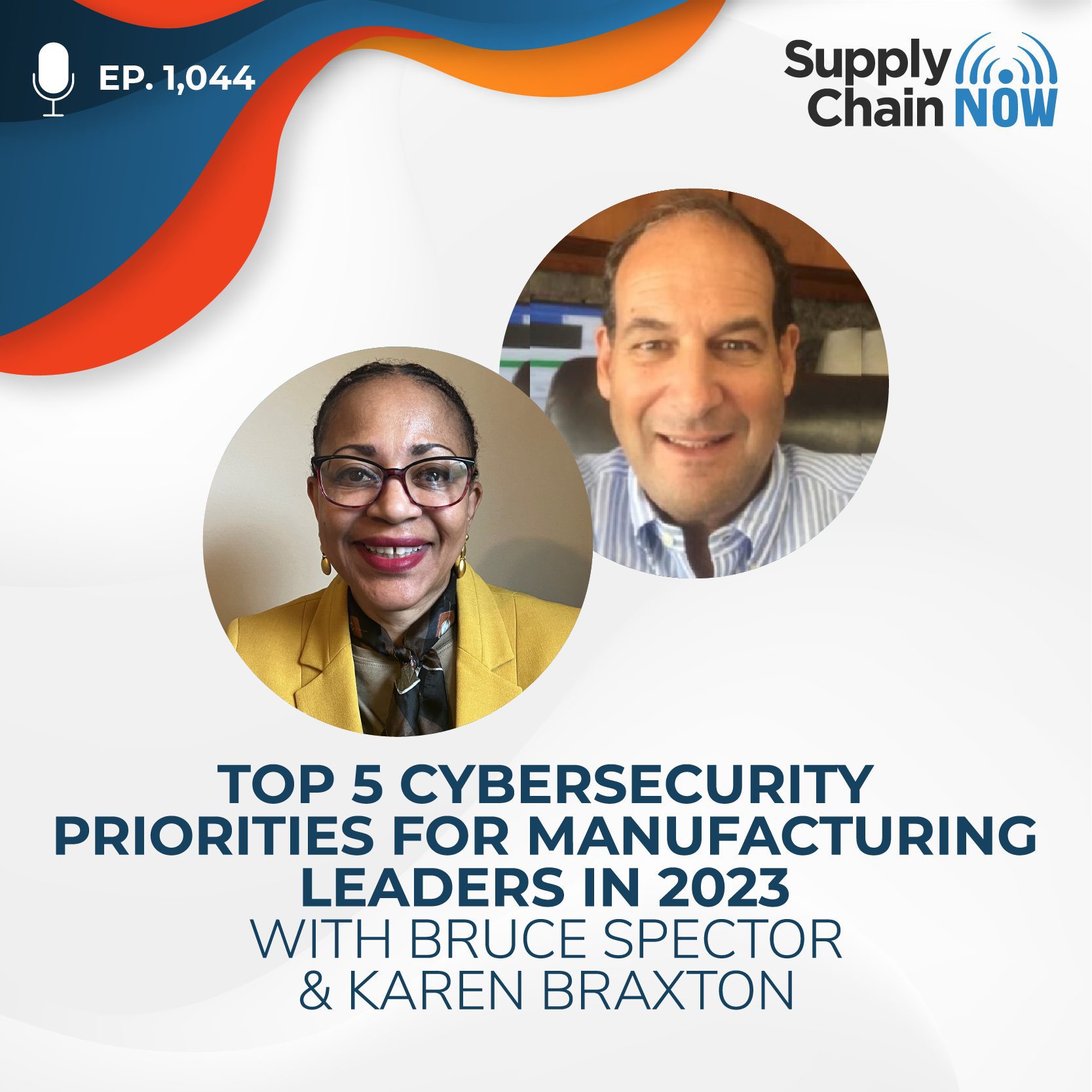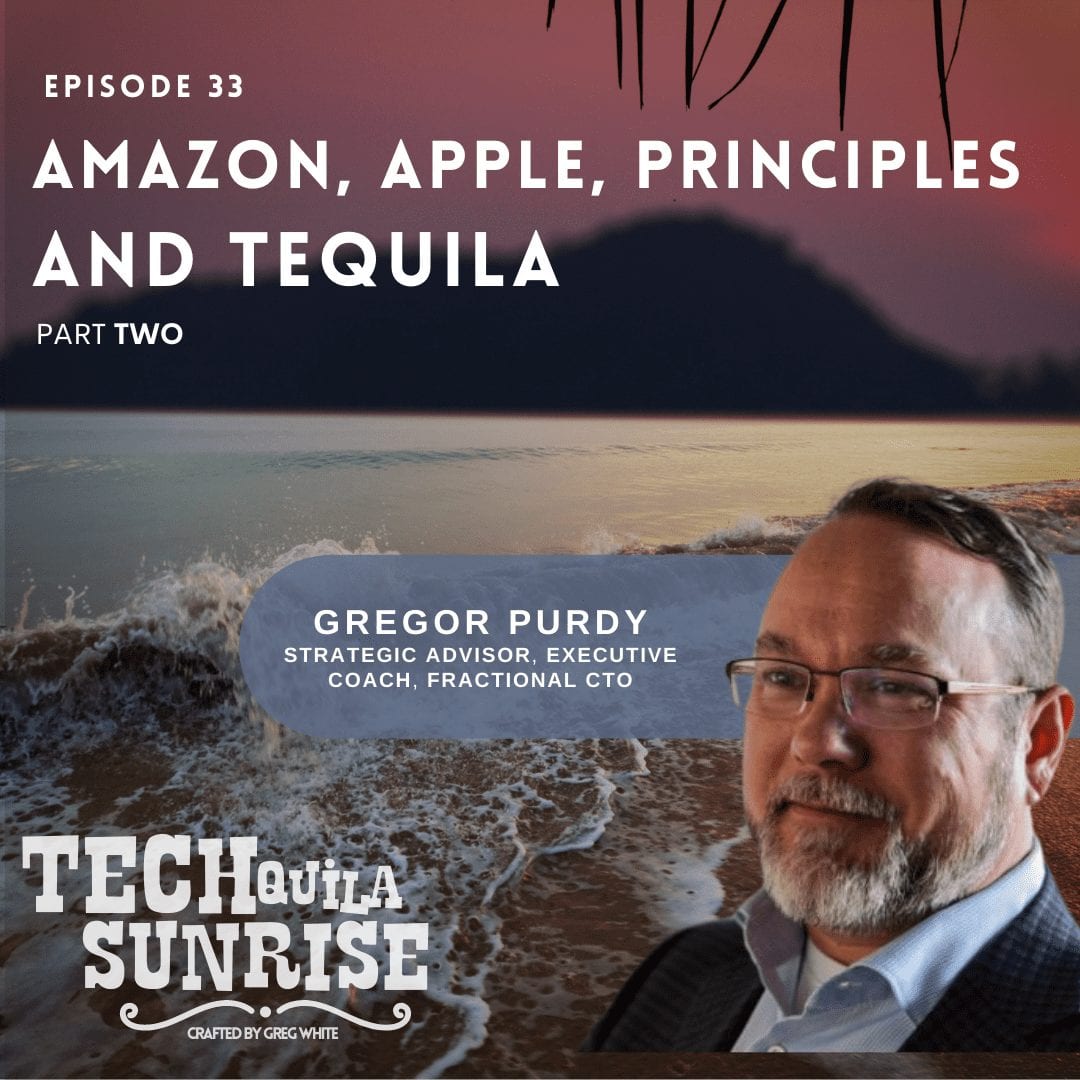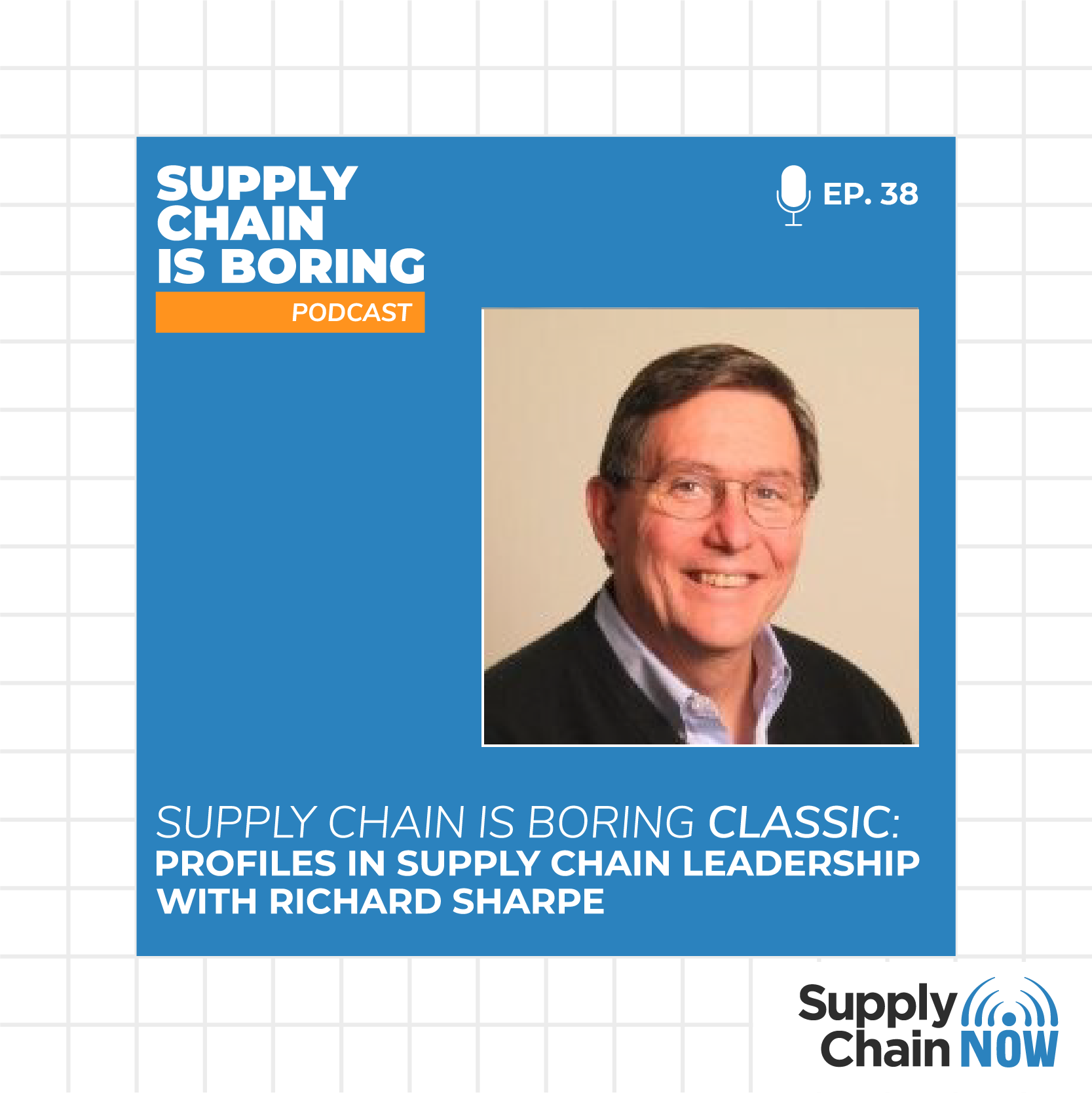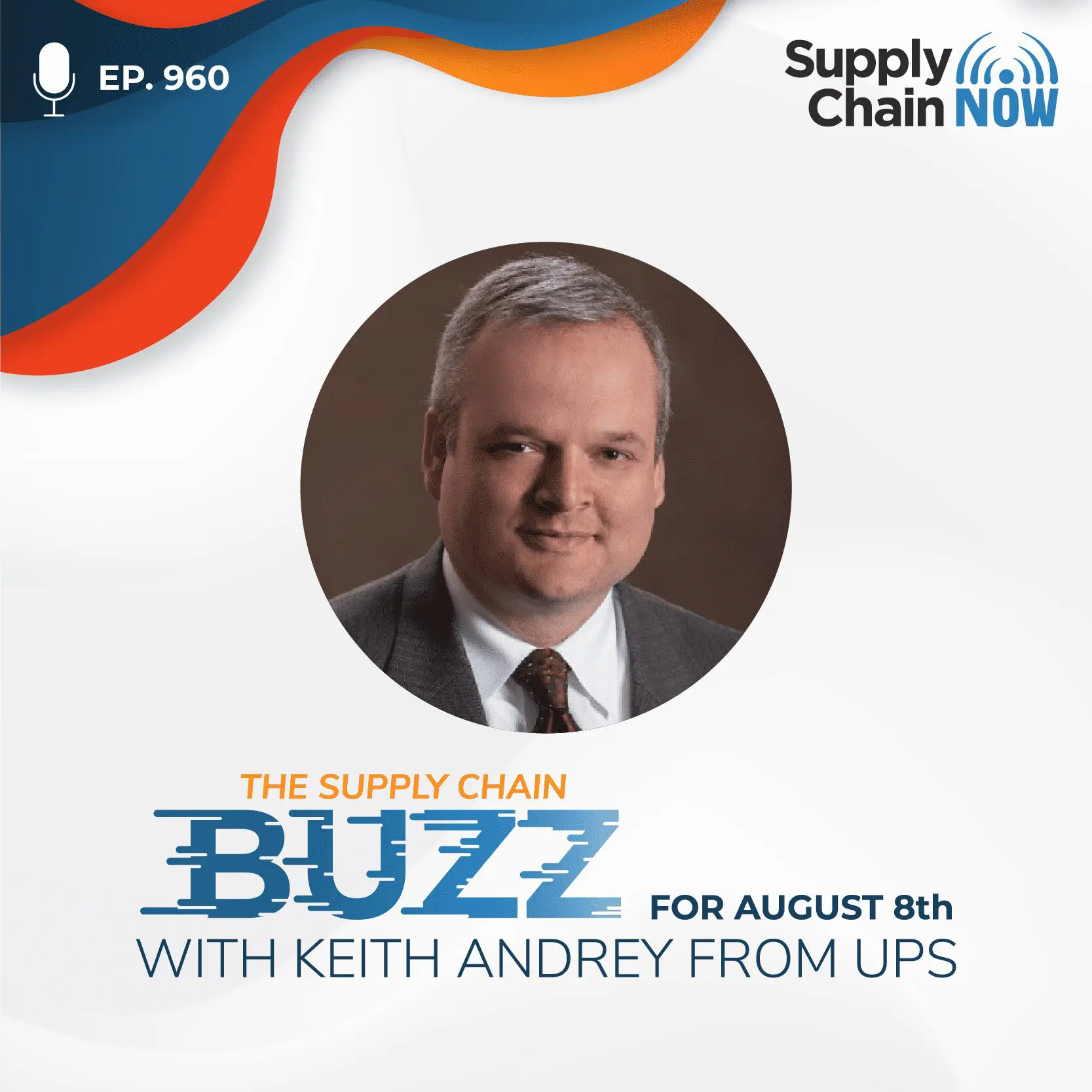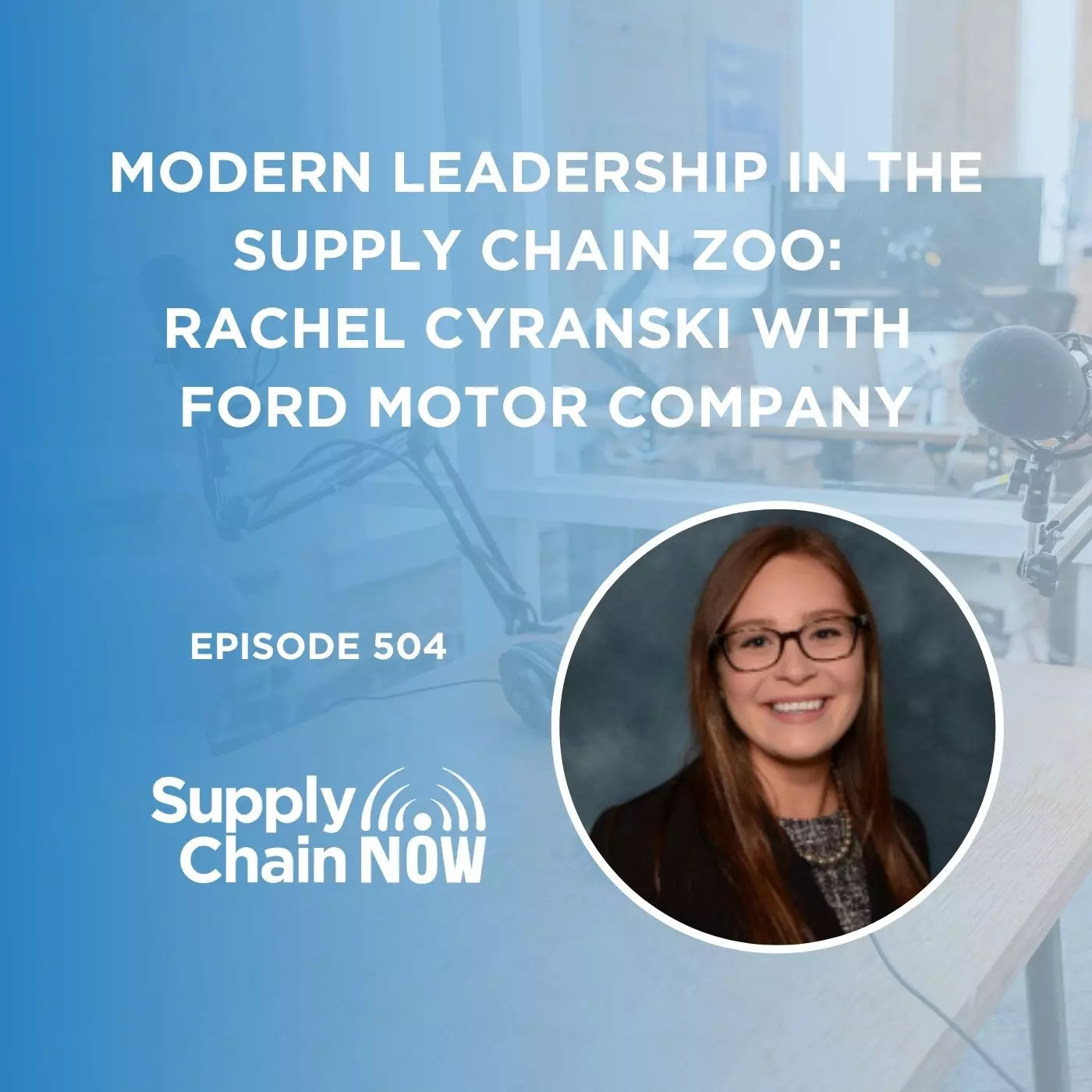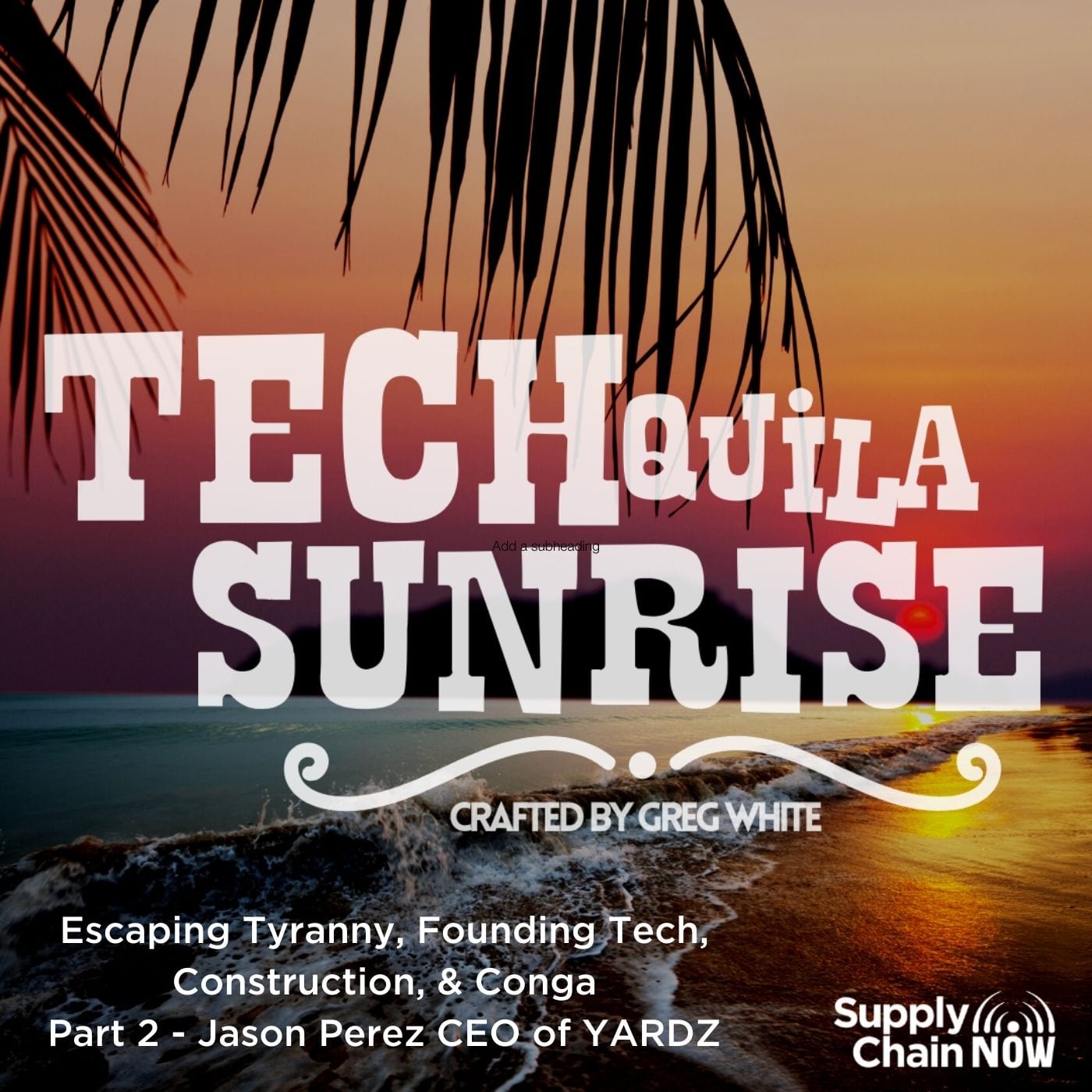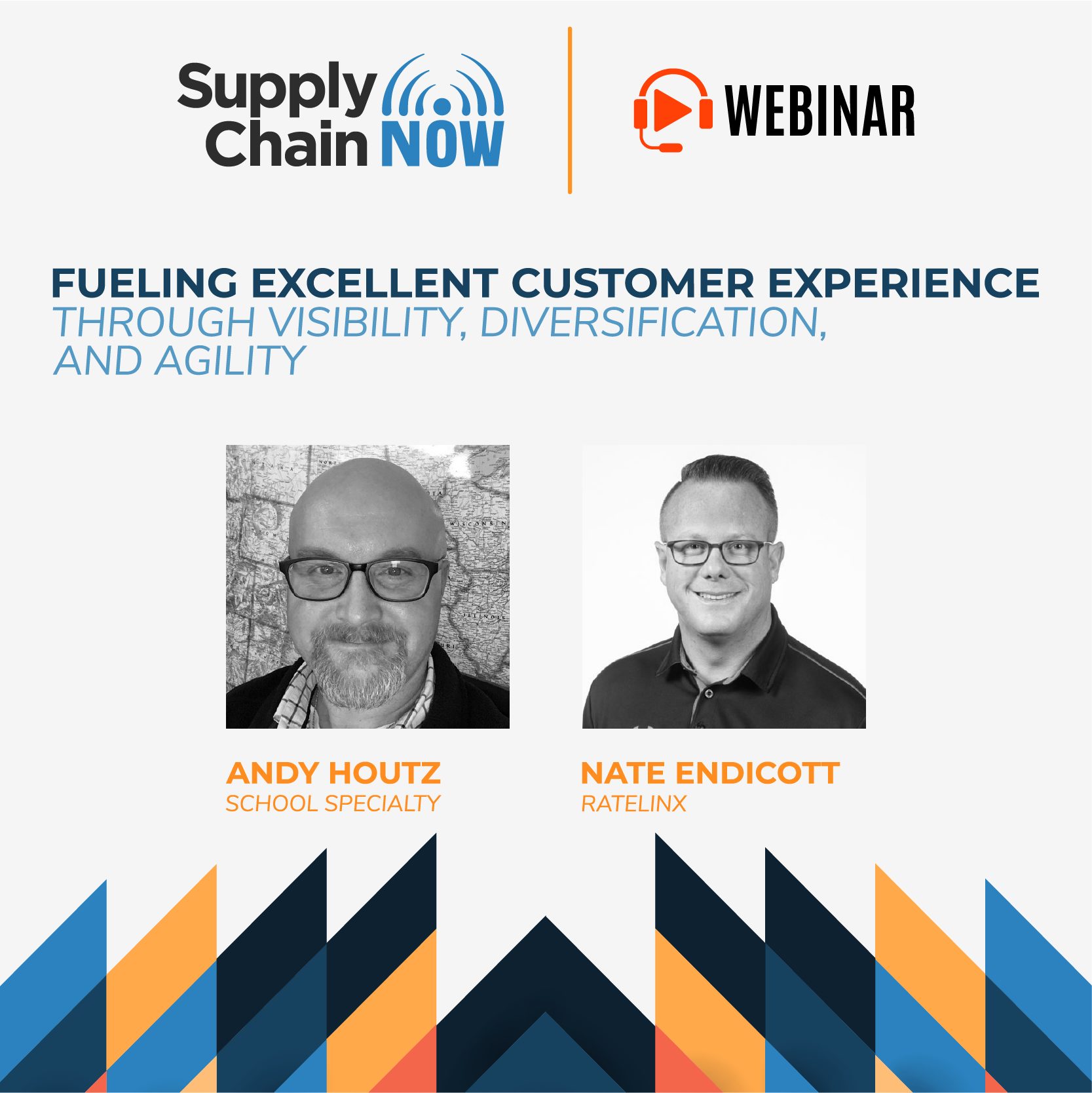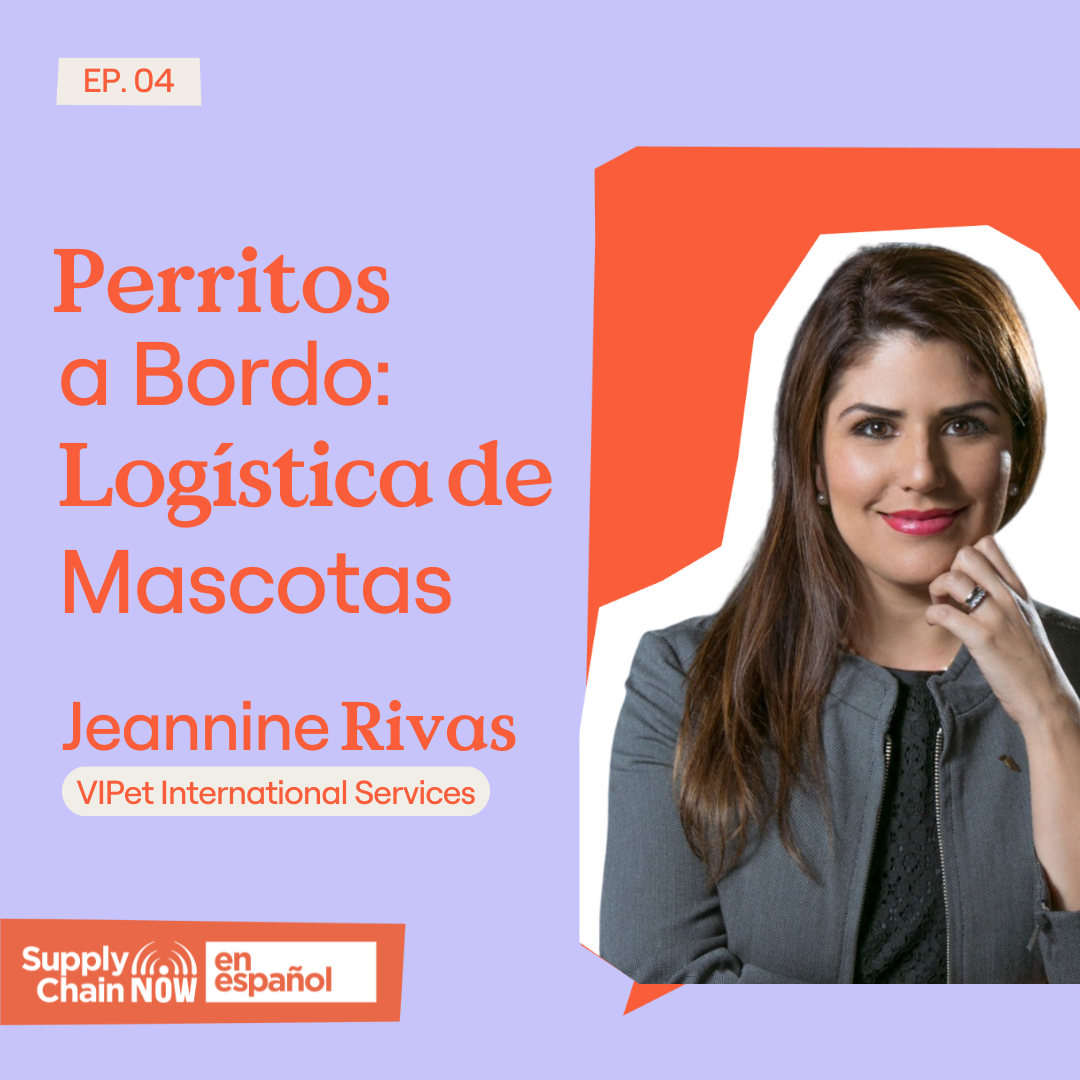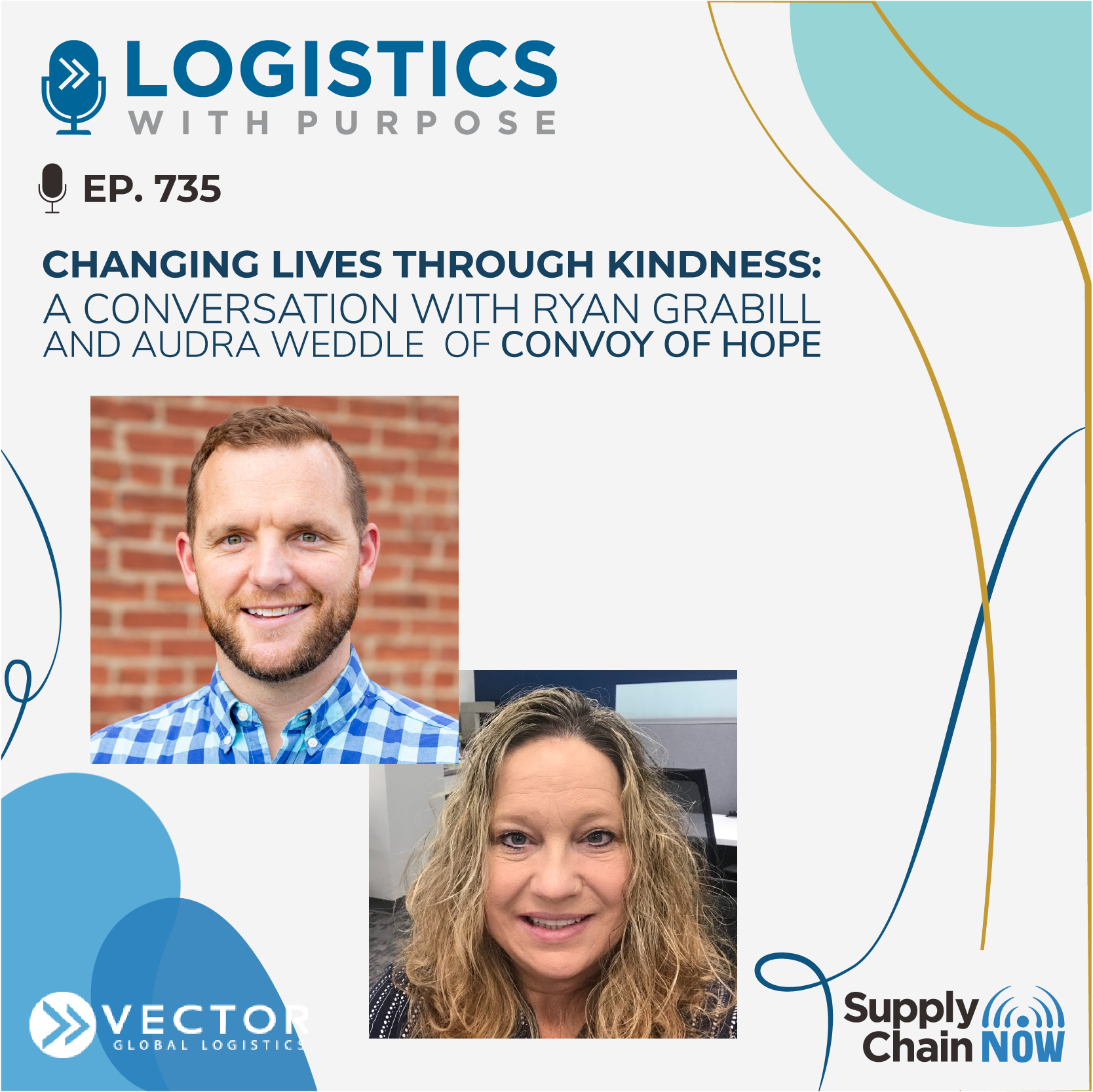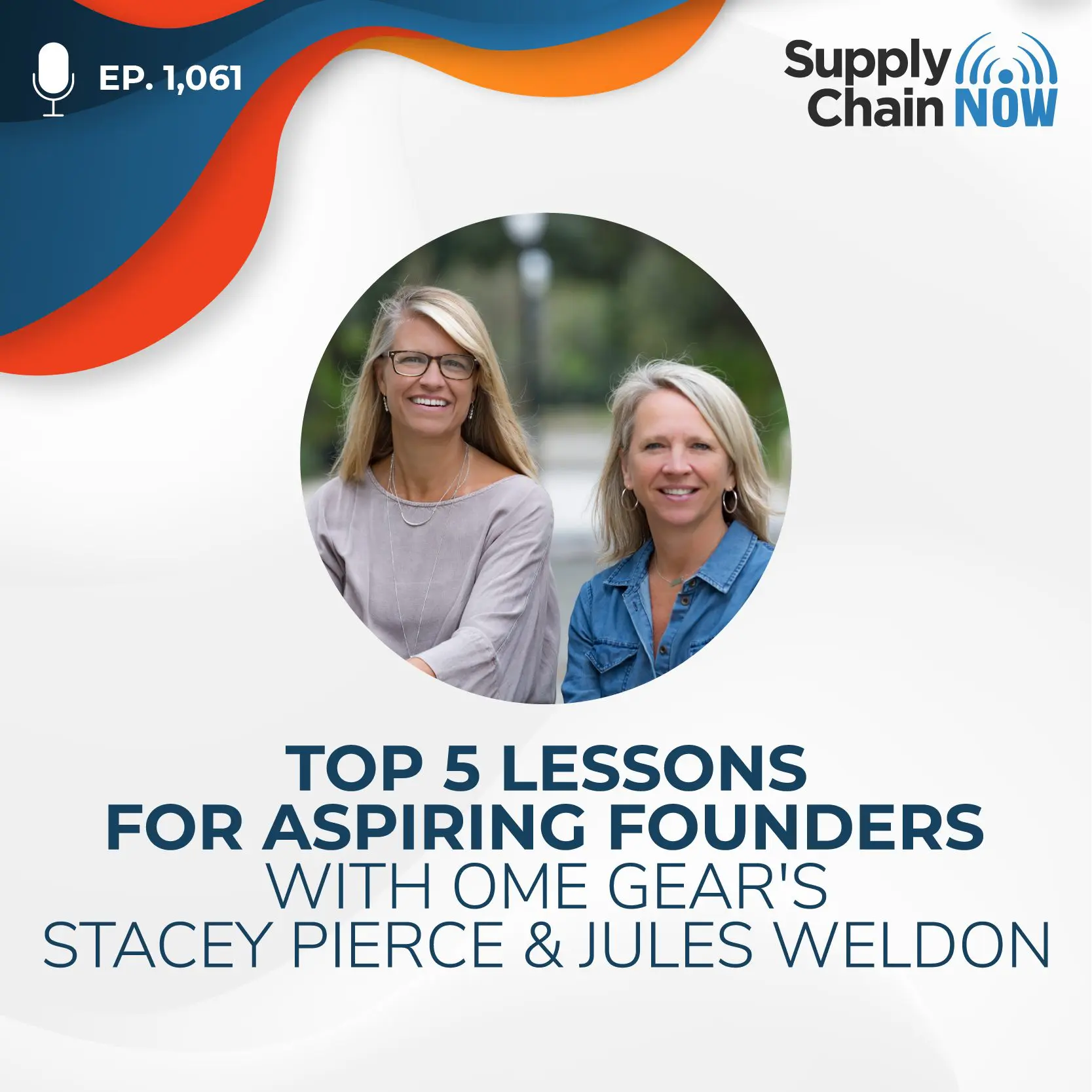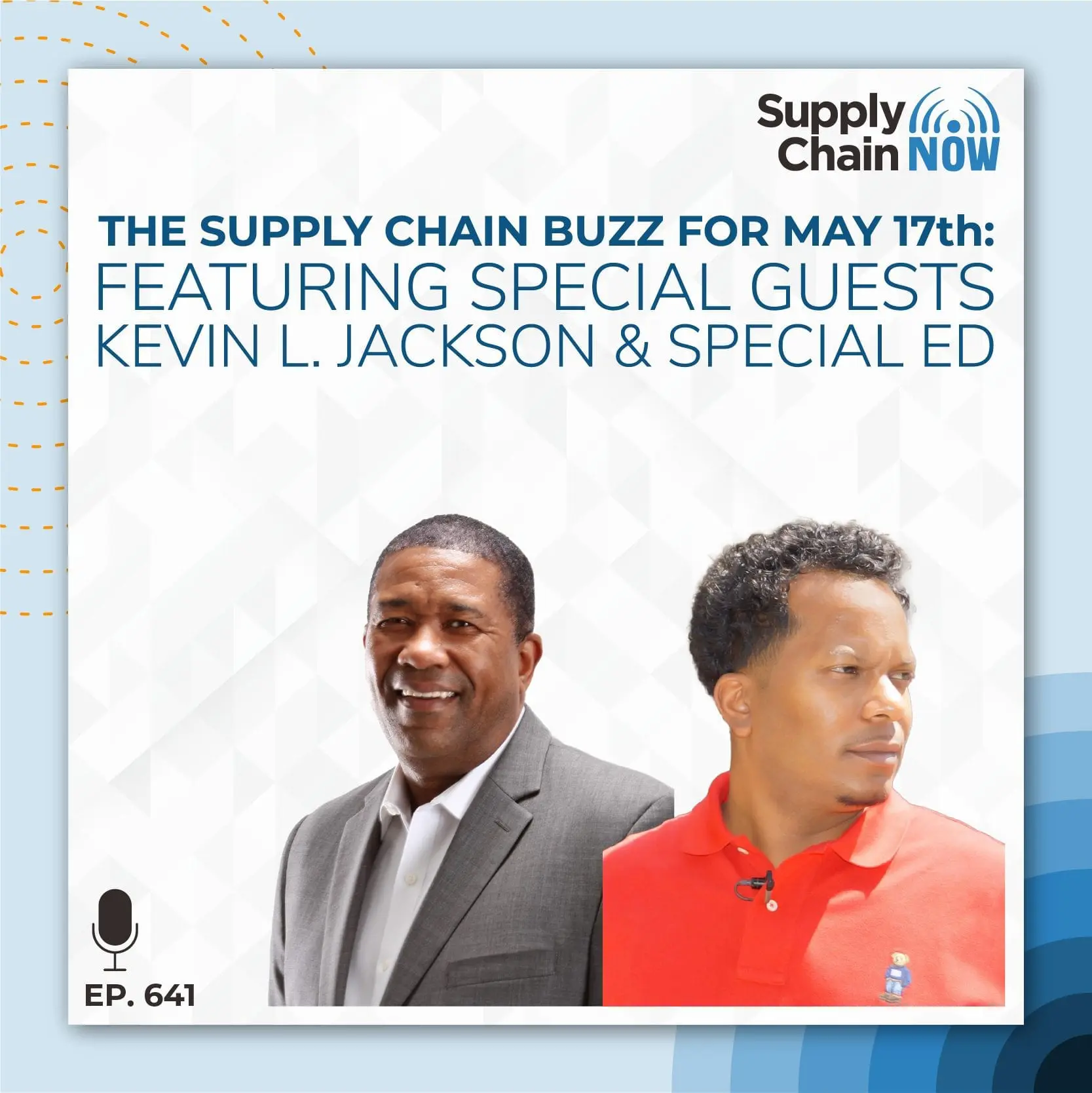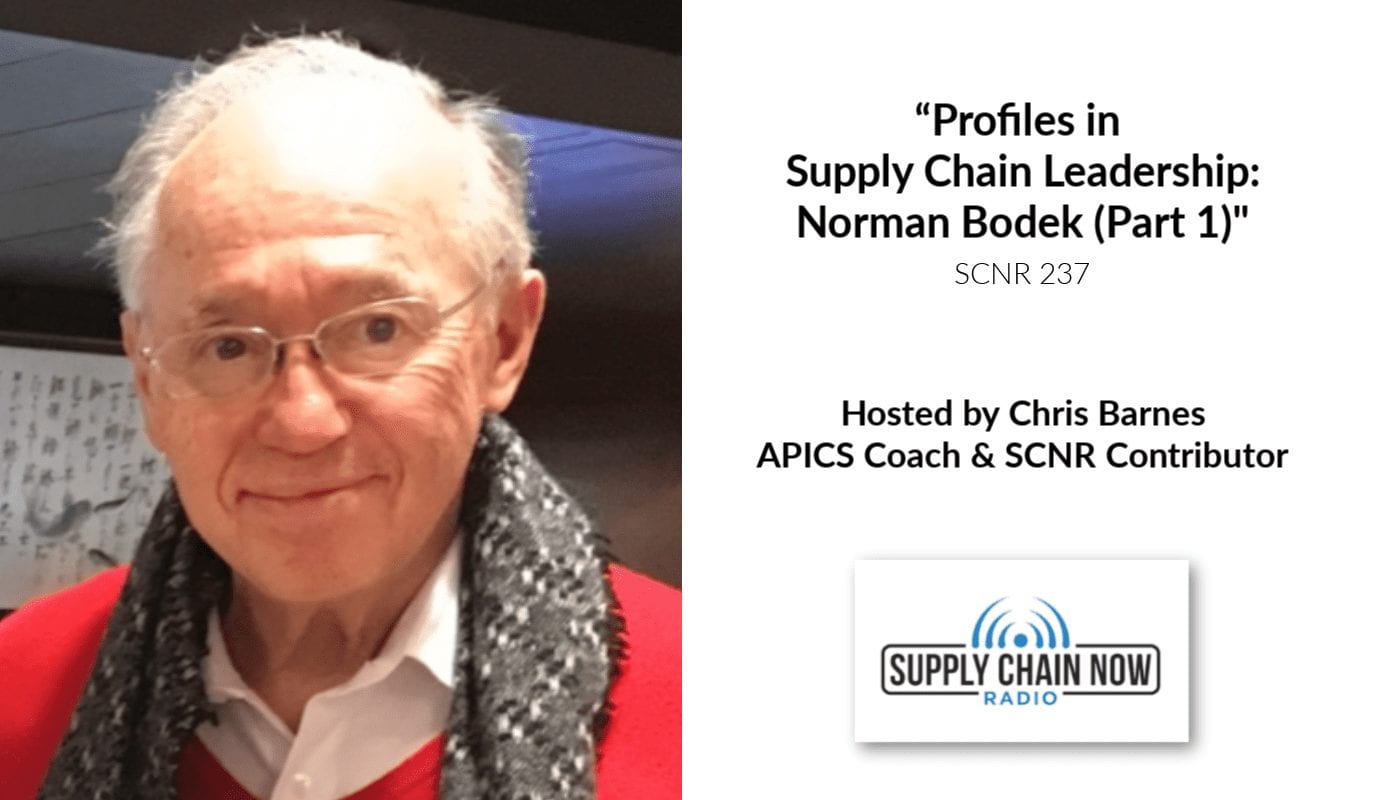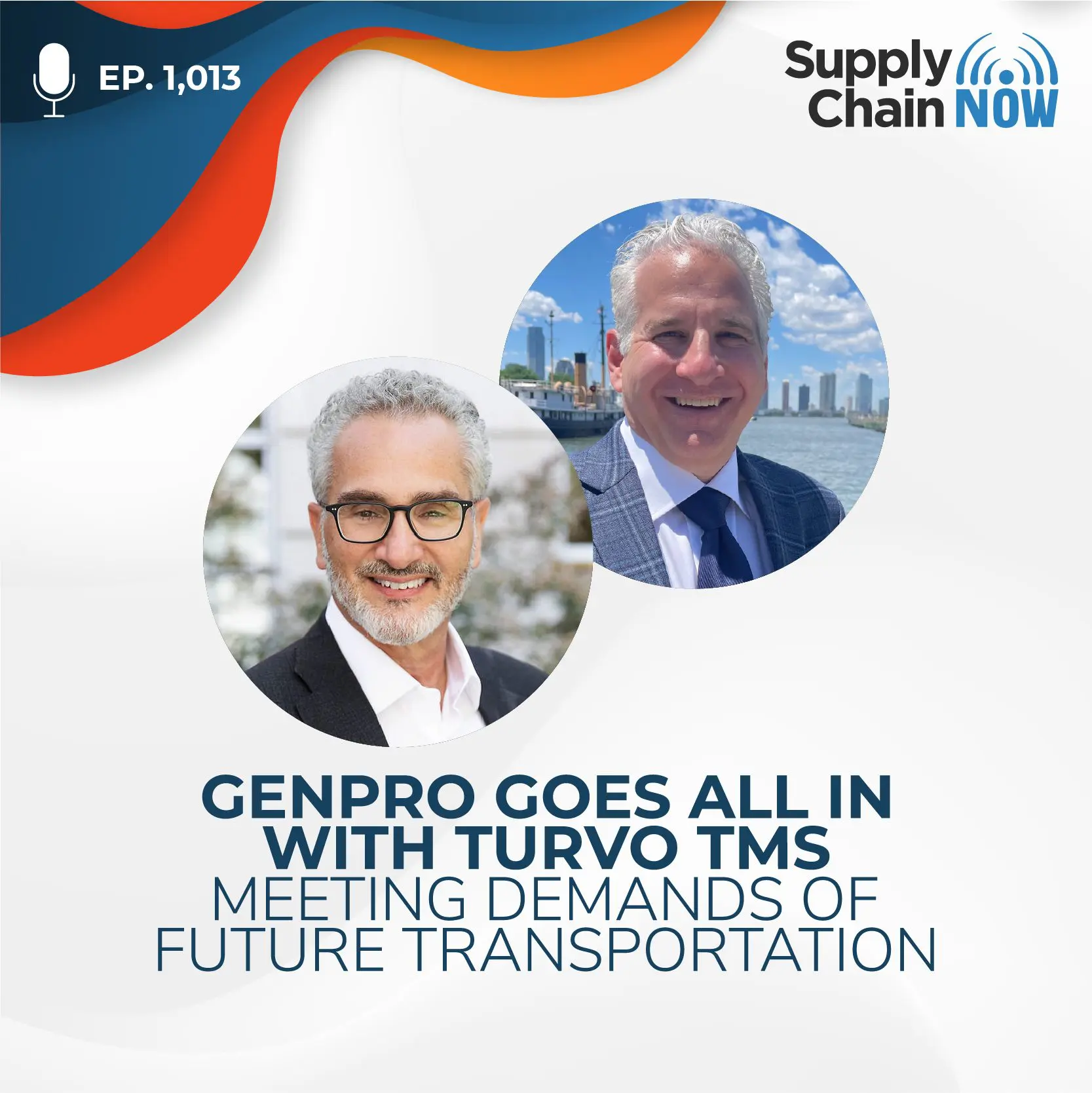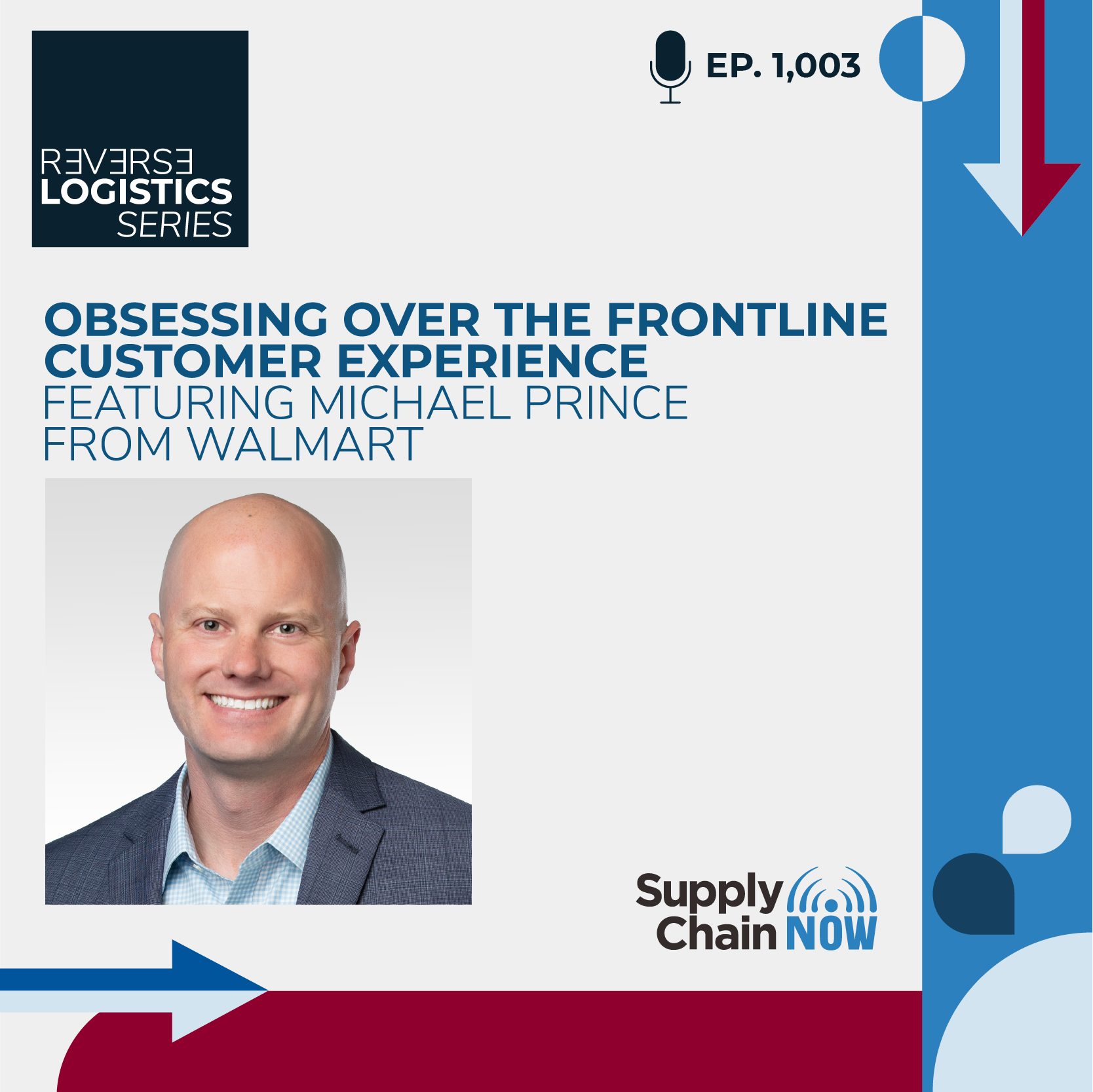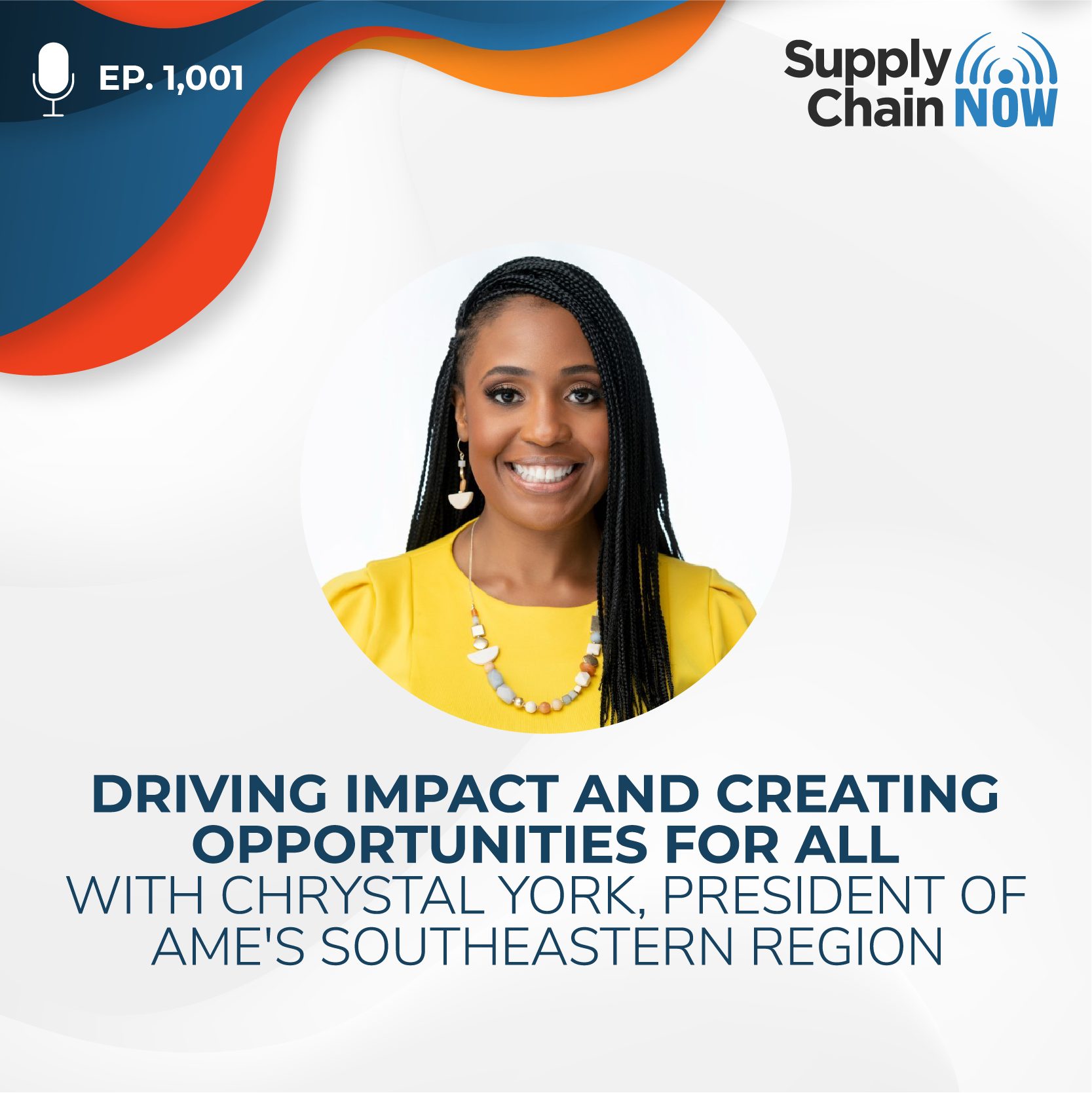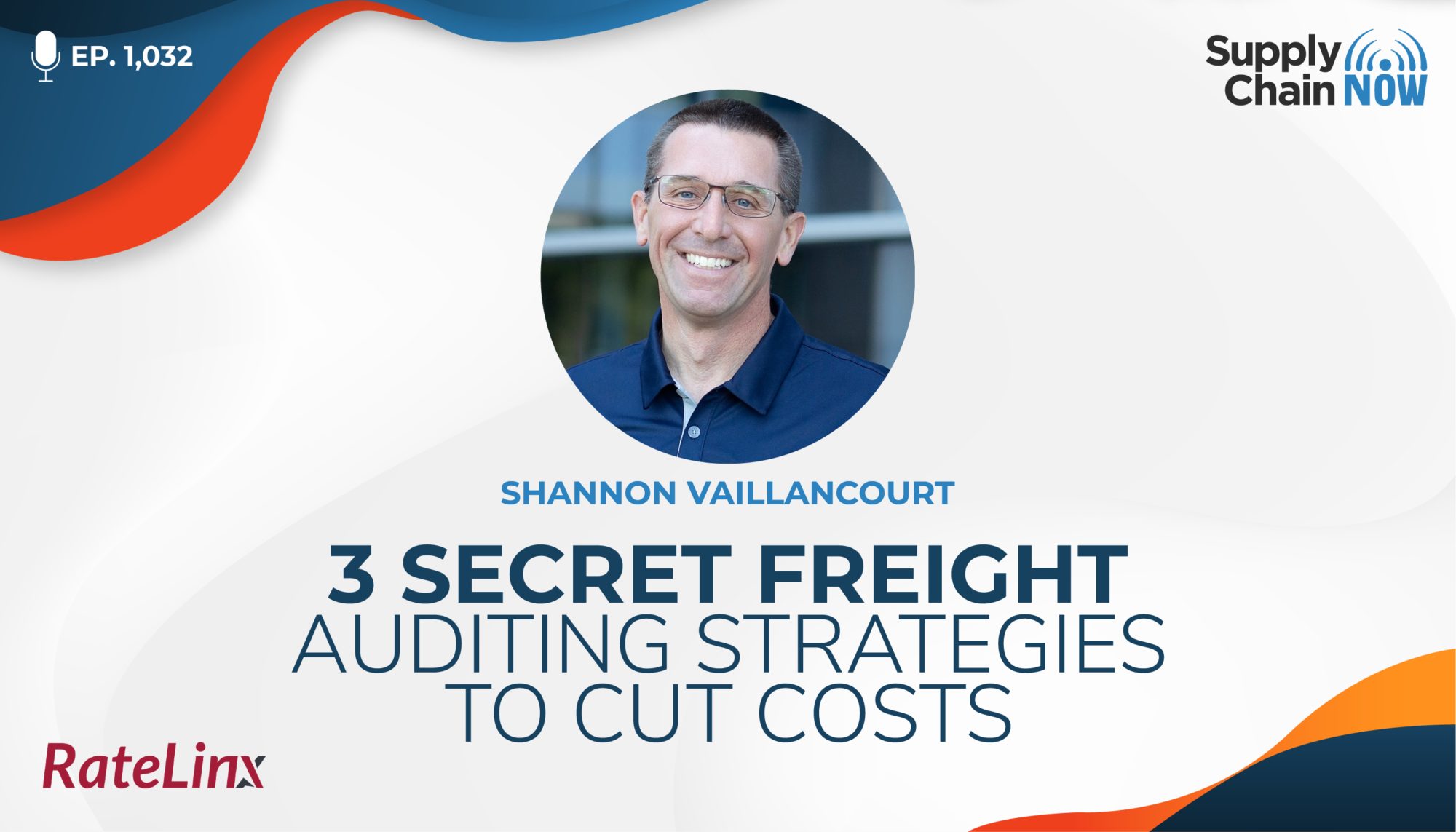
This is the only industry that I've ever experienced in my life that is truly ‘horseshoes and hand grenades.’ Coming from an engineering background, we're about precision, but not freight. Freight is horseshoes and hand grenades - maybe closer to hand grenades.
-Shannon Vaillancourt, President at RateLinx
Episode Summary
The average cost to process a freight invoice is $14. Given the level of complexity this documentation often includes, many likely cost much more than that. It also takes approximately 37 days to pay an invoice, a lag that causes considerable challenges – especially given that 60 percent of freight quotes to not match the final invoice.
In this Supply Chain Now livestream, Scott Luton and Greg White were joined by 20-year industry veteran Shannon Vaillancourt of RateLinx to discuss the keys to unlocking hidden freight savings.
He shared how Fortune 500 companies and SMBs can:
– Eliminate rate tolerances
– Negotiate better RFP rates with accurate historical costs
– Establish and calculate lost savings KPI
Episode Transcript
Intro/Outro (00:00:03):
Welcome to Supply Chain. Now the voice of Global Supply Chain Supply chain now focuses on the best in the business for our worldwide audience, the people, the technologies, the best practices, and today’s critical issues, the challenges and opportunities. Stay tuned to hear from Those Making Global Business happen right here on supply chain now.
Scott Luton (00:00:30):
Hey, good morning, good afternoon, good evening, wherever you are, Scott Luton and Greg White with you here on Supply Chain. Now welcome to today’s live stream, Gregory, how are we doing?
Greg White (00:00:39):
Very good, Scott. Hey, I wanna share something I am, uh, at this little event here. So as we were talking about, it’s, uh, it’s maybe a little bit more stoic version of Mid or of South by Southwest, right? Uh, where a bunch of tech people get together and investors meet with founders and, and try to find good ideas. So, we’re gonna get started right after this. I’m looking forward to it.
Scott Luton (00:01:04):
I, I, I’m looking forward to getting your
Greg White (00:01:06):
A report from the Field
Scott Luton (00:01:08):
<laugh>. I’m looking forward to getting your key takeaways from that session. Maybe share on the buzz on Monday. But regardless, great to see ya. I know you’ve had a big week of travel, um, hanging out with all the movers and Shaker. Speaking of, we’ve got one here today, live with us. So, back by popular Demand, Greg, as a repeat guest business leader who’s firm is doing some really big things in the industry. And today our guests can be sharing three key freight audit strategies to cut those costs. So, timely message and a great show teed up, right, Greg?
Greg White (00:01:38):
Yeah, no question. And in a warmer, in warmer climbs than we are. So, see the envy? This is my envy face.
Scott Luton (00:01:47):
<laugh>,
Greg White (00:01:48):
This is my everything face also envy.
Scott Luton (00:01:51):
Well, folks, hey, we hear from you. So, uh, we’re gonna walk through some really interesting data and some perspective and expertise and some best practices, again, that cut those costs, especially from freight standpoint. Drop your, uh, comments, uh, in the chat and we’ll work those in, uh, throughout the day. So, Greg, with no further ado, and we’ll say hello to a few folks as folks, uh, hit the lunchtime live stream here today. But with no further ado, I’m gonna walk him in, uh, our guest day. You ready to go?
Greg White (00:02:20):
I am ready. Let’s do it without do
Scott Luton (00:02:24):
With that <laugh>. With, with that said, then wanna bring in our dear friend Shannon Vaillancourt president and founder with Rate Lengths. Hey. Hey Shannon. How are you doing?
Shannon Vaillancourt (00:02:38):
Doing great. How are you guys doing?
Greg White (00:02:41):
We’re doing great. All things considered, cuz there was no warm temperatures. Maseratis are golfing mentioned in in our pre show. I noticed.
Shannon Vaillancourt (00:02:49):
Hey, we had a frost delay this morning, so, oh,
Greg White (00:02:52):
Did you really?
Shannon Vaillancourt (00:02:53):
I am roughing it,
Greg White (00:02:55):
Yeah.
Shannon Vaillancourt (00:02:55):
Suffering. This is, uh, this is the face of suffering,
Scott Luton (00:03:00):
<laugh> <laugh>. So
Greg White (00:03:01):
Also your face of everything else.
Shannon Vaillancourt (00:03:03):
Pretty much. Yeah.
Scott Luton (00:03:05):
So we may have two or three folks. Cause you know, of course Shannon’s been with us numerous times. Greg, a few folks out there in our global ecosystem may not know how much of a golf, uh, uh, devoted, uh, enthusiast that Shannon is. He’s really good. So, just a heads up, if you see him out, uh, in the country club somewhere, uh, be him quarters not dollars. Is that right, Shannon?
Shannon Vaillancourt (00:03:27):
No, no, I’m not. I’m the one you wanna bet with. It’s my kids. You
Greg White (00:03:30):
Wanna stay away? Yeah. Those are the ones you gotta stay clear of.
Shannon Vaillancourt (00:03:33):
Yeah. Mean, my, my son is home finally from, uh, Syracuse. He’ll be a PGA professional here in about 45 days. So he’s the one you definitely wanna stay away from. He’s a, he’s a plus.
Scott Luton (00:03:47):
Wow. Okay. Well, we’re looking forward to connecting with him in person and not betting, but getting some lessons from Greg maybe.
Greg White (00:03:55):
Yeah. He won’t even set foot on the course with us, Scott, if he’s smart, that that could only do damage to his game
Scott Luton (00:04:01):
And, and reputation. That’s right. Yes,
Greg White (00:04:03):
That’s true.
Scott Luton (00:04:04):
<laugh>. Hey, really, really quick. Wanna say hello to a few folks? Uh, we’ve got Jonathan tuned in with us, uh, Jonathan, let know via LinkedIn where you are tuned in from. We got Mike Dwf, uh, from Croatia tuned in via LinkedIn. Mike, great to have you here. I beautiful. Hey, Kevin Bell is back with us. He was in Atlanta last week. Uh, we’re an inch of supply chain co or where a bunch of supply chain conference attendees were staying in a certain hotel. Well, Kevin, great to have you back and appreciate all that you’re doing out in industry. And finally, Mark Preston, uh, a continuous improvement opex lean guru, and then some Mark. Great to have you here and appreciate all that you’re doing out in the industry and look forward to reconnecting soon with you. Um, okay, so Shannon and Greg, uh, golf was not our fun warmup question here today, right?
Scott Luton (00:04:52):
Uh, what I, where I wanna start before we get into, um, a lot of, uh, powerful, uh, freight perspective is this day in business history. So, get this Shannon and Greg, and this day in 1969, Dave Thomas Yes. That Dave Thomas opened. Mm-hmm. <affirmative> the first Wendy’s old, old fashioned hamburger restaurant in downtown Columbus, Ohio. Now he named it for his eight year old daughter Melinda, whose nickname was Wendy. So, with that as a backdrop, uh, and this might be, this is gonna be some contentious part of our conversation, man. With that as a backdrop, Shannon and then Greg Shannon, what is, uh, a place where you can get a good burger that’s more or less widely available? So not talking about a hole in wall place, there’s plenty of burgers there. What’s a good burger that is more widely available?
Shannon Vaillancourt (00:05:42):
You know, that’s a great question. If I was, I was still in my twenties, I could probably tell you <laugh>, um,
Scott Luton (00:05:49):
<laugh>,
Greg White (00:05:49):
Right? But your doctor,
Shannon Vaillancourt (00:05:53):
It’s like, yeah, when you hit my age, it’s not a good idea anymore. Um, shuts you down, I would say. I mean, I gotta go back and I’m gonna go back. So I’ve had the pleasure of working at McDonald’s parties and a and w Um, and so I go back to those days and I would say probably Hardee’s, um, just from the nostalgia and that timeframe, you know, if it’s still good today, I don’t know, I don’t, it’s not really my thing anymore. Okay. But, uh, I’d have to go back to Hardee’s, um, if I’m going back to the days when I would consider myself more of a burger connoisseur.
Scott Luton (00:06:37):
Okay. That’s that’s a good one. And I’ll tell you, I know you were sharing things with us pre-show about Dave Thomas. The Hardy’s backstory is also interesting because the founder that founded the company, or the first one in North Carolina that gave it its name Hardy, um, was separated from the corporate behemoth early on in, in the lifetime. So y’all Google that. Um, alright, so Greg Hardee’s was Shannon’s suggestion. What would be your answer to that? Where can you get the first, get a really good, more or less widely available hamburger?
Greg White (00:07:07):
Yeah, A quick, uh, useless tidbit. Hardee and Carl’s Jr. Which you have in Phoenix, Shannon, are now the same company.
Shannon Vaillancourt (00:07:15):
Yep.
Greg White (00:07:16):
Um, I’d be interested if you try Carl’s Jr. If you can get permission, how you rate that versus a Hardee’s burger.
Shannon Vaillancourt (00:07:23):
I, you know, it’s like I would, you know, the problem is with the, with the Hardee’s burger, you know, that goes back. I mean, that’s where I met my wife, um, back in the day. So it’s like, that’s gonna be a tough one to talk.
Greg White (00:07:35):
Yeah.
Scott Luton (00:07:35):
For a variety of reasons too. So, Greg, stand and deliver, what is it?
Greg White (00:07:41):
In and out, a hundred percent in and out. Freshest meat. Freshest vegetables you can get. Um, yeah. And, and the greatest way to cause controversy and fast food burgers, <laugh>.
Scott Luton (00:07:55):
All right. So we’re gonna have to try one of those, uh, on one of our next
Greg White (00:07:58):
In and out. Double, double with cheese animal style.
Scott Luton (00:08:01):
Oh man. So, cause
Greg White (00:08:03):
All this secret used to be secret menu. Now it’s all on their website. But go on Shannon.
Shannon Vaillancourt (00:08:08):
I’ve done, I mean, I, you know, I’ve heard the, the lore of In and Out and I remember going there and I was like, that’s it, <laugh>.
Greg White (00:08:18):
I just like that. It’s, you can count on it to be fresh. Right? We’re gonna get, I guarantee we’re gonna get somebody from Texas who says, think also a good
Scott Luton (00:08:27):
Burger, folks, to Greg’s point, y’all let us know we’re way in. Where do you see a good burger? So this LinkedIn user hard to pick between Wendy’s and in and Out. I would add one more to the discussion before we move on. This Freddy’s my kids turned me on this Freddy’s place <laugh>. And I’m gonna tell you, um, that was a really good burger. I, I took the kids I think last week, week before last. And, uh, the fries are really tiny. They’re not McDonald’s fries. Greg and Shannon know we’ve, we’ve called quite a turmoil last time we talked about the best fries. But anyway, I’ll check out. Freddy’s. What’s that, Greg?
Greg White (00:09:01):
I said we shouldn’t even go go towards fries. So Freddy’s is also from Wichita, Kansas.
Scott Luton (00:09:07):
Ah, okay man.
Greg White (00:09:08):
And it’s, it’s a, it’s a chain version of a really, really, uh, good burger stand in Wichita, which I will not name because it’s top secret.
Scott Luton (00:09:21):
Okay. All right. So a few other folks weigh in and then we’re gonna get down to business. So Cecil says in and out period. I love that. Uh, mark says Ted’s bison burger. I’ve had one of those before. I said that is a good burger. Mark and Amanda, me and my son Ben love Whoppers from Burger King, the McDonald’s french fries by a mile
Greg White (00:09:41):
For the win.
Scott Luton (00:09:42):
For the win. That’s right. And big thanks to Amanda, Chantel and Clay for helping to make production happen today. Okay. So we gotta get down to work as much as I wanna talk about burgers over the next, uh, hour or so. And by the way, clay says five guys not too
Greg White (00:09:56):
Shabby. That’s a really good word.
Scott Luton (00:09:58):
Agreed.
Shannon Vaillancourt (00:09:58):
Not too cheap either, <laugh>.
Greg White (00:09:59):
Yeah, we’re not too cheap
Shannon Vaillancourt (00:10:02):
For that price.
Scott Luton (00:10:03):
That is a perfect
Shannon Vaillancourt (00:10:04):
On a taste per, per dollar. I don’t know. It’s,
Scott Luton (00:10:08):
Oh Shannon, that is a great segue. Perfect segue cause where we’re gonna start our conversation today. Uh, you view life, view the universe through a data lens, right? Shannon, we’ve learned anything about you working together for the last couple years. You’ve got that analytical mind and, and making use cases and business cases with each decision, each conversation. So on that note, I wanna start with a little, did you know segment, cuz you and the, uh, rate links team have collected a variety of data points that might suppress some of our audience members. So, so share a few of those here.
Shannon Vaillancourt (00:10:43):
All right. So we did some, did a little research here on freight audit and just a couple tidbits we found. Uh, so the average cost to process an invoice,
Scott Luton (00:10:58):
A freight invoice, right invoice,
Shannon Vaillancourt (00:11:00):
Freight invoice, uh, is about $14. I would argue that it would, I think it depends on the freight invoice. I think there are some that are even more, I mean, unless you’ve lived the dream and tried to do one yourself, it’s, it’s complicated. I mean, I remember 20 years ago when we first got into this and I got the first freight invoice and tried to do it by hand, I would argue that it cost a lot more than 14 bucks, uh, to audit that thing. And that’s what, uh, caused me to write the whole system, uh, back then. Really? Yeah. Yeah. Cuz it was, yeah. I mean, I can tell you the long boring story, but we don’t have enough time for that one.
Scott Luton (00:11:47):
But,
Shannon Vaillancourt (00:11:47):
But that’s what started the whole thing was I got a real freight invoice and I’m like,
Greg White (00:11:52):
Voice it half a day on it.
Shannon Vaillancourt (00:11:53):
Oh my God. I swear to God. I’m like looking at it and I’m like, oh my God, the sun’s setting and I’m still got this thing sitting in front of me and I’m paralyzed. I don’t know. I’m like, there’s gotta be a better way.
Scott Luton (00:12:05):
Well, one quick takeaway. I love, and, and Greg, I think we’ve talked, talked about this before, you know, Shannon’s been there and done it. It’s felt the pain and that what did fuel the genesis of, of rate links is doing big things out in the industry, right?
Greg White (00:12:19):
Yeah. And I think that’s, I mean, that’s where you look is you find a common and painful inefficiency in the marketplace and you solve it. Yep. Right? And I mean that’s just, that is really just the start of it for you Shannon. But I mean that’s, that is the root of technology when, you know, when someone of Shannon Shannon’s level spends half a day or even just a couple hours on a, on a freight invoice, that is a huge expense. Mm. Right? And then you multiply that times the number that you get every single day. And it is, you know, just, you can just imagine growing hordes of people doing this thing and then that’s when technology starts to really make sense.
Scott Luton (00:13:02):
Yep. Agreed. So Shannon, talk about, uh, uh, how, how long for a freight bill be paid after shipment delivery or the service, uh, being completed? Tell us about that.
Shannon Vaillancourt (00:13:12):
So the average is about it, it’s over a month. Uh, so 37 days is what we found, which is, again, I can believe it. Uh, when you think about all the, the things you have to do with a given invoice, not only do you have to audit it, you know, after my, after the sunset, it’s like, okay, now you gotta make that decision on payment. You gotta allocate it to the correct GL code, do whatever type of other cost accounting you might be doing on it. Uh, so that’s a 37 day lag, uh, from the day that you send that freight out the door until it actually gets paid. So you think about that from a financial perspective, that’s a pretty big lag. Yeah. Which caused some issues there.
Scott Luton (00:13:56):
So I like this next one, this, this next factoid, uh, especially as it relates to assumptions out there. I think this is gonna surprise some folks. What’s next gen?
Shannon Vaillancourt (00:14:05):
Yeah. So the next is, uh, 75% of logistics leaders believe that there are negligible discrepancies between the final quote they got and the freight invoice. Uh, and the reality is that 60% do not match the final quotation. Uh, and you know, it’s funny, I’ve, I’ve had this experience a lot with customers where you go and, and you, you’re helping them with some data and you’re looking at and they’re like, eh, you know, it’s not off by that much. Uh, and so I was sitting in front of a customers was years ago and, and they’re like, you know, $5 give or take, so what? And I’m like, well, don’t you do 10,000 a day <laugh>? Gosh. And they’re like, well do we <laugh>? Yeah, you do, you do 10,000 a day. So if they’re half million day, that’s pretty, that’s pretty good gig. I go, maybe I should get a truck and start hauling freight. Totally. Yeah.
Greg White (00:15:19):
Um, I’m curious not to stop us too early here, but I’m curious, is this true even of companies with technology who are reconciling and auditing, which is, you know, what we’re gonna talk about here? Or I mean, is this a survey of just manual processing or is it the processing overall?
Shannon Vaillancourt (00:15:40):
<laugh>. So most of my stories come from very large companies.
Greg White (00:15:45):
Okay. You have to have some technology
Shannon Vaillancourt (00:15:48):
Who have technology cuz you can’t, you know, if you’re doing onesie twosies a day, those are the ones that um, probably don’t cost as much to audit. Probably don’t take as much time to audit because you can remember, I remember what I did a week ago when I only did the one thing. Right. Or I only did a couple of that a week ago. You remember, you put your, you know, you get your little post-it <laugh>, stick it on your little table, you got your dollar amount on there. It, you know, this thing can hold a lot of those when you’re only doing a few a day. Right? Yeah. And I think that’s where, you know, it’s really the larger companies. It is, it is kind of surprising. Um, you know, or at least it was at first. It’s not so surprising anymore, uh, now that I’ve been doing this for 20 years. But that’s just, that’s the world we live in. And I think it’s because they, they look at that cost and it’s like $14 to audit that invoice. Right. So five bucks.
Scott Luton (00:16:52):
So let’s, um, for the sake time, let’s choose, choose one more factoid and share. Cuz I’m looking forward to this next segment that we’re gonna go to next. So Shannon, share one more factoid with us.
Shannon Vaillancourt (00:17:04):
I would say, uh, so auditing has an average of six to 8% of recovery. So again, you take all these little discrepancies, you’re probably overpaying your freight by about six to 8% if you’re not truly auditing. So the thing about next time you go to the grocery store and you’re checking out, um, you know, just be close enough <laugh>, you gas up, you’re like, eh, pump said, you know a lot right now, five bucks a gallon. But it’s like, I don’t know, I paid about five and a quarter. It’s close enough, right? Yeah. This is the only industry that I’ve ever, uh, experienced in my life. And, you know, coming from an engineering background, you know, we’re about precision and not, not this one. This is truly horseshoe and hand grenades. Wow. Maybe closer to hand grenades, <laugh>. Well,
Greg White (00:17:59):
I mean, by the time you add up 10,000 times five, which I did wrong the first time, by the way, it’s 50 grand a day. Right? And if you only collect 6% of that, that is a minuscule amount of collection. But that is a mass. $50,000 a day comes 365. I’m not even gonna attempt that math. It’s a lot of money.
Shannon Vaillancourt (00:18:22):
<laugh>
Scott Luton (00:18:24):
All right.
Greg White (00:18:25):
That you’re gonna recover a significant portion of it,
Scott Luton (00:18:28):
So mm-hmm. <affirmative>. So now hopefully if we’ve got, um, your attention and we’ve filled in, uh, some your blind spots with some of those factoids there. Cause I bet a lot of folks, Shannon, uh, you kind of gave some of those anecdotal conversations. I bet there’s a lot of conversations like that playing out across the industry.
Greg White (00:18:44):
A lot of heads nodding out there right now.
Scott Luton (00:18:47):
That’s so true. Um, okay, so I wanna move into this next segment. I’m looking forward to this one, how we were talking pre-show. So up next we’re gonna get Shannon’s take on stop. You’re doing it all wrong. That’s not how it’s supposed to work. So Shannon, what are business leaders and organizations doing that they shouldn’t be?
Shannon Vaillancourt (00:19:07):
Well, I, I’d say that the, the issue is they’re dealing with a lot of things anecdotally. Uh, so, and you know, I, I see this a lot with, um, not just freight and transportation, but just in business alone, you know, you’ve got that anecdote of the one thing that just happened, and that’s where they kind of hang their hat on things. So on the trade invoice and audit side, you know, they may look at that one, uh, that happened that, oh no, I caught the big one. Don’t, don’t worry about that one. I caught the real big over overcharge of an invoice. So then they think everything’s fine. Mm-hmm. <affirmative>. And they’re doing good. And, and I think that’s where they kind of lose track of how things are are going. You kind get in that routine and you have people who are just kind of locked in and, you know, all of a sudden now you’ve got a logistics person who’s been hired to move freight, is now responsible for auditing bills.
Shannon Vaillancourt (00:20:10):
And it just kind of happens. And especially through the pandemic and all that, you know, people are just so focused on moving freight. They, they were just trying to get stuff paid and out the door and you had people doing multiple jobs at once. And, and I think that’s, that’s the issue. It’s like, you know, what are you really trying to accomplish? You know, we talk about data quality a lot at rate lengths. And, and when we talk about data quality, the first thing that we always talk about is, is the data fit for its intended purpose? Yeah. So if I’m doing freight audit and it’s on my company, I’ve got my my freight bills going through, what’s the intended purpose of that data, right? Is it to just pay the bill? Or are you trying to mine that for data and intelligence? Because if you’re trying to do that, you gotta completely change how you’re doing everything.
Shannon Vaillancourt (00:21:11):
Ah, because you’re not collecting what you should be collecting, uh, you’re not measuring it the way you should be measuring it. You’re not, you don’t have the level of scrutiny that you really need on it. Uh, you know, we were looking at, I saw another, uh, I mean actually this morning, uh, we were looking at some stuff and, um, as a company, they have a system where they collect all their fake bills in. They absolutely get it paid, no problem. But yet they’re saying they have no visibility. I don’t know what we spend. And it’s like, well, isn’t it right there? And what they really meant was, I don’t have the detail. So yes, I see a big number, but that’s no different than the financial number. I can pull that GL code, you know, on the books. Every company keeps track of it, but the devil’s in the details. You know, that’s, that’s the magic. And that’s where I think that’s where everybody’s missing that step is to how to, how to take this data and, and transform it and really make it, uh, be more intelligent. And I think the word that’s that should be used is coherent. They have a lot of incoherent data.
Scott Luton (00:22:19):
Okay.
Shannon Vaillancourt (00:22:20):
And, and I think that’s the issue. You know, you think about that, you know, when you’re, you know, like those of us with kids, you know, you wake your kid up in the middle of the night, he’s all kind of groggy and out. He’s very incoherent. Makes no sense. Like, you’re not making any sense. What do you need? What do you want? <laugh> wakes you up in the middle of the night, you’re incoherent, can’t make good decisions. Right? And then companies wonder why that happens is cuz their data’s not coherent. It’s incoherent.
Scott Luton (00:22:47):
All right, Shannon. Um, and, and folks, just a minute, we’re gonna get into three, um, best practices to really cut those costs, especially, uh, via freight auditing. But Greg weigh in on that. I mean, Shannon shared, you know, a lot of thoughts there. One of ’em was around you having the right people in the right roles, right? Not, um, uh, making sure we got the, uh, right talent and the right seats on the bus, that proverbial phrase. And then of course that coherent data. I love that analogy. Waking kids up middle of the night and giving ’em freight bills. But Greg, what’d you hear Shannon say there?
Greg White (00:23:20):
Well, I mean, data fit for the purpose, right? Is, is the appropriate thing. I mean, and it’s, and the most important thing you said, my opinion, the devil’s in the details. You need the detailed data that shows you where that five bucks went, right? Cause mm-hmm. <affirmative>, I mean, we spent x on freight bills is one thing, but we spent x plus five bucks on every freight bill. Is is really important to find out and then to find out that yeah, we recovered, right? We recovered, um, on that really, really big invoice that everybody took notice of, but we recovered like 30 grand or three grand out of the 50 grand that we lost on that really big freight deal. So big deal. I mean, if you take the numbers that Shannon’s presented to us together, right? The critical thing is to understand the details. And it’s, it’s not that hard to do.
Greg White (00:24:18):
You just have to capture it, right? You have to, you have to project that data out to your trading partner and collect that data back from your trading partner to know what, what’s really going on there. I am stunned by this, honestly, Shannon, every time we talk about this, I am absolutely stunned. I ca so I think of of it from this standpoint as a former merchandiser and purchaser for every jug of antifreeze that I bought, if I paid an extra buck for that or an extra 50 cents for that, I would be absolutely crucified. That could actually be criminal for doing that with merchandise. I mean, um, so I think the thing that you have to think about is that this is a unique exception and while it’s standard practice in the freight industry, it is, it is a significant outlier in to other aspects of the business. You would never, ever expect or accept this in any other aspect of the business.
Scott Luton (00:25:17):
Yeah. Well said. Um, alright, so Shannon, before we move into the, you know, three pro tips, secret tips, maybe, uh, anything else you want to add to this? Hey, you’re doing it wrong. A segment. Anything else Shannon? For me, forward?
Shannon Vaillancourt (00:25:32):
No, I I think it’s just, you know, the bottom line is everyone has to think about it differently and they have to have the, uh, thought process of there is a better way it actually can be done, uh, the right way. You just have to, I think, have the want to do it. I I, there’s no technical stopping of it anymore. Those days are gone.
Scott Luton (00:25:57):
No
Greg White (00:25:57):
Excuse why we fell into this sort of sloppiness, I don’t know what else to call it, Shannon, is because it was difficult to track or impossible or even obfuscated in terms of tracking before. Why, why is this pervades pervaded for so long?
Shannon Vaillancourt (00:26:14):
My opinion, uh, is, um, you know, when, when you have something, so we’re talking about third grade math
Scott Luton (00:26:26):
Mm-hmm.
Shannon Vaillancourt (00:26:26):
<affirmative> first of mm-hmm. <affirmative> not complex. There’s no, there’s no linear algebra. We’re not doing any differential equations or integrals or anything like that. You know, it’s like this plus this times that, uh, you have a discount. And I think what happened was, you know, it was freight is thought to be this mystical thing out there and then the freight bill comes in and it’s supposed to be very complex and oh, I don’t know. It’s really, that’s a complex thing. And it’s like, is it though, I don’t think it’s that complex. Uh, so I think they’ve just built up that voodoo out there. Mm-hmm. <affirmative>, uh, and just for whatever reason, everybody, everyone accepts it. It’s like the generally accepted practice is that you get a freight bill and it’s gonna be off. You know, I used to say there’s three sure things in life, you know, death taxes and a UPS rate change and, and
Scott Luton (00:27:24):
<laugh>
Greg White (00:27:27):
And you’ve been proven right again
Shannon Vaillancourt (00:27:30):
And uh, yeah, it shows my small parcel background, but there’s really four, I think there’s four sure. Things in life now is that your freight invoice is gonna be wrong. And what’s changed in the last, I’d say five years, especially with the carriers, is that they don’t mean to do it. Mm-hmm. <affirmative>, they really don’t wanna do it. Uh, and they really do want it to be correct because it doesn’t do them any favors either. Right. And I think that’s where that’s changed. A lot of folks, uh, used to think that that’s just the carriers trying to get one over on ’em and it’s like, no, they’re not. They just made an honest mistake and a lot of times it was because they either, uh, loaded the rates wrong cuz it’s very, they have some, they have a lot of, uh, discounts and rules they gotta load and it’s just the law of law of numbers. You know, every nine key strokes you make a mistake. Yep. So, or uh, it’s that they’ve got a rule in their pricing agreement that can’t be automated so somebody has to do it manually. Oh. Again, you know, we talk about that being data driven and leveraging data and it’s like, you know, we as people when we make decisions, we’re not as good as we think all the
Scott Luton (00:28:49):
Time. We fool ourselves a lot.
Greg White (00:28:50):
Right. I think that’s, that’s probably the key is there is something that is either being calculated wrong by their probably homegrown technology or it’s still being manually calculated. So I’m in Kansas City so I know why freight bills used to be inaccurate. You had to pay somebody <laugh>, but that’s not part of the truck as as big a part of the hardly any of the truck industry now, right?
Shannon Vaillancourt (00:29:14):
No.
Greg White (00:29:15):
And there’s no excuse for it these days. So I agree. I think that’s good cuz some, as some of those manual processes have pervaded, it’s allowed this inefficiency in the market to continue.
Scott Luton (00:29:27):
Yep. So let’s get it, there’s some good news here, uh, delivered by Shannon Valor and the Root Links team and that’s where I wanna go next. Uh, Shannon, we walk through three secret freight auditing strategies to cut costs. And that last three words of that phrase is probably music to everybody’s ears that are watching listening this. So what’s the first one, Shannon?
Shannon Vaillancourt (00:29:50):
I’d say the first one’s the obvious one. You know, get rid of the rate tolerance. There’s absolutely no reason for you to not pay the amount that you agreed to on the contract. And you know, it, it just comes down to I think taking a good look at what are causing the issues and then sitting down and, and being honest about it and saying, okay, is this just our rule is very confusing. And that’s where having a dialogue with the carrier will, will help answer that question. Cuz again, the carriers don’t, don’t really want it to be wrong either. They want it to be spot on cuz what they want is they wanna send you an invoice and get paid within terms. And anytime you are either holding an invoice cuz you’re not sure what to do, you’re out of terms. Or if you’re short paying an invoice, that short payment goes to a whole group at the carrier where the carrier now has a group of people that they’re paying to figure out what to do with this short pay amount and oftentimes they don’t get it. So you’re just increasing your cost with the carrier at the end of, at the end of the day anyways by doing that. So I think get rid of that rate tolerance. There is no such thing as it’s not worth it. Um, and there’s a way to fix it cuz the carers will absolutely fix it.
Scott Luton (00:31:12):
Okay. So Greg, we can’t tolerate the tolerance anymore. Your thoughts on the first, first step here from
Greg White (00:31:17):
Yeah, I, I I mean I feel like that, uh, I mean I don’t, I still struggle why this is such a problem because I know that we didn’t, you know, when we, we were a retailer, okay, admittedly it was always finished goods. It was, there was always a lot more at stake than just the freight. There was also the product relationship, right? And we wouldn’t pay either invoice if they didn’t match. And, um, you know, if it didn’t match the quote and I I, I think you just have to take that perspective. But at to Shannon’s point, you can’t also just push it back to the vendor cause they’ll make it up on the next year’s contract or the next shipment or whatever. You have to create a collaboration there where you, you acknowledge, Hey, we’re seeing this issue over and over and over again. How do we come together and, and reconcile this? Right? Um, and just starting that dialogue I think is, is critical. But the first thing you have to do is you have to do it right on your end. And, you know, like Shannon said, don’t tolerate the tolerance.
Scott Luton (00:32:24):
<laugh>. I love it. Okay, so Shannon, uh, you kind of couch that first one as, as maybe the easy first step. What’s, uh, number two?
Shannon Vaillancourt (00:32:34):
Well, once you do that, now you can start using the data, uh, to help you make business business decisions. And that’s where I think the, the one thing that we look at and that we call it, it’s called, um, lost savings. So you spend all this time, you go out, you, you put in good, good rates, good carriers, you’ve got your whole strategy while you’re gonna, you know, move all your freight. Uh, and then, you know, how do you measure that to make sure that you’re actually doing it? Cause that’s where you’ve run your analysis and you figure, I’m gonna save X amount by doing this. Well what if somebody’s not following the rules? What if they just didn’t get the, the memo, you know, they just didn’t get the, the new list. Um, that’s sort of the lost savings by leveraging. Now this data has no rate tolerance in it, by the way.
Shannon Vaillancourt (00:33:24):
So it’s the exact amount then, you know, invoice comes in, you rerated against your current rules. Did I follow my rules? If I didn’t, what’s the cost difference? That’s savings I just lost because I wasn’t optimal. And, and that’s where now you start thinking about this rate tolerance. So let’s, let’s pretend we didn’t do step one, okay, we didn’t do the rate tolerance thing. And you look at this freight after the fact and you’re like, did I pick the optimal carrier? It’s like, well a couple carriers are gonna look cheaper, less expensive than that freight bill because most of the time carriers are within a few dollars of each other anyways. So if I have a $10, I mean, you know, seeing a $5, $10, 15, and I’ve seen 20, $25 rate tolerances, that could be your top three or four carriers on a lane are all within that dollar amount. So you’re like, well why am I not saving money? And it’s like, well, because you rate tolerance one and then two, you’re not optimal either. So now imagine you’re picking carrier number two or three from a rate perspective on your list, and then you’re adding 10, 15, 25 more dollars to it.
Scott Luton (00:34:44):
So instead of the data using data select carriers you’re using, uh, the color of their trucks or how, how clean your trucks are or you know, I mean it, you need to use science and use the data you have and weaponize it, right?
Shannon Vaillancourt (00:34:59):
I it’s, it’s all about, you know, is it coherent? I’m gonna keep coming back to that one. And it’s like, you’re gonna be looking at it wondering what’s going on? Why am I, why am I seeing what I’m seeing? I’m all confused. It’s like right, because it’s just not good, clean, coherent data. So that’s where I think that second thing is to use that data to measure your performance. Cuz I think that will also help keep you, uh, on track with what you’re trying to do.
Scott Luton (00:35:26):
Greg,
Greg White (00:35:27):
You’ve got a distorted picture already because you allowed the rate tolerance, right? So you start to lose track of what your cost should have been right there. Yeah. Right. Then if you, you pick the second or third carrier, you need to add the rate tolerance to the, the discrepancy between one and three, let’s say. And, and it’s getting, it’s starting to get impossible to do that because of that, that tolerance. And you know, you just go, this is what they charged me. We must have allowed that, you know, or that’s what the contractor rate was or whatever. Um, and you just don’t have the visibility to that, to that totality of data to allow you to even make a good evaluation. It’s getting harder because you’ve made two tactical errors here, right? And here comes number three.
Shannon Vaillancourt (00:36:17):
Yeah. Comes number three. And then three I would say, you know, again, use that data to do your rfp. So once that rate tolerance is out of there, if you’re using that, uh, invoice data, no rate tolerance, and you’re actually using that to rerate your shipments before you decide on, yep, this is the carrier mix I want, this is the pricing agreement I want, uh, then you’re gonna get accurate results. You know? And, and that’s the one where I’ve always been, uh, I kind of chuckle when I talk to companies and they tell me, they’re like, yeah, I’ve done this before where we’ve, uh, you know, done a, a rate modeling exercise and we, we were promised we were gonna save all this money and we just never saved anything. And I’m like, well, why not? And I’m like, you know, I don’t know. I just, I never, I don’t know. And it’s probably cause one, they, those are
Greg White (00:37:16):
The three most hated words in supply chain, at least for me. No. Yes. That’s okay. I don’t know is absolutely unacceptable,
Shannon Vaillancourt (00:37:27):
Right? But, but it’s unfortunately in this case, it’s actually true. It’s the god’s honest truth. They don’t know because, uh, one, when they did the savings analysis, all they really did is they audited their bills in a way. They removed their rate tolerance without knowing it because they rated everything perfectly to the penny. And then that’s the savings number that they thought they were gonna get, even though they’re not going to to execute that way when it comes to paying it. So they’re a hundred percent optimal doing exactly what they should be doing. But they were using artificially inflated rates, uh, it to compare it against. So to really, you think about, you know, how do you, what’s the real three secrets? It’s almost like real estate, you know, it’s like what’s the, what’s the key to real estate? Location, location, location. Those are your three secrets. So that’s where the three secrets here is really rate tolerance. Rate tolerance, rate tolerance,
Greg White (00:38:32):
<laugh>. Cause it starts the whole waterfall effect, right?
Shannon Vaillancourt (00:38:34):
You gotta get rid of it, man. Yeah. And there’s no excuse for it anymore. And if you really are justifying, uh, rate tolerance based on effort, you gotta rethink your process. Your process is broken. It’s not your carrier, it’s not your freight, uh, contracts. It’s your whole process is broken. Uh, there’s no reason today why you should be worrying about this anymore and putting in a $5 buffer or a $10 buffer because it’s just, it’s too much work. That’s what they say.
Scott Luton (00:39:09):
So don’t fool yourself. So I got three if I, if I got these, Greg, 86 intolerance, step one, use the data, right? Optimize, use coherent data. And then number three is applying all of the data to the rfp, uh, if I’ve got that right, right? And I think it could be a quiz later.
Greg White (00:39:28):
Kinda a buildup effect, right? Get rid of the tolerance, right? Get rid of the tolerance and optimize, right? Get rid of the tolerance, optimize and use all that data in the RFP going forward.
Scott Luton (00:39:43):
Love it. It’s like cascade.
Greg White (00:39:44):
So enthusiastic. I just pulled my <laugh>,
Scott Luton (00:39:47):
<laugh>. All right. So Shannon, uh, before we get into, uh, I wanna level set here in a second about what Rate links does. So folks know kind when to pick up the phone and reach out. But, um, why do you see companies not, I mean, these, these sound simple enough that my three kids might, could, might, could, uh, overhaul, transform or freight here at supply chain now? I mean, why are companies and business leaders not taking this type of advice and acting on it?
Shannon Vaillancourt (00:40:17):
Well, I, I think they’re, they’re starting to now. Um, I think what I’ve been seeing in the market is that, you know, through everything that happened with, with Covid and the stress that it put on not only people, but on the systems, I think now they’re realizing that they, they have to make a change and that the old way of doing things just isn’t gonna work anymore. Uh, and I think that’s where you’re gonna see this change now because you know, it, you kind of get stuck in, in your, in your way of doing things and nobody’s complaining about it. You know, freight is, is what it is. Its, what is it? It’s typically 10% of annual revenue, I think is, is what it is. Typically, when you think about a company that has a billion dollars in revenue, they’re gonna have about a hundred million dollars in freight spend. That’s
Greg White (00:41:12):
Five bucks in invoice
Shannon Vaillancourt (00:41:13):
<laugh>. I think it’s a little bit more than that now anyways, because of, you know, pricing and how it’s gone up. But I think that’s where now with all the attention on supply chain, all the attention on logistics, I think that’s what’s making everything change now, where they’re realizing that we have this, this crazy rate tolerance, or why are we out of terms with our carriers? And it’s like, well, because we’re, we’ve got, you know, all this, all these invoices that we’re trying to figure out what to do with, and, you know, and they’re like, well, why don’t we just, you know, these are close enough, let ’em go. And it’s like, whoa, whoa, let’s not do that anymore. Because there’s real intelligence in here, right? There’s actual, that data can actually make a competitive difference for a company. You know, freight could be the tipping point between them keeping a customer, getting a customer, however you wanna look at it. And I think they’ve realized that now out in the market, and that’s why, uh, things are changing. And that’s what we’re seeing.
Scott Luton (00:42:15):
You know, Greg, uh, earlier I liked Shannon’s observation that more and more carriers wanna get it right too, right? It’s, it’s not like the old days of, uh, uh, voice in data. Remember the, sometimes your, your voice in data bills from various carriers will be 47 pages long and buried in there, the, the, those slamming charges. You remember that back in the day, right? Not exactly how you wanna do business, but what I’m hearing from Shannon is that more and more curious, we wanna get this right cause they wanna protect and, and grow the relationship and have all parties feel good about the numbers and, um, transactions that are, oh,
Greg White (00:42:51):
Now that’s so, that’s so generous. They don’t care about
Scott Luton (00:42:55):
That. You know, I’m generous, you know,
Greg White (00:42:57):
14 bucks that it costs to process a freight bill is because of these inefficiencies. It should probably be like two bucks or eight bucks. And I think people are doing the math wrong here. They’re going, it’s, it costs me 14 bucks to do a freight bill. Why would I dig deeper? But some of that cost is because they’re, they’re not doing it in an automated fashion, which would bring the cost down of processing every freight bill as well. And the truth is, for the carriers who we all love our carriers, right? But for the, but the truth is, they are spending a ton of money to reconcile the invoices that get kicked back to them. That’s what they ought to care about. That’s what builds great relationships, is doing stuff right the first time. Yep. And minimizing the excess and unnecessary costs of 18.25 million. If you do 10,000 freight bills a day and you pay five bucks extra every single time, that’s $18 million down the tubes just completely wasted. Is that worth the time,
Scott Luton (00:44:04):
Man?
Greg White (00:44:04):
Hell yes. Yes. It’s
Scott Luton (00:44:06):
Tis the season to be generous though. Tis the season to be generous. All right. So kidding aside, um, Shannon and Greg, I wanna start, as we start to wind things down, kind of come around the home tre here, you know, as we’ve mentioned, uh, you know, we, we’ve been fortunate in Rob elbows with you on a variety of, uh, different shows here, Shannon. So for the three people out there that by now don’t know what rate links does, in a nutshell, Shannon, you obviously you’ve demonstrated a lot of, uh, freight, been there, done that expertise here, but what does the team do in a nutshell?
Greg White (00:44:35):
Please tell me we solve this problem.
Shannon Vaillancourt (00:44:38):
Yeah. We, we help companies save money, uh, on their freight. You know, we help them optimize their ship, track and payment. Uh, that’s what we do. We can connect the whole thing together. Uh, we’ve got a lot of technology that helps eliminate that rate tolerance on the audit side, uh, and then leverage that data to help them be more strategic and make better decisions faster, which ultimately saves them money. That’s really what we do in a nutshell.
Scott Luton (00:45:06):
Man, I think that, Greg, that sounded good to me. What about to you,
Greg White (00:45:10):
You don’t have any idea what your technology costs Shannon, but as long as it’s less than 18.25 million a year <laugh>, why wouldn’t people sign up for it? I mean, I think that’s a no brainer. Um, because it, it does to Scott’s point, you know, it, it does create a better relationship with, with your vendors, your carriers, because you don’t have this game at the end of every year where they’re going, well, we got screwed by this much, so we need to add this to our rates. Right? Um, and likewise, you know, we, in effect, if you’re a shipper, you’re almost screwing yourself out of that 18.25 million because it’s so easy to create accountability there that everyone, as Scott said earlier, that, and you said Shannon, that everyone wants to have, right? They want to comply. There’s something that disables them from doing that.
Shannon Vaillancourt (00:46:08):
That is
Greg White (00:46:08):
So is, I mean, is there a, is there a way to help the suppliers comply, like do that stupid calculation that they’re doing manually for them?
Shannon Vaillancourt (00:46:21):
You know, it all comes down to technology. Um, it really does. I mean, we’ve, you know, throughout our 20 years have evolved a lot and there’s actually a lot of AI and machine learning that goes into our audit. Um, we can’t, there’s no way we could eliminate, uh, a rate tolerance and, and in audit down to a penny without technology. It’s just, there’s too much mm-hmm.
Greg White (00:46:49):
<affirmative>, it’s too much data, and as you said, it takes too much time. 37 days, right?
Shannon Vaillancourt (00:46:54):
Well, it’s the, it’s the part of trying to figure out what’s wrong, right? You know, that’s where we have, there’s, there’s, you know, and you know, we’ve made this mistake in the past. If I go back through our 20 years, and that’s where we’ve evolved to this. So it’s like, I totally get it and totally understand how, how people fall into this trap because we did too. It’s just we were able to, you know, do our process mapping and every time there’s a person in the process that’s a risk point. And so we just tried to, to put them at the right part of the process. You know, there’s, there’s a, there’s a time and a place, place for our human ingenuity to be paired with a computer. Mm-hmm. <affirmative>. And the computer should be there for the rote tasks that just need to be done repetitively.
Shannon Vaillancourt (00:47:40):
And it’s like, let the computer do the analysis to, to bubble it up to the human, for the human then to have a conversation Yep. With the other human at the carrier. And that’s the collaboration that we do. Cause again, in order to collaborate, you gotta have the same goal. And the goal that we have in working with the carrier is getting this paid at the right amount quickly. Yep. Which is exactly what the carrier wants. So it tends to make it go easier. And the technology has, has filtered through all this stuff and told us, here’s what you need to go do. Yep.
Scott Luton (00:48:18):
Love that. And let’s see, we got a t-shirt is here from Chan. There’s a time and a place for our human ingenuity to be combined with a computer. We love that too. Like
Greg White (00:48:29):
Computers do computer things and That’s right. Leave people to do people things, right? Yeah.
Scott Luton (00:48:35):
So, um, you and the Rate Links team have brought, uh, a compelling use case here, right? So don’t take our word for it. Kick the tires, talk with Shannon, you know, uh, you know, get to the bottom where the, where the outcomes and results are. So tell us about this, where you have worked with this Fortune 100 organization to get these results. So walk us through this at a high level and, and why should folks check out this use case, Shannon?
Shannon Vaillancourt (00:48:58):
I mean, they were the stereotypical, uh, problem that we’re talking about. They had, um, you know, lots of invoices. They couldn’t figure out what the problem was. It really came down to three things with them. And it’s the same three things that we see everywhere. You know, you’ve got one, you’ve got carriers that just have some rates floated wrong. Two, you’ve got, uh, some rules that are just confusing, not clear, or, and then three, uh, they’re, uh, truckload mileage was just wrong. That’s maybe a fifth Sure thing in life, you’re doing truckload and you’re getting invoice, your mileage is wrong. It’s, that’s like the easiest one in the world for us, and it’s just a matter of getting with the care and cleaning that up. But that’s what we found with that Fortune 100.
Scott Luton (00:49:51):
So we have dropped a link to that in the comments, so y’all can check this use case out, but I wanna pull people’s attention.
Greg White (00:49:57):
I’m gonna check it out.
Scott Luton (00:49:59):
This, this less than 30 days to completion. You know, some of your earlier appearances with this. We’ve talked about kind of the ease of which your team, you know, learns, you know, assesses, learns, and then gets to work. Speak to that really quick and then we’re gonna make sure folks know how to connect with you, Shannon.
Shannon Vaillancourt (00:50:16):
But again, our resources are, are pointed towards getting stuff turned on. It’s not based on digging through thousands and thousands of examples of the same problem, which is what most typical audits are. They just go through thousands and thousands of examples of the one problem. So instead our, our folks are more focused on getting us up and running. Let the computer do all that, cuz it works thousands of times faster than we do. And you know, it never takes a day off, never gets sick. Um, it just keeps rolling. It’s got lots of friends that will love and love to come and join the party if you want to. So
Scott Luton (00:50:56):
<laugh>,
Shannon Vaillancourt (00:50:57):
Um, that’s, that’s my so quick,
Scott Luton (00:51:02):
Um, I like that last little tidbit you added to that analogy that you heard a lot, but I hadn’t heard the inviting lots of friends to the party. That’s a good one. Um, okay, so, and yeah, like Kim Winter says, oh, the one and only Kim winners with us here today. Uh, sounds like a no brainer. Bring it on, Kim. I appreciate that. And many of us agree. Um, okay, so Greg, uh, before we make sure folks know how to connect with Shannon and the Rate Lakes team, I mean, what, what, what did, what did you, I mean, when, when, whether it’s a use case, whether it’s no-brainer that Kim’s talking to, what, what’s, what do you hear here? What compelling aspect of the business case do you hear here?
Greg White (00:51:40):
20 years. That’s the compelling case that I hear is that, I mean, we all know there are a ton of Johnny come lately systems that do this. There are tons of, of, of services companies that do this manually. Shannon’s been doing it for 20 years. He’s, he’s made all the mistakes, as he said, and he’s built the, built the safe, whatever you wanna call that, the safety into the system to make sure those mistakes don’t happen again. And he understands the dynamics and the business process and the problem that’s created here. So a 34 x return, right? I’ll let you guys do the math, but for 18 million, let’s just say in your case or scale it down based on how much extra you pay on average times the number of freight bills you do a year. I mean, that is an incre. A 34 x return on investment in the first year is 10 times over 10 times what most companies want when they buy a technology or subscribe to a technology that solves this problem for them year after year after year.
Greg White (00:52:51):
And I mean that, you know, that might, that could allow you to not only save that amount in the first year, but also create those efficiencies that bring that dollar amount for, for, um, getting a bill paid down from 14 bucks by maybe five bucks. Mm-hmm. <affirmative>, right? So down to nine or maybe even less, but whatever. So the, the cost accrual continues to increase as you do this. I’ve seen technologies, hell I’ve sold technologies like this, Shannon, we’ve talked about this, where the amount of, of return on investment that you get, get continues to increase throughout the years. It doesn’t decrease. It’s quite the opposite because you start to expose other potential efficiencies in the organization that, that, um, allow you to capitalize on that because you got this big thing handled, right? You got $18 million handled. So now you can go after 10 or five or 7 million problems with all of that human intellectual capacity that you freed up.
Scott Luton (00:53:52):
Love it. I like how you think Greg White. Okay, so you’re the only, only one <laugh> Shannon Valon Court, uh, really have enjoyed, just like I I thought I I love the, uh, heck from the hamburger discussion on the front end, including some of your business, uh, history observations into some of the fact toys that I promise you, uh, folks in, folks blind spot into, Hey, stop doing that. And then of course, the three things, and now we’re talking, you know, kind of the here’s the proof in the putting, here’s the use case to Greg’s point. Um, so if folks want to reach out to you and the team and, and have a business discussion or grab an adult beverage or go chase a white ball around a beautiful golf course, uh, you know, whatever, how can folks connect with you in the Rate Links team?
Shannon Vaillancourt (00:54:40):
Probably the easiest way. Go to the website, www do rate links.com, uh, or hit me up on LinkedIn.
Scott Luton (00:54:48):
It is just that easy folks, and you can find that one click away into comments and then the episode notes. Uh, and that’s, it should be that easy. Uh, Shannon really have enjoyed your perspective here today. Yeah. One of our fas uh, Greg, uh, it it’s Mr. Consistent when, when Shannon shows up here at Supply chain now, right?
Greg White (00:55:09):
Well, I mean I, you know, I have a particular affinity for Shannon in what he’s done because we have a very similar philosophy on what technology ought to do. It ought to do big stuff, really easy, make a big impact, and be easy to implement. And, and I think that is, that’s core to good technology. And Shannon’s been doing it for 20 years. Shannon has basically built the technology that millennials and, and that Gen Zs want now that us Poor Gen Xers mostly had to wait for or could have been getting over the last 20 years if we had woken up maybe a little bit earlier.
Scott Luton (00:55:45):
Well, hey, uh, really appreciate that, Greg, but get ready. Cause I’m gonna ask one final takeaway from you, Greg, in just a second after we thank Shannon Valon Court.
Greg White (00:55:55):
Are we gonna cut him loose so I can talk about him behind his back?
Scott Luton (00:55:59):
<laugh>? That’s one of our favorite things to do, Greg. You know how we do. Uh, but Shannon, always a pleasure. Really appreciate your no nonsense, been there, done that, uh, innovative, uh, thoughts and perspective. Big thanks to Shannon Valor, president and founder with Rate Links. We’ll see you soon, Shannon.
Shannon Vaillancourt (00:56:14):
All right, thanks guys. Take care.
Scott Luton (00:56:20):
I tell you, um, I enjoy that use case, man. To your point, man, if, if folks are out there and they’re, they’re battling these challenges and they want to get better and, and to your earlier point, which I think is really an important one, man, free up all this money that’s being wasted and put it into the growth of organization, your people and, and, and, and then some, you know, this use case is something to consider. Folks, again, we’ve dropped the link in the chat. Y’all can find it, uh, right here, one click away. You can download that from the Rate Links team. Okay, so we covered a lot of ground last hour, Greg. Uh, and, you know, uh, we’ve got a wide and diverse audience, uh, around the world. What’s, um, maybe for the non freight expert, the non logistics expert, um, you’re kind of a more of a, a general business leader. What’s one thing I’ll attack it this way. What’s one thing that they should keep in mind from what Shannon shared here today? Greg,
Greg White (00:57:16):
34 x, great, great investors, right? The great minds of investing. Um, Monish Pry of Warren Buffet, Joel Green, black Peter, uh, oh my God, that’s embarrassing. The guy from Magella Fund, whatever the heck his name is,
Scott Luton (00:57:35):
<laugh>,
Greg White (00:57:35):
They all say find out the value of something and then pay a whole lot less for it, right? Ben Graham introduced this, this investing methodology almost a century ago, actually, it might have been a century ago. Um, but if you find the value of something and you pay a lot less for it, that’s a great return on investment. Whatever your number is, just imagine getting, getting the return on the investment to, to save that number, even if it’s just a million dollars, right? And you’re paying one 34th of that to get that number. That is an, it is absolutely a no-brainer as Kim said. Yep. Do it. Just do it. I mean, we can prove it, of course, right? You know, I mean, but I have no doubt that Shannon can deliver on that. He’s done it over and over and over again. The Rate Links team is a really quality team, but my God, 30 x invest a dollar, get 30. How many other ways should I explain it?
Scott Luton (00:58:38):
<laugh>? That’s good. Hey, if you don’t get help with rate links, get help somewhere. Address, take action. Ds not words.
Greg White (00:58:46):
I’m gonna argue that one point, Scott.
Scott Luton (00:58:48):
Okay, please.
Greg White (00:58:49):
Rate Links has proved they can do for 34 x over 20 years. Don’t expect that you can get 34 x from any other company out there. Really make them prove it. I mean, you, you definitely know that, that Shannon can do it. He’s proved it for over 20 years. But I, I think you gotta be really careful because the space that Shannon operates in is very crowded. There are a lot of, uh, to quote our good friend Kevin Bell, opportunistic companies out
Scott Luton (00:59:17):
There, Johnny come late, leases, right?
Greg White (00:59:19):
Johnny come late, leases, right? People who are there because this space is super hot. But Shannon was audit when audit wasn’t cool for the Great Country Song.
Scott Luton (00:59:29):
Oh, I love it. All right. Well, folks, uh, I’ll tell you, um, appreciate everyone joining us here today. Big thanks to Shannon Valor and the Rate Links team for coming back again. And, and look, what I loved about all of their appearances is you can take stuff away and, and put it to work. I mean, yeah, you should give great links call, but you, you know, he gave you some goodness that you can do good with, with your operation via that three point, uh, checklist. Uh, even if you don’t, uh, give him a call. But regardless, Hey folks, thanks for joining us here today. Thanks, all the comments. Appreciate that. Uh, uh, Kim, great to see you as always. The no-brainer what that was like a spike to football at the end, Greg, always a pleasure to
Greg White (01:00:10):
For that. I mean, you can see it from that far away,
Scott Luton (01:00:14):
Right? Uh, Greg, always a pleasure. Knock these conversations out with you. Yeah, but hey folks, it’s about taking action. These not words, right? Kick the tires hard, but take some action. And on that note on math, our entire team here at Supply Chain now, Scott Luton, challenging you to do good, to give forward and to be the change. With that subs next time, right back here at Supply Chain now. Thanks.
Intro/Outro (01:00:40):
Thanks for being a part of our supply chain Now, community. Check out all of our programming@supplychainnow.com and make sure you subscribe to Supply Chain now, anywhere you listen to podcasts. And follow us on Facebook, LinkedIn, Twitter, and Instagram. See you next time on Supply Chain. Now.
Featured Guests

Shannon Vaillancourt is the President and Founder of RateLinx. He started the company in 2002 with the idea that there was a better way to give companies complete visibility to their supply chain. Since then, RateLinx has become a leading supply chain software and data services company that gives retailers, manufacturers, and distributors the ability to ship, track, and pay for their freight. Before founding RateLinx, Shannon held several leadership and technical roles in software engineering, solutions, and services. He graduated with a bachelor’s degree in Electrical Engineering from the University of Wisconsin-Platteville. Connect with Shannon on LinkedIn.
